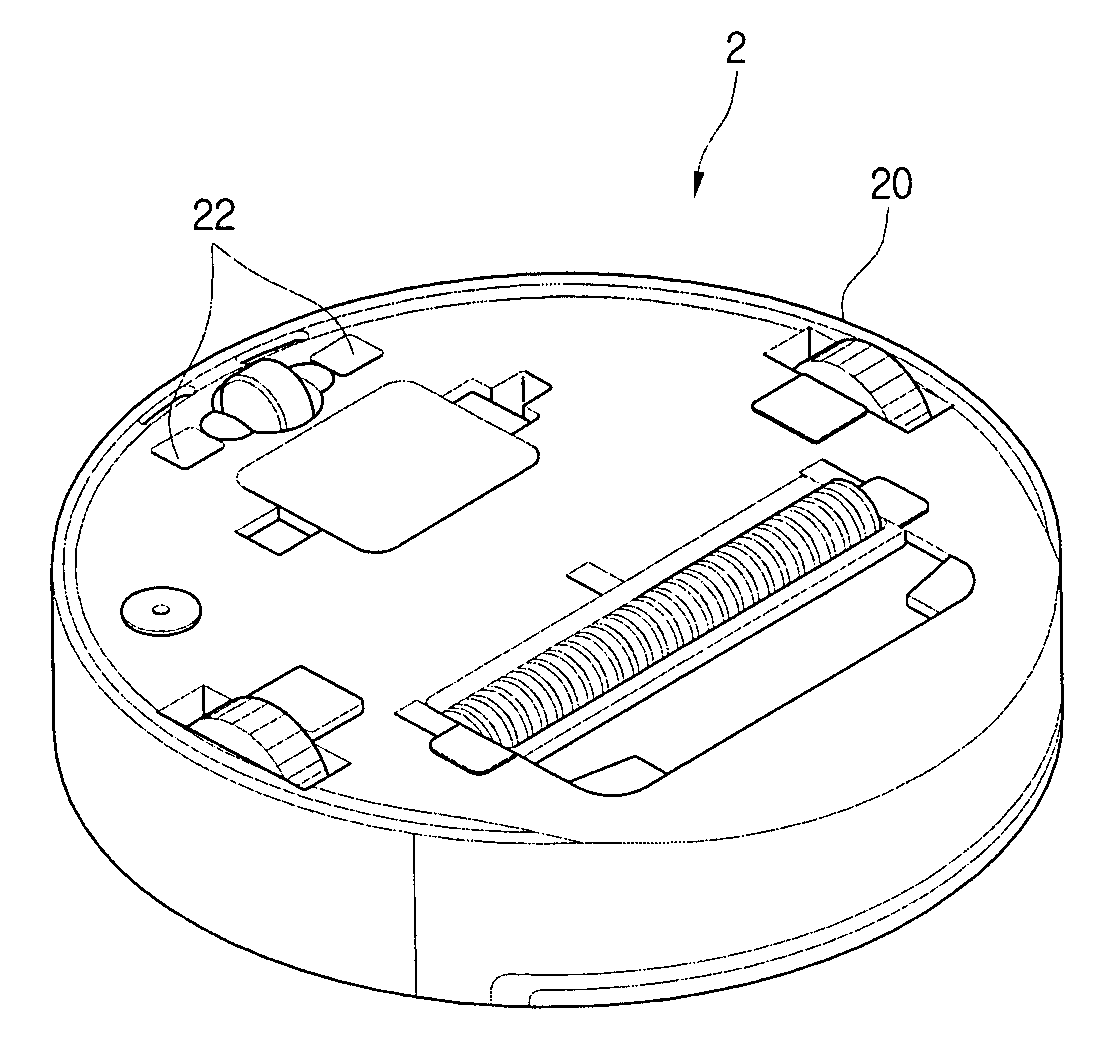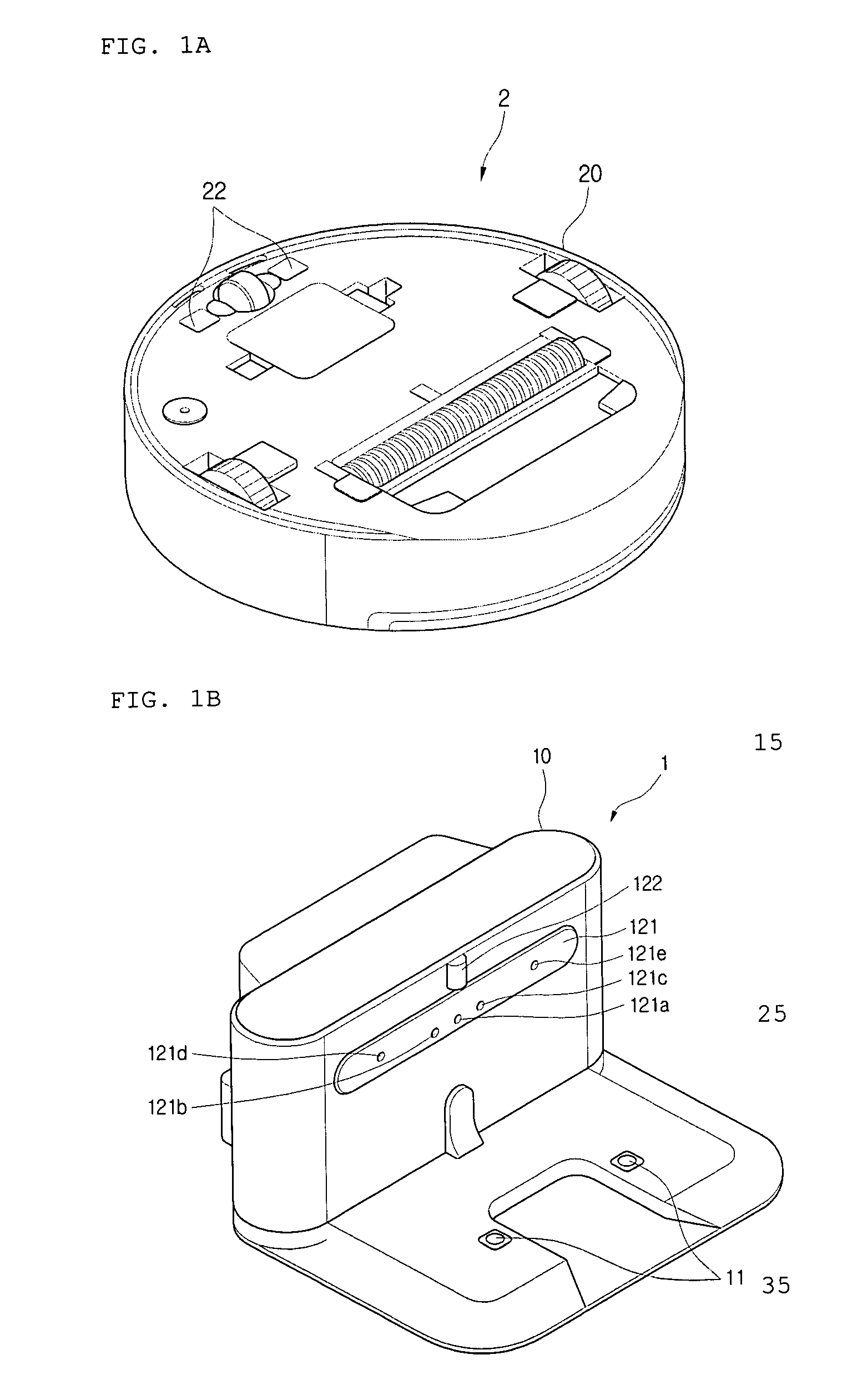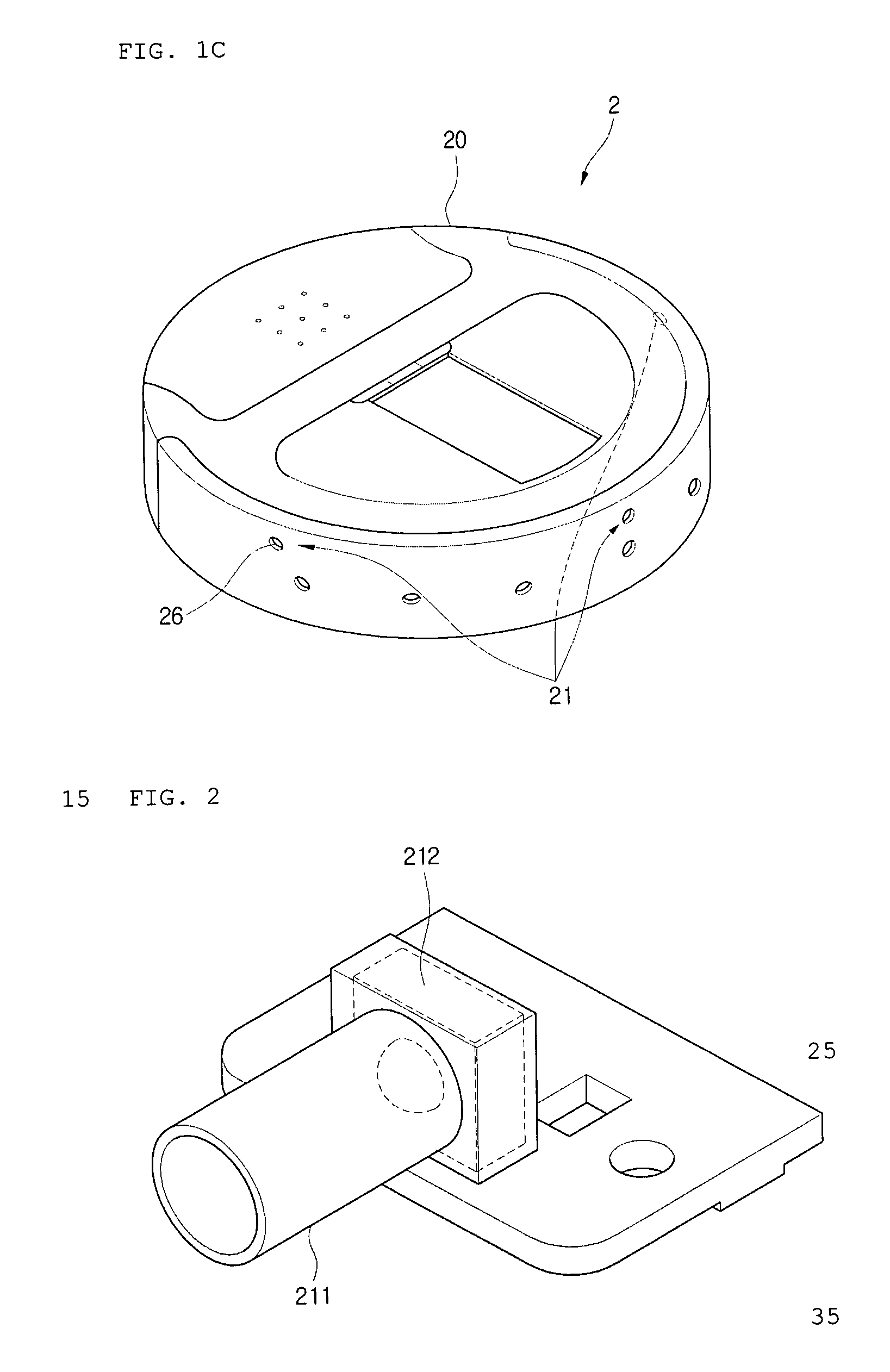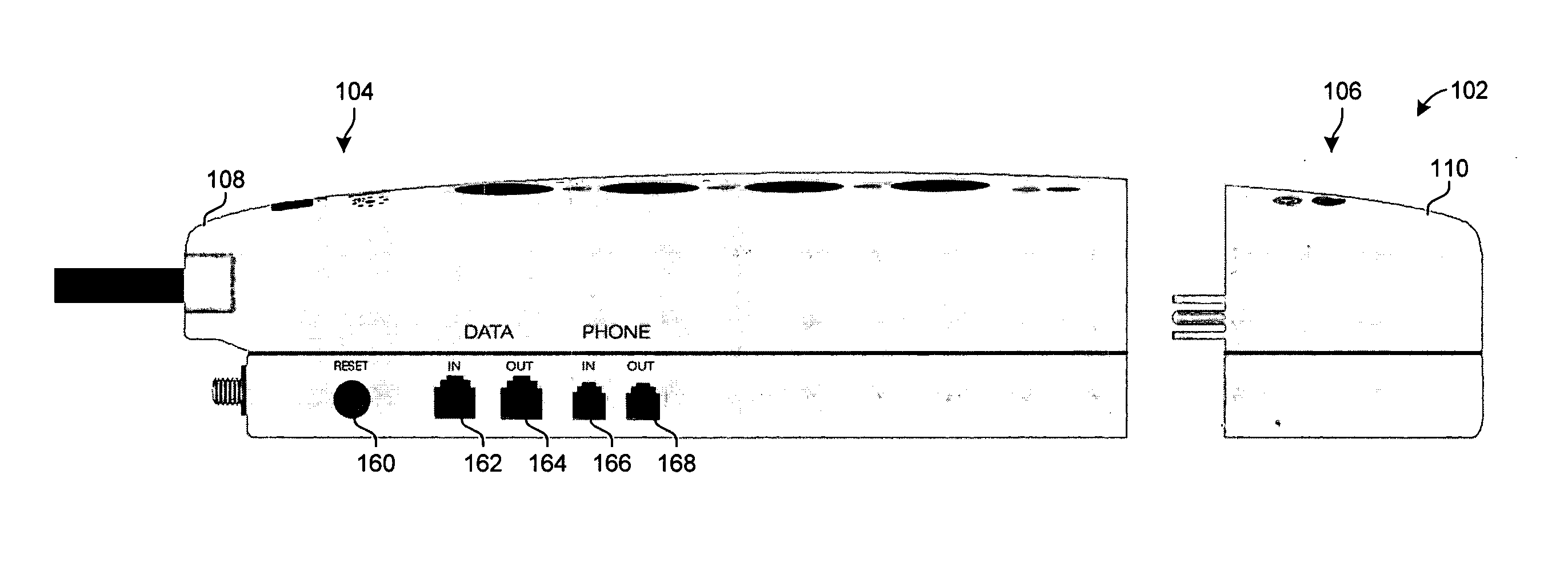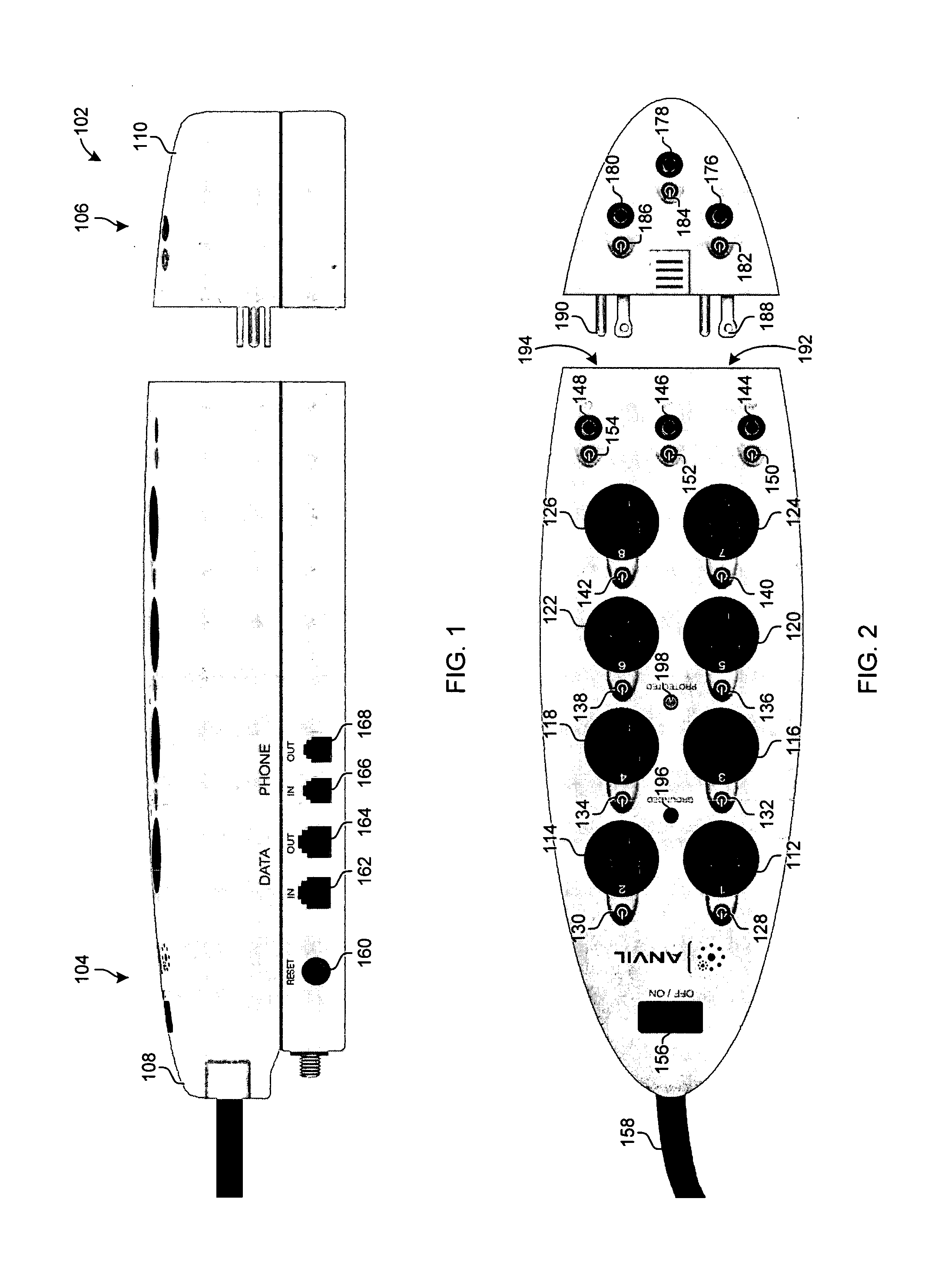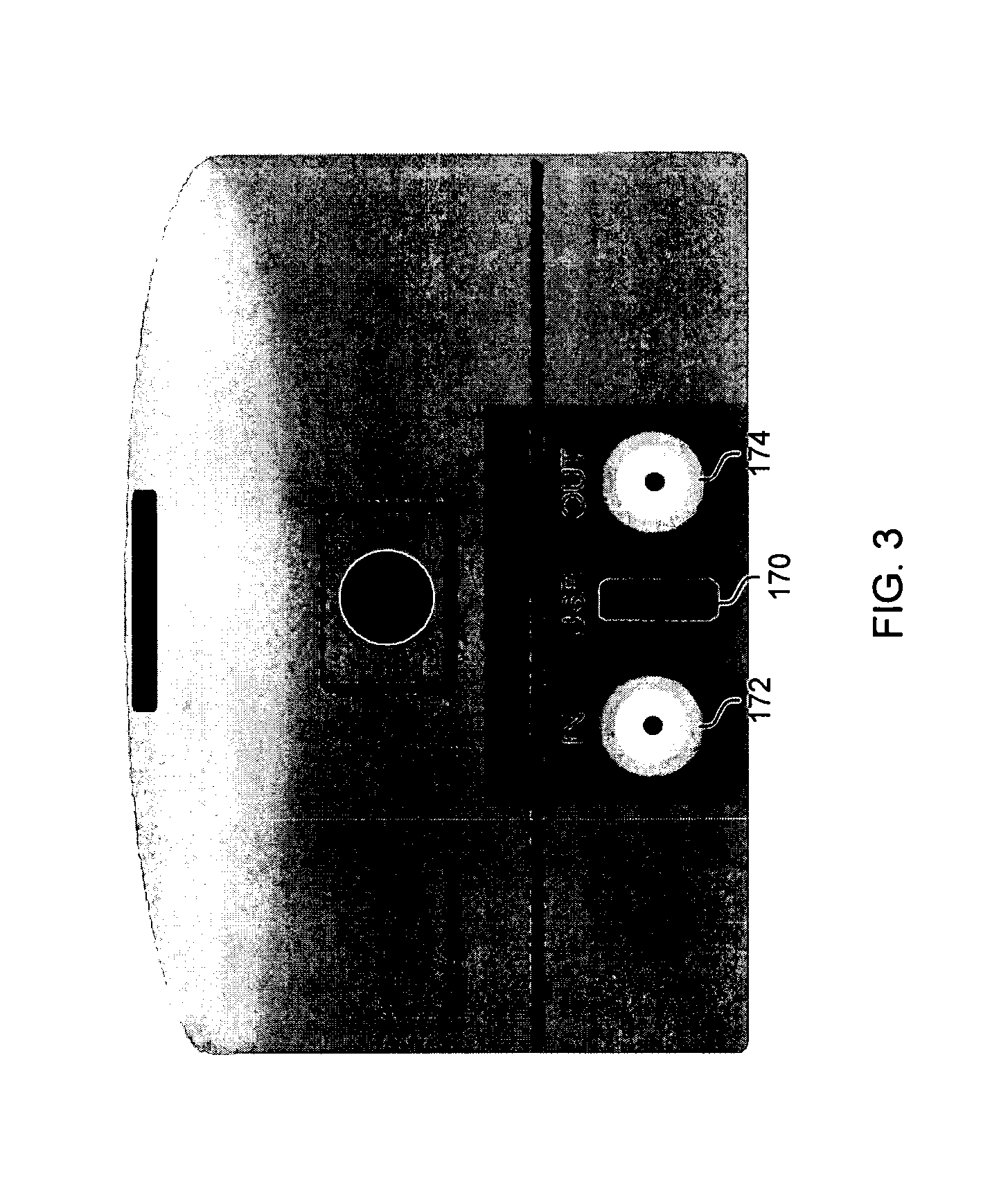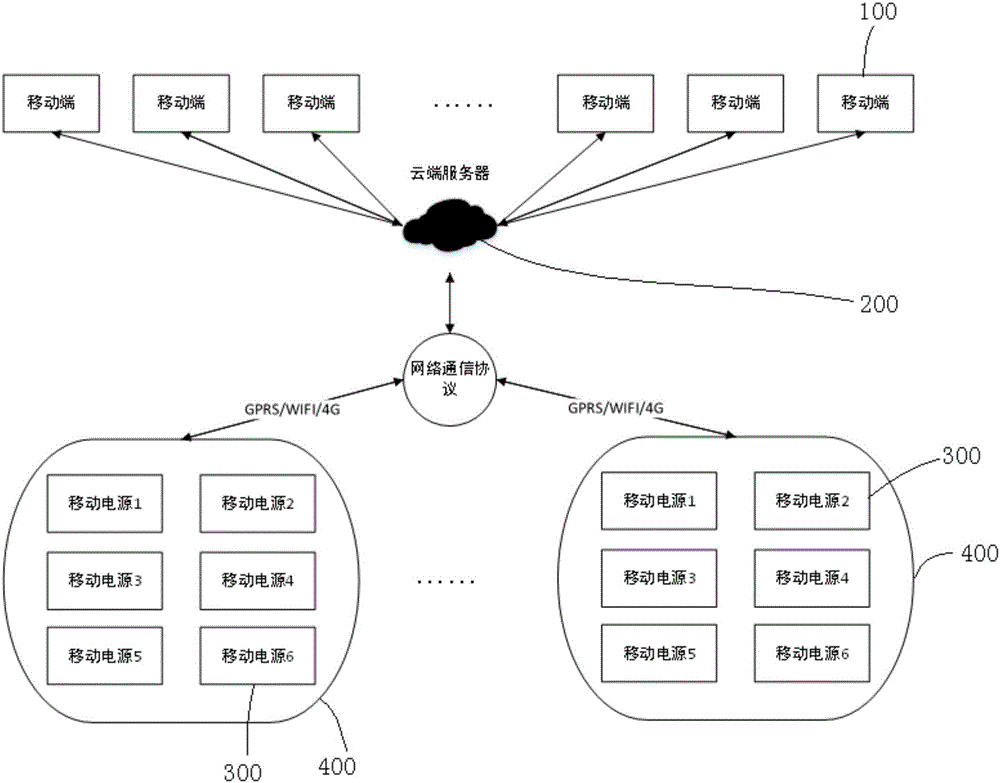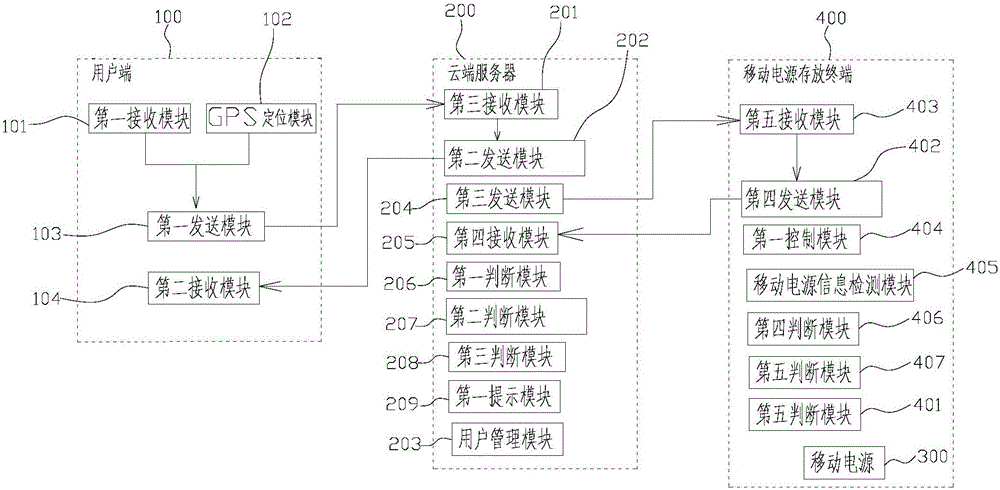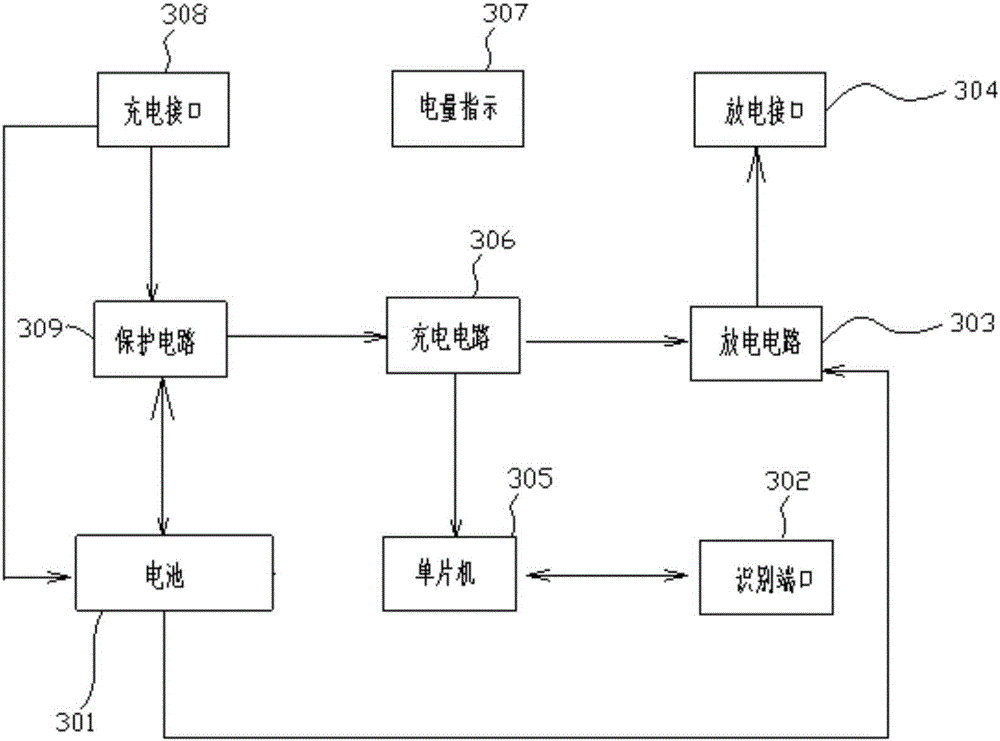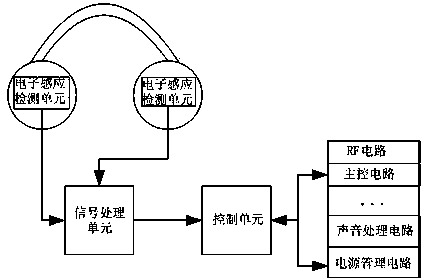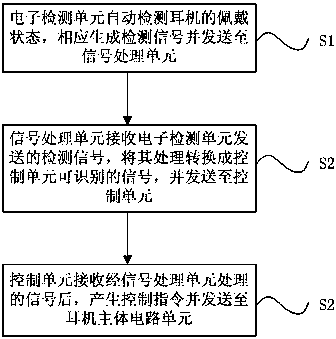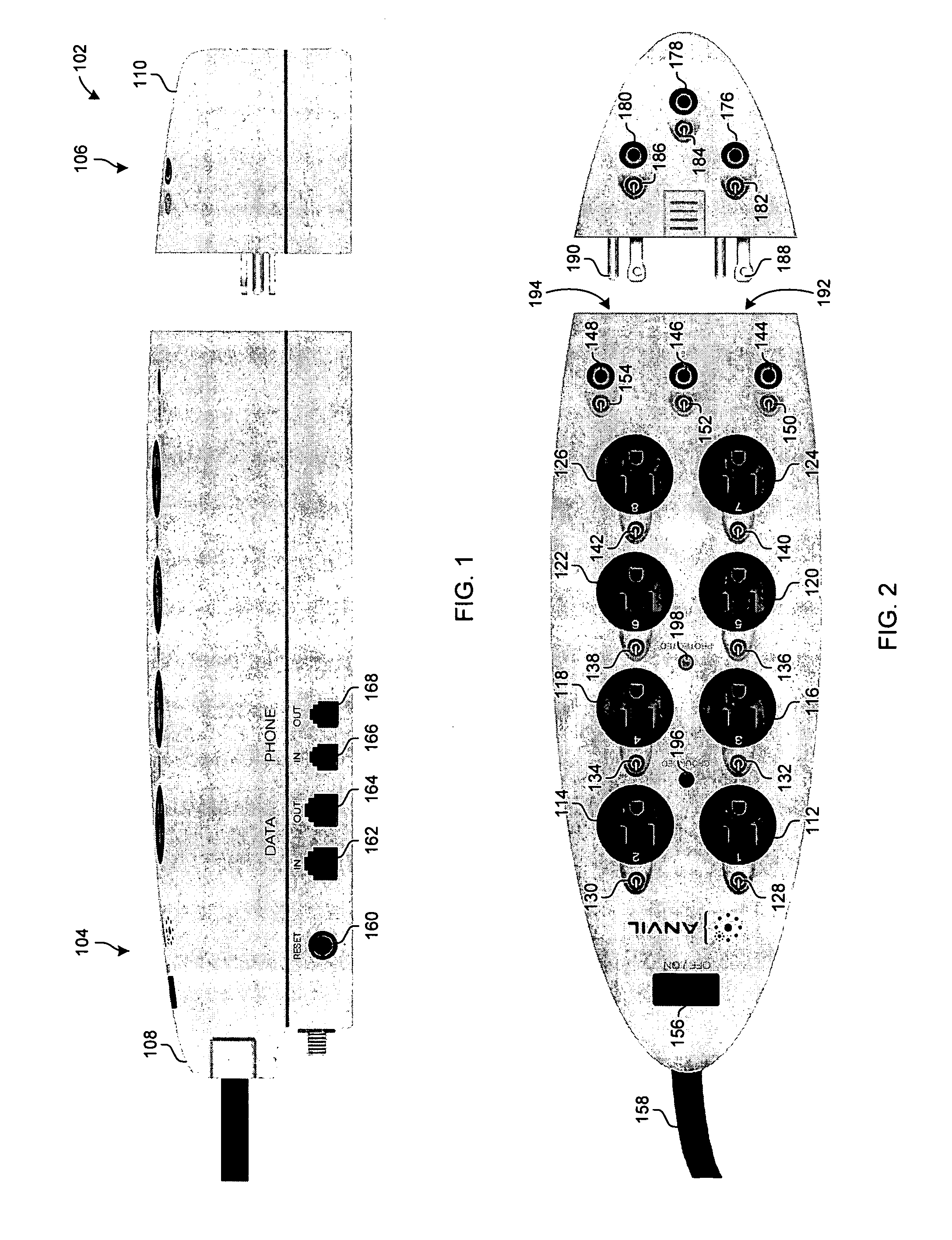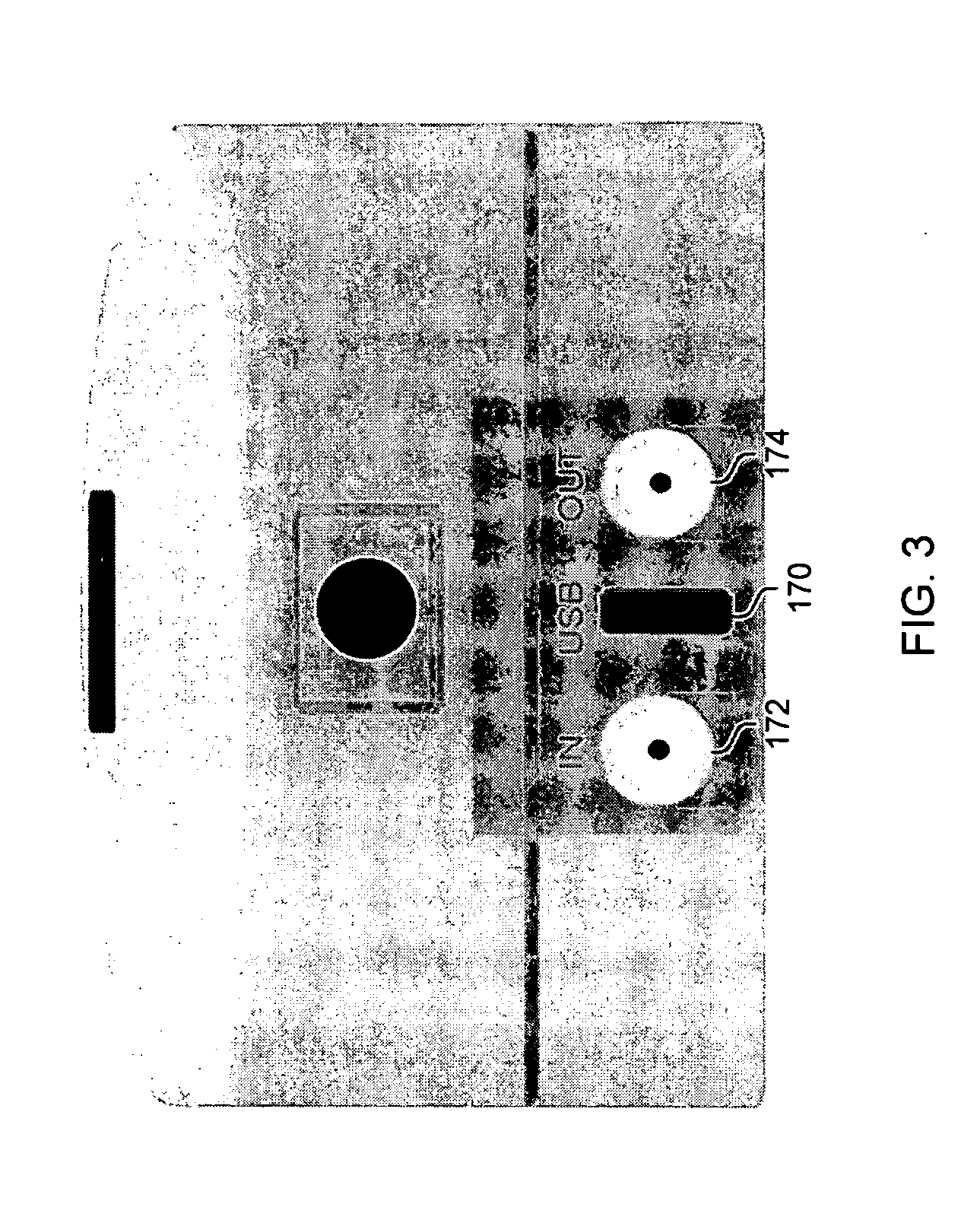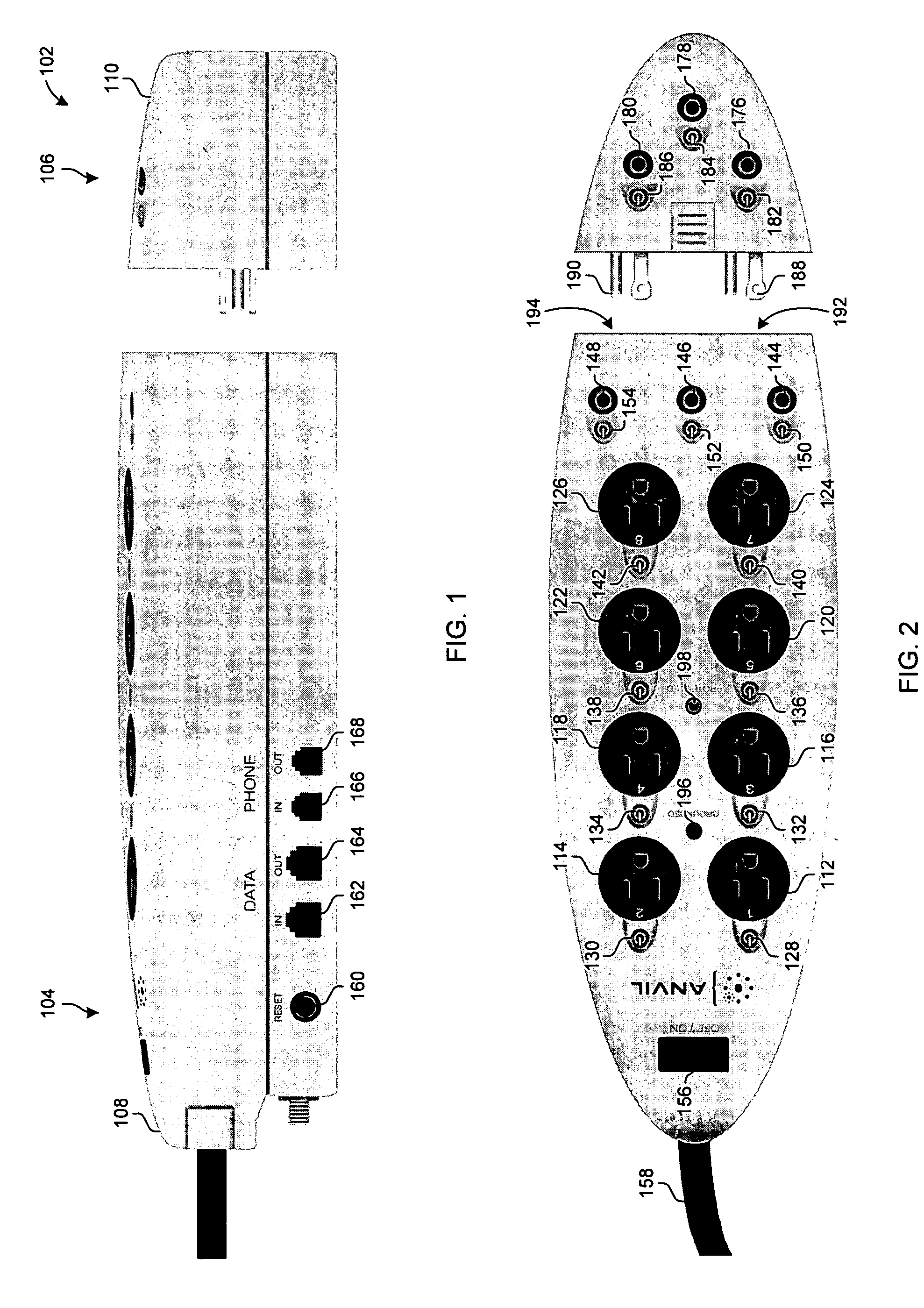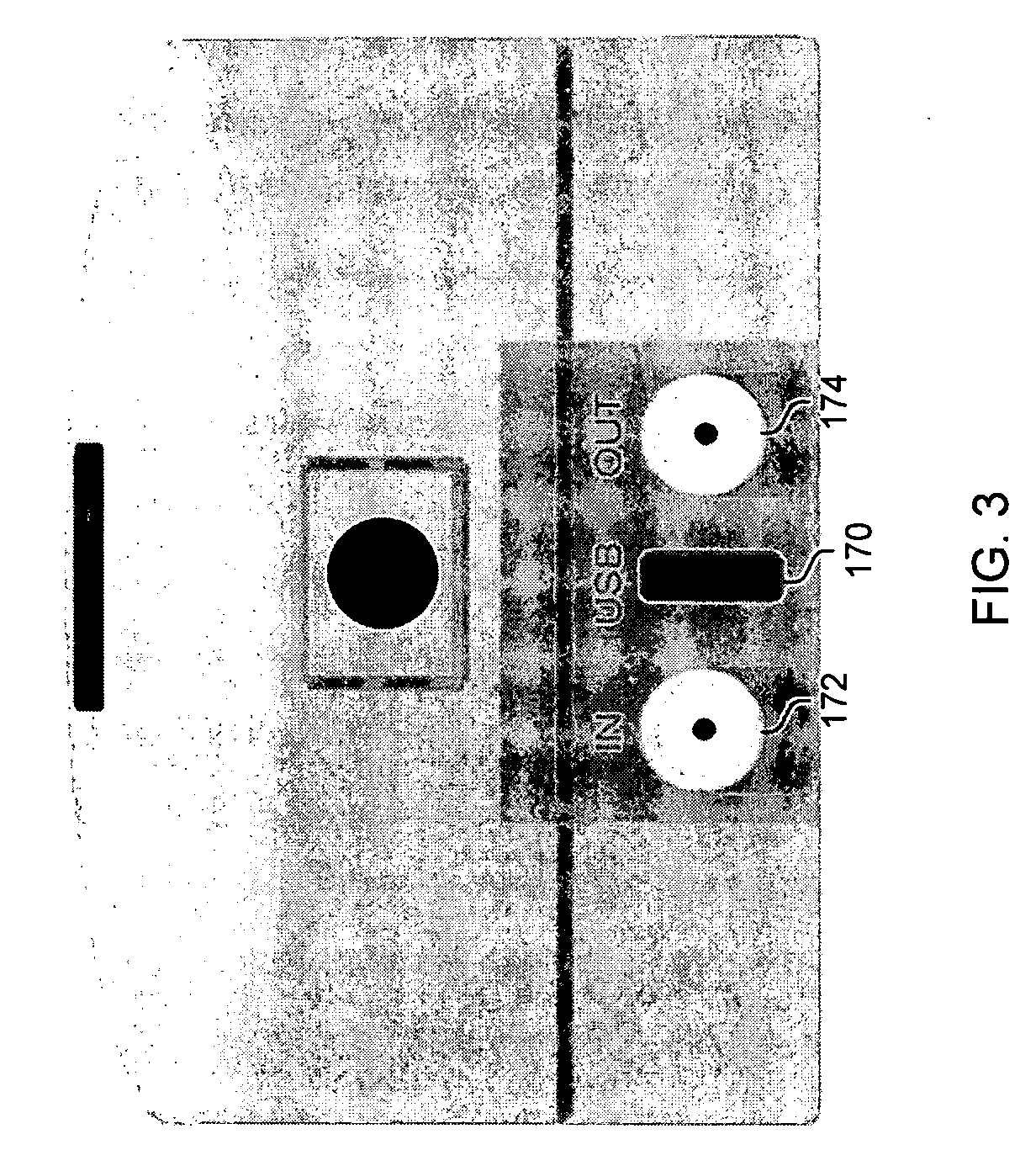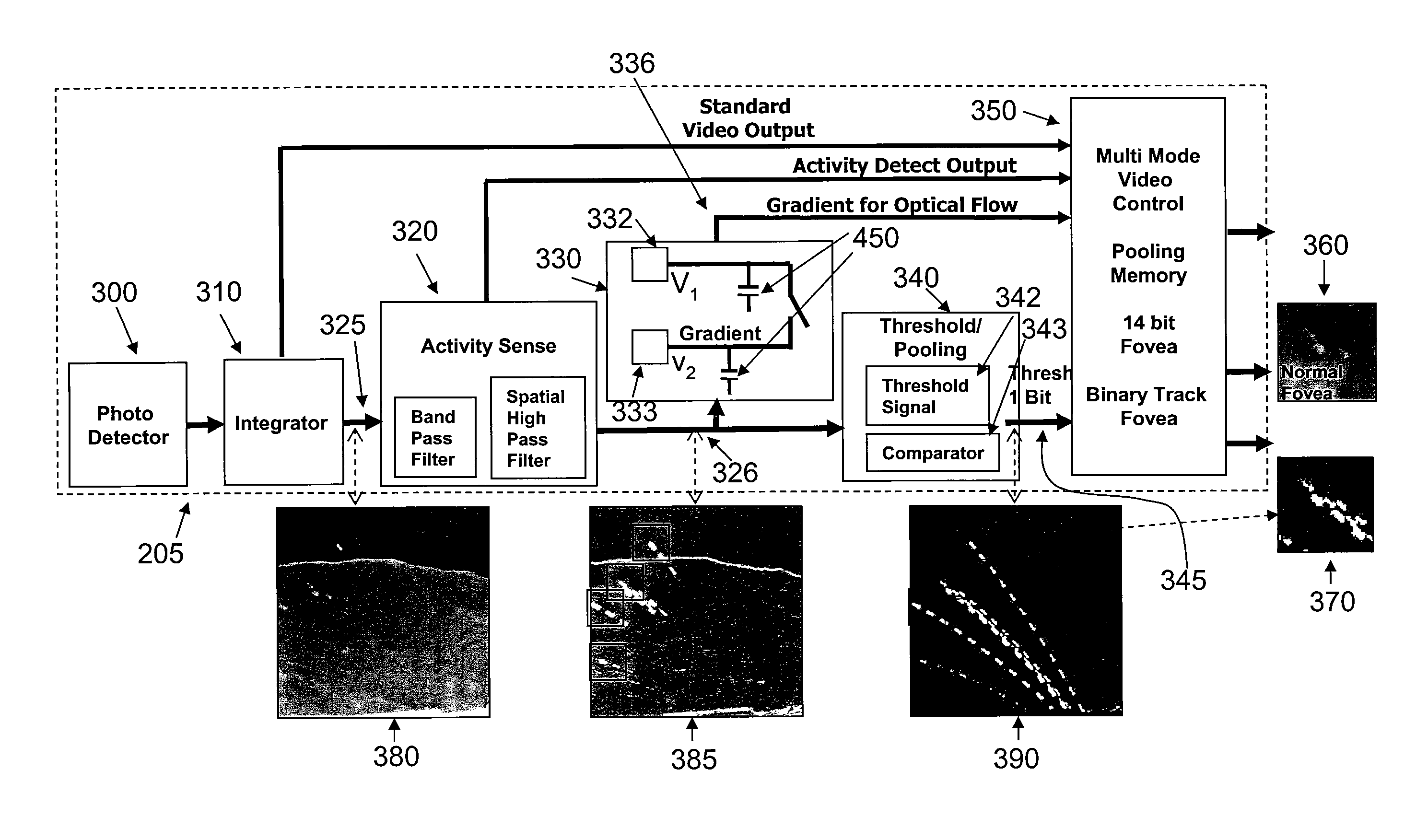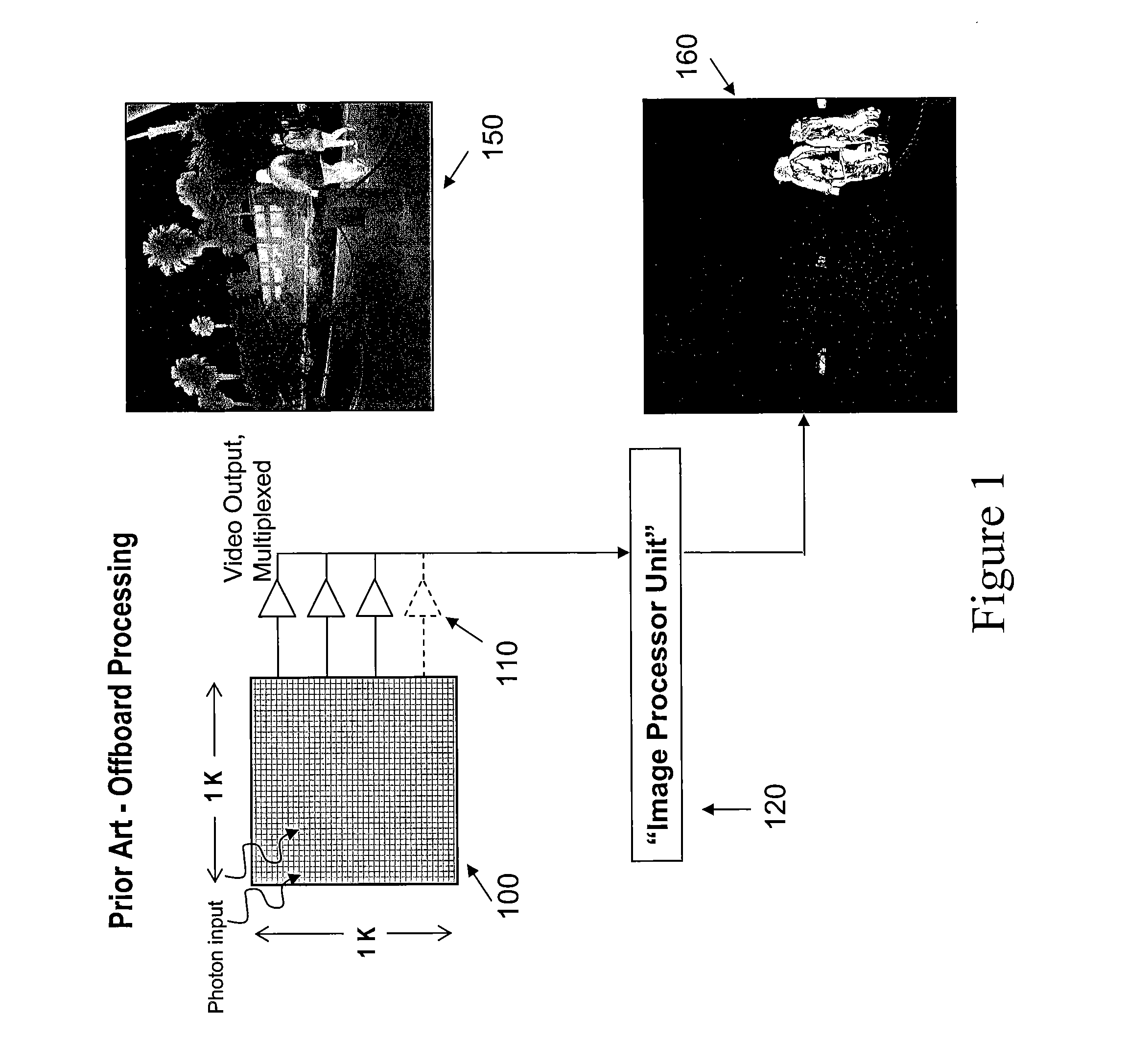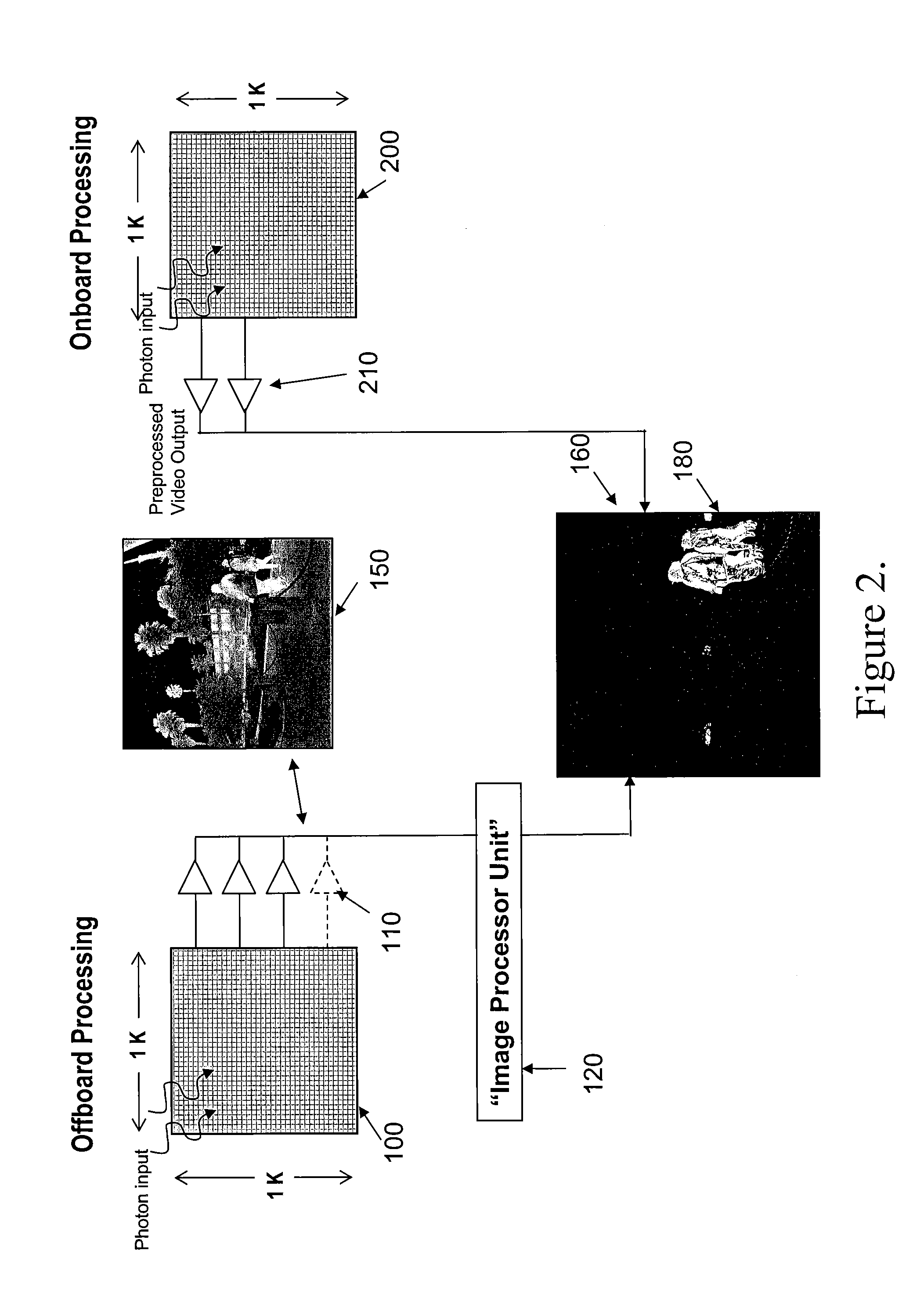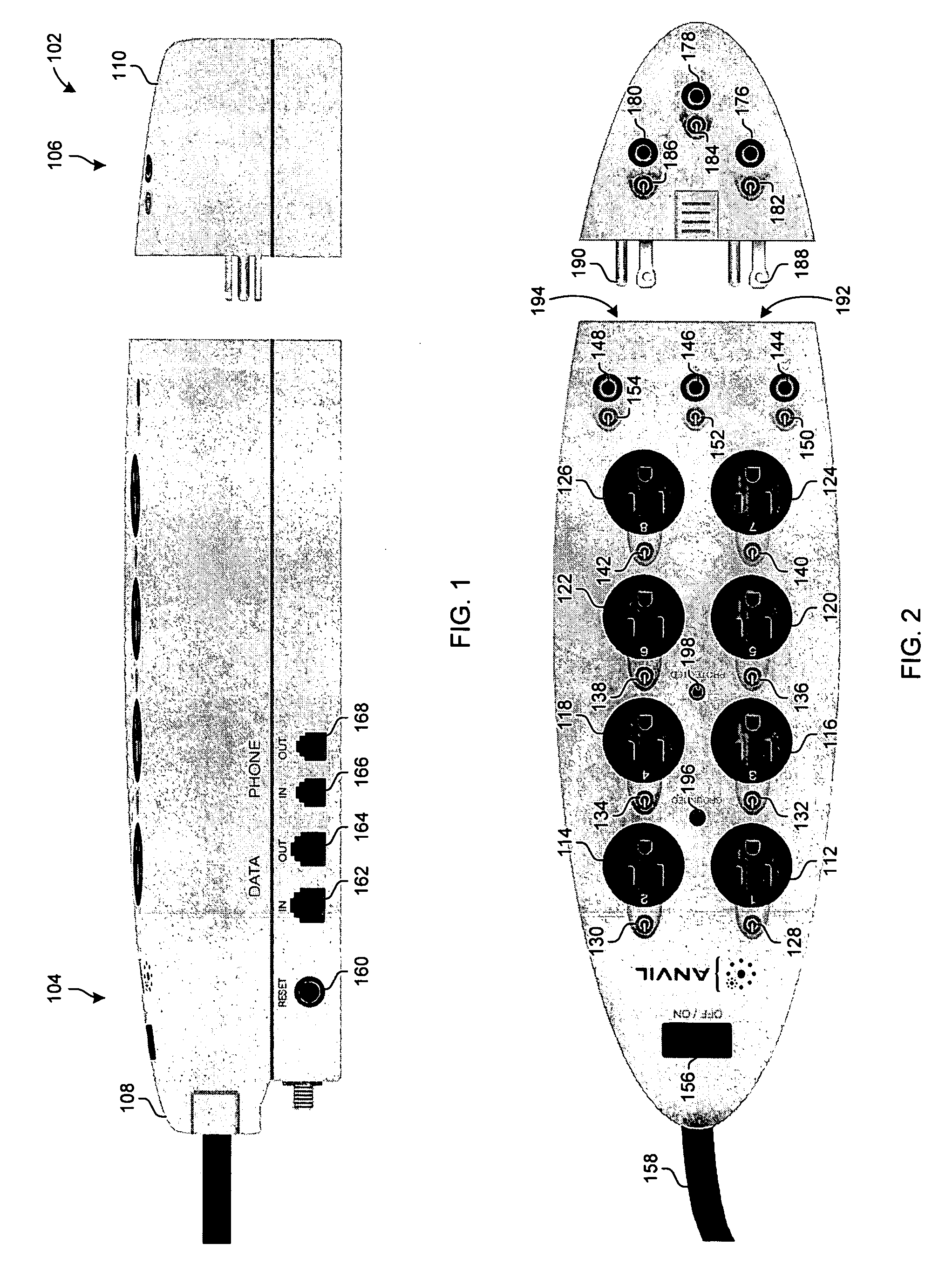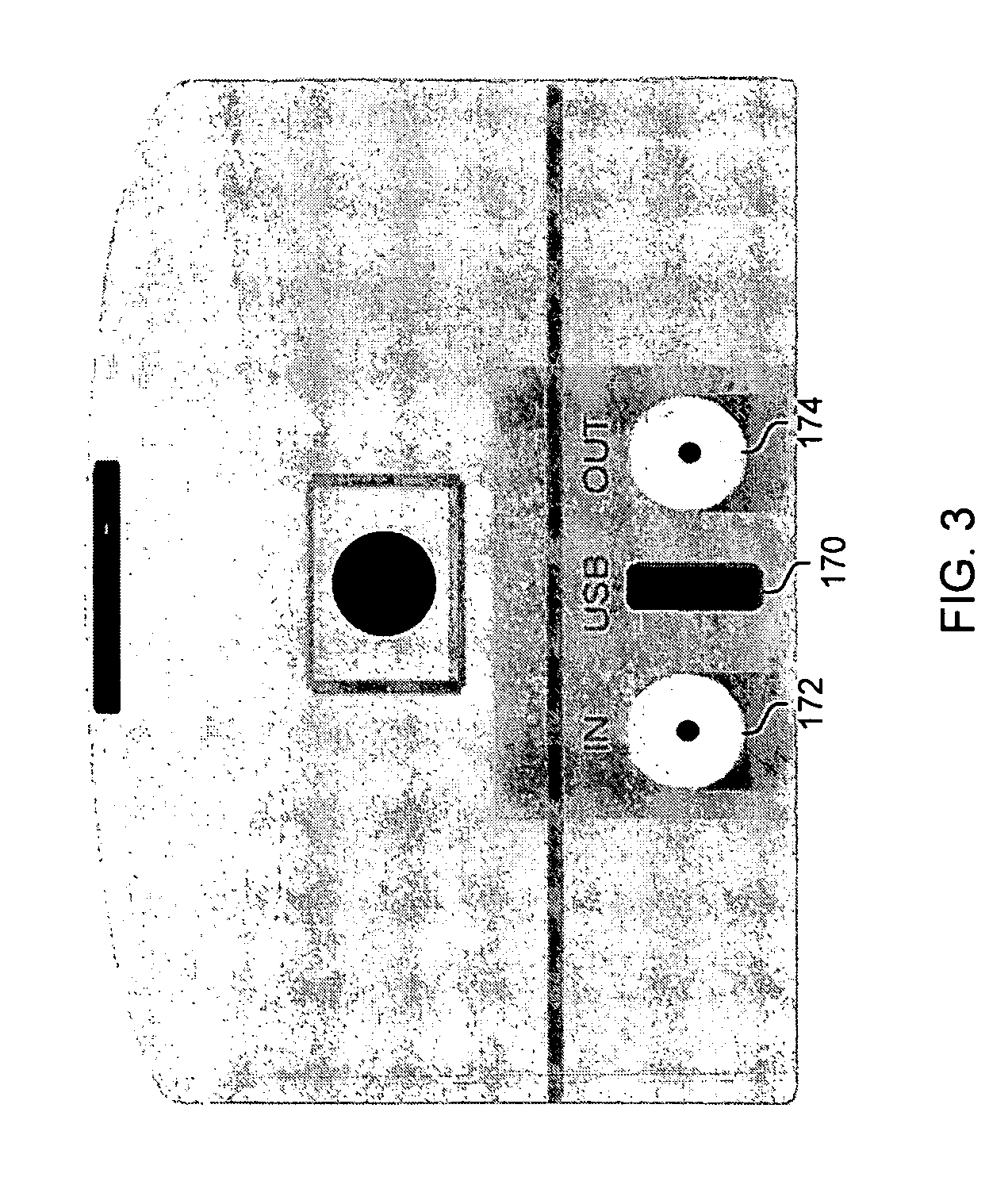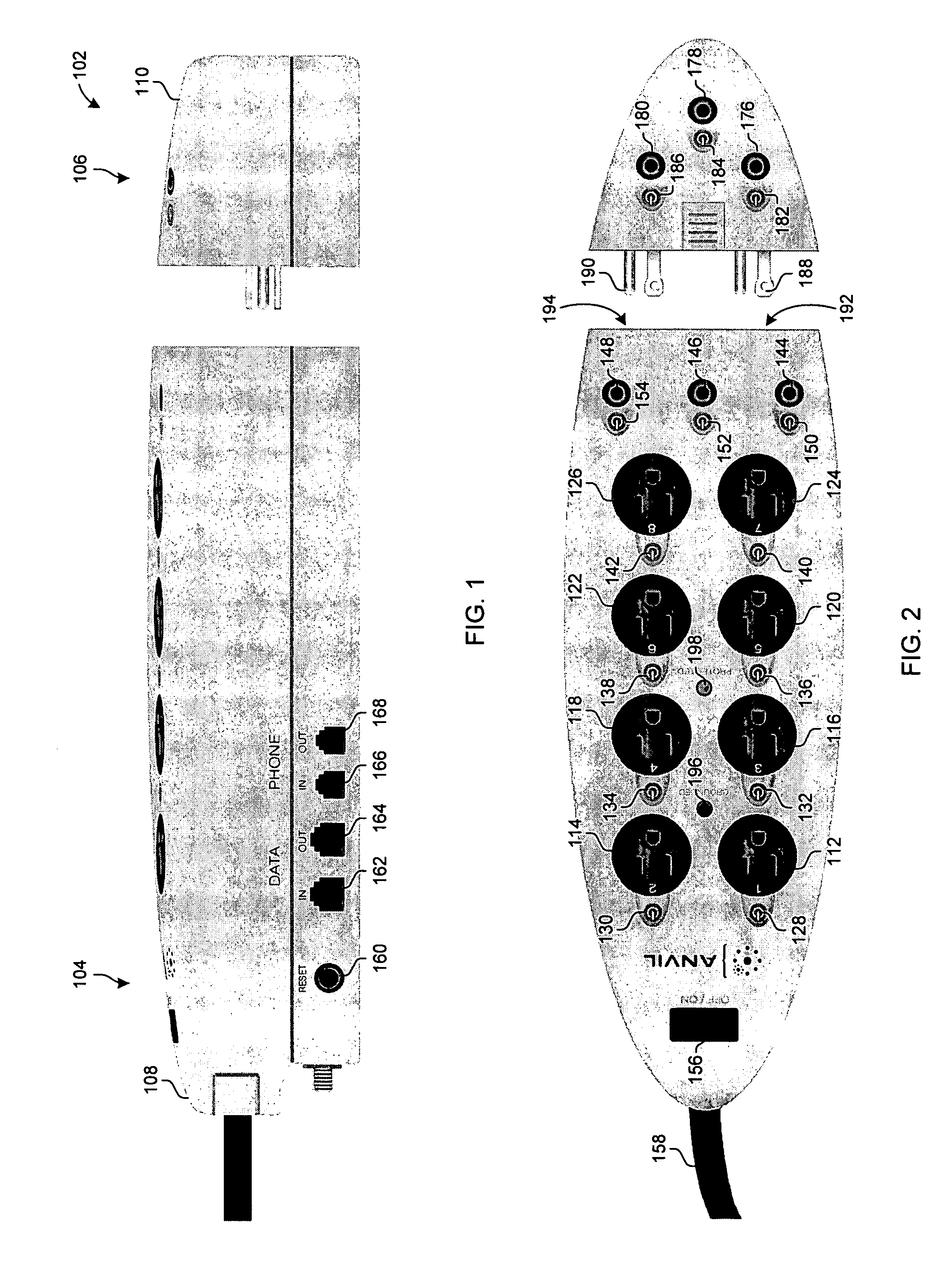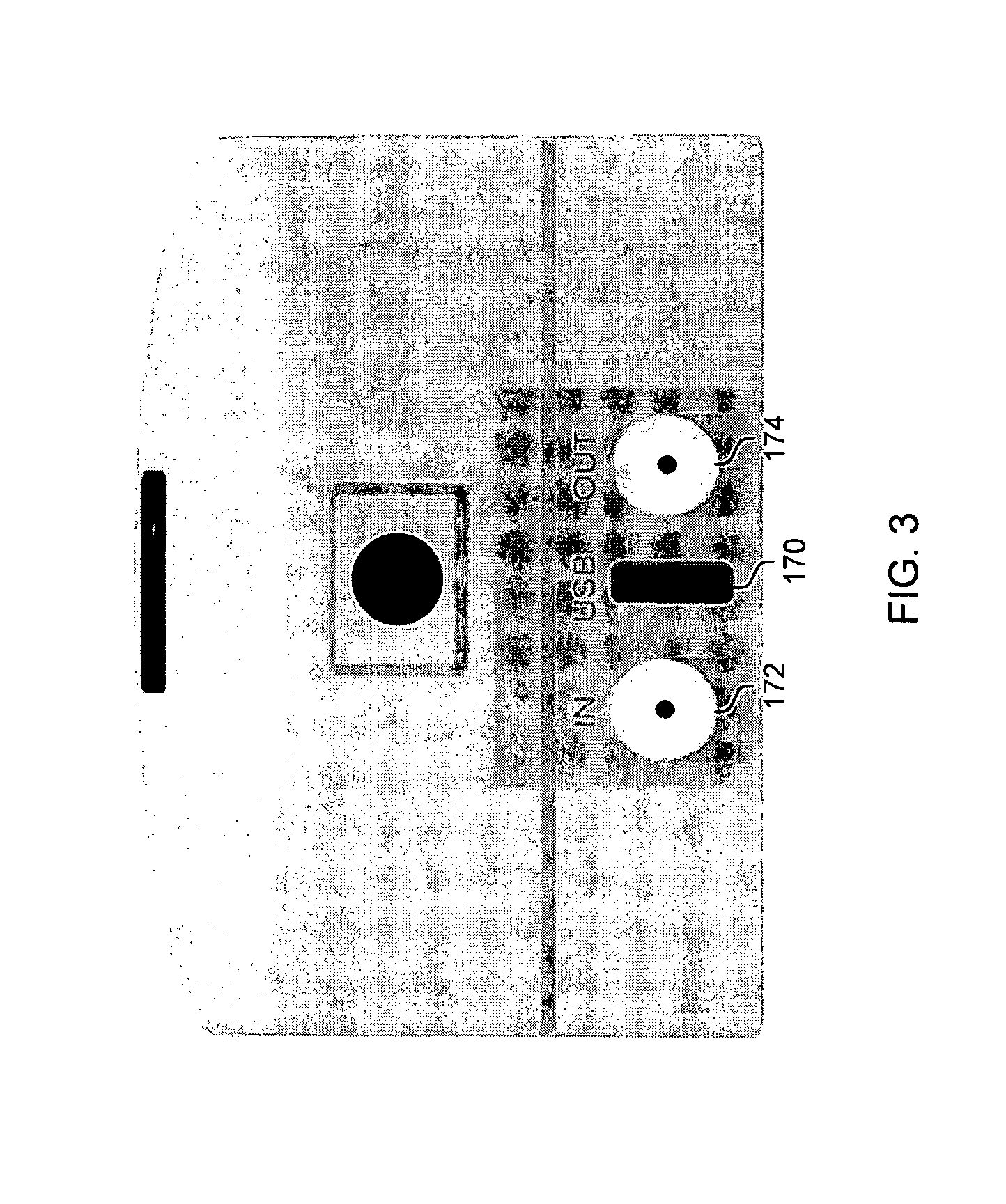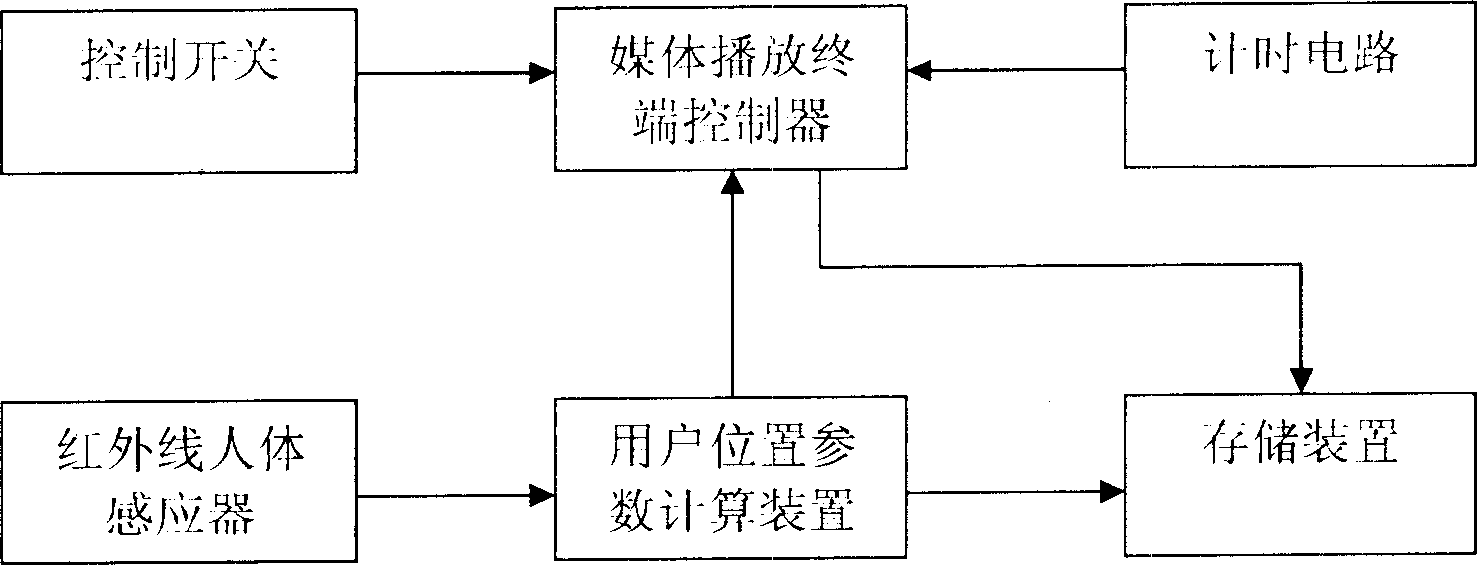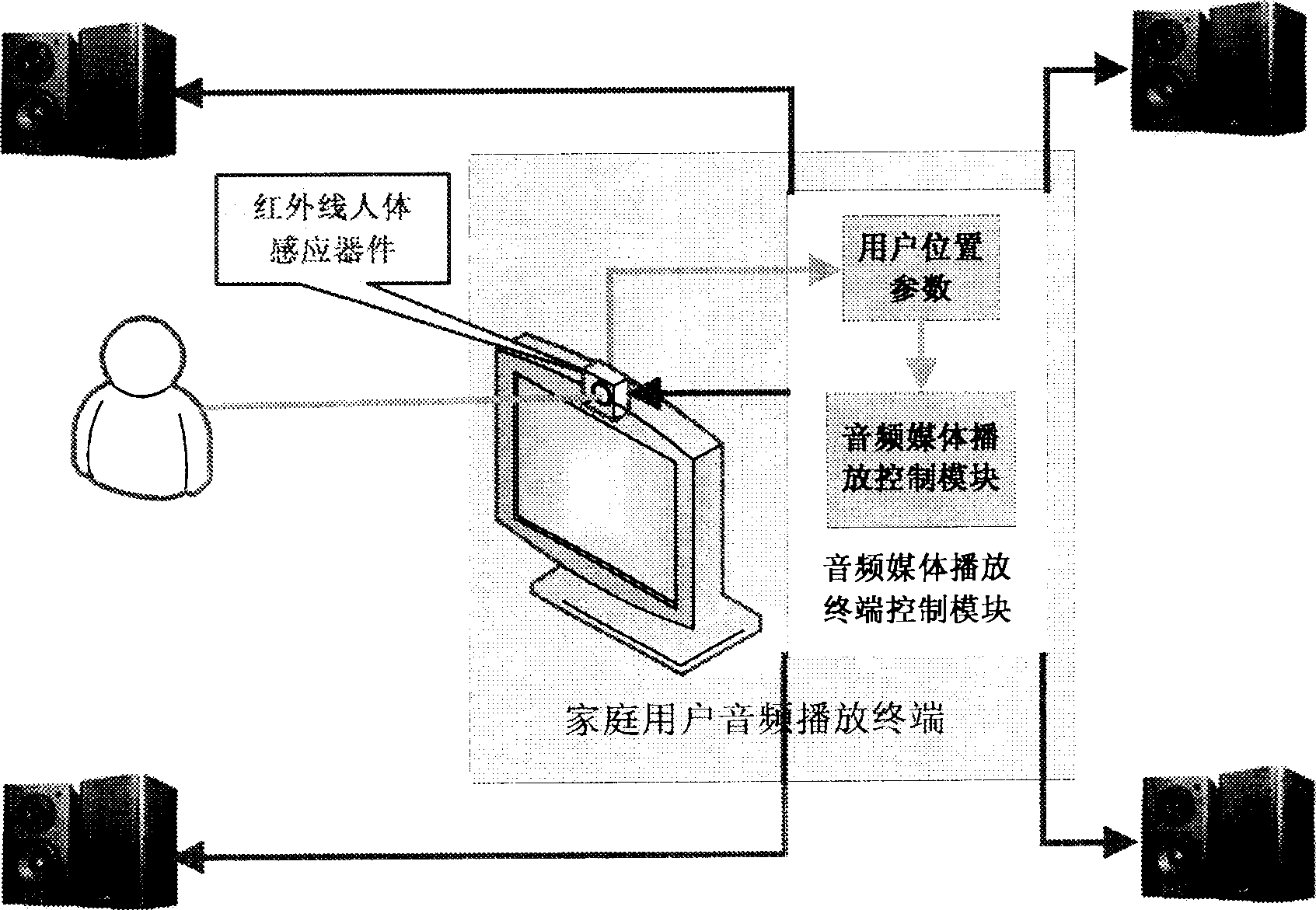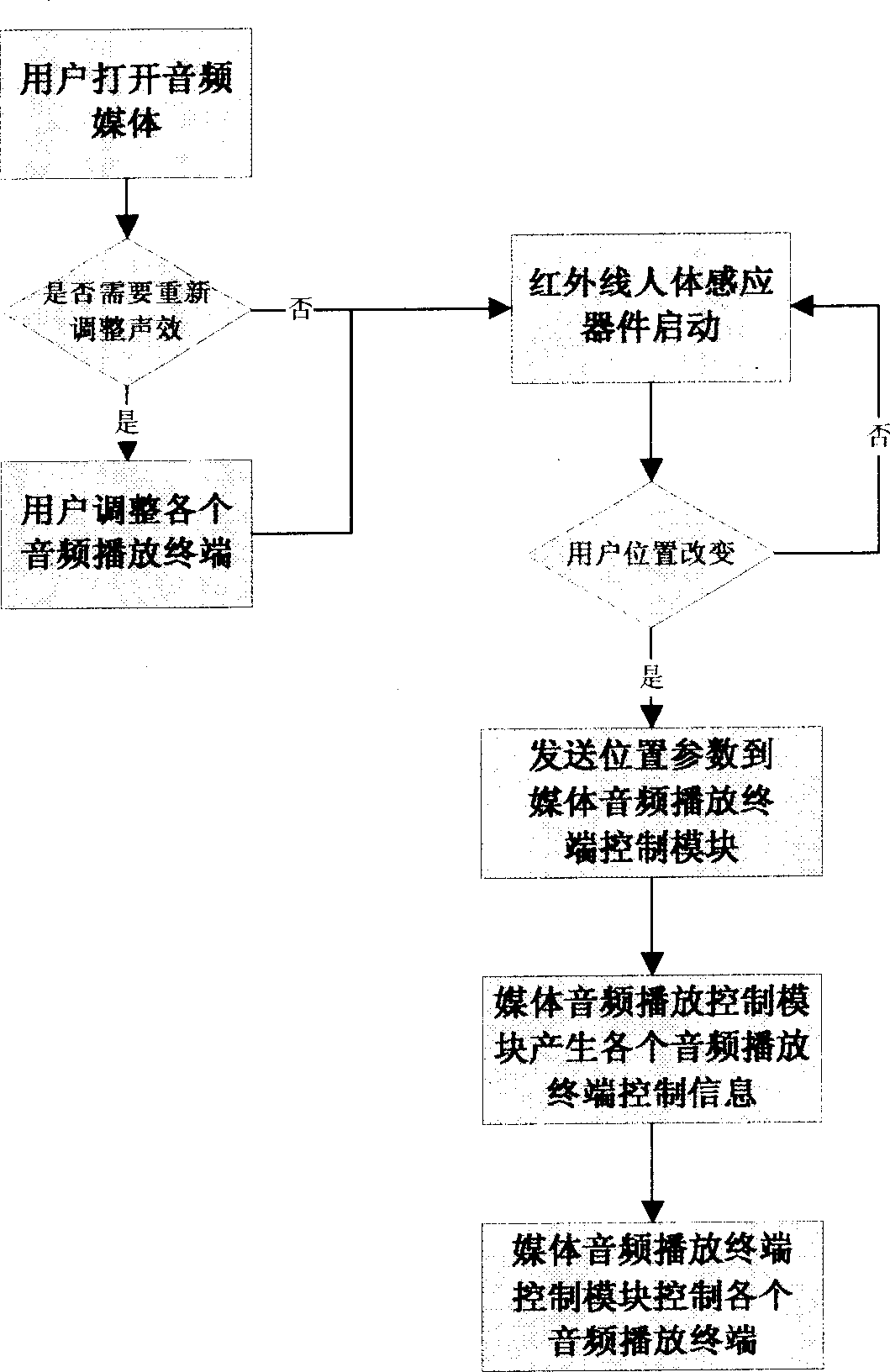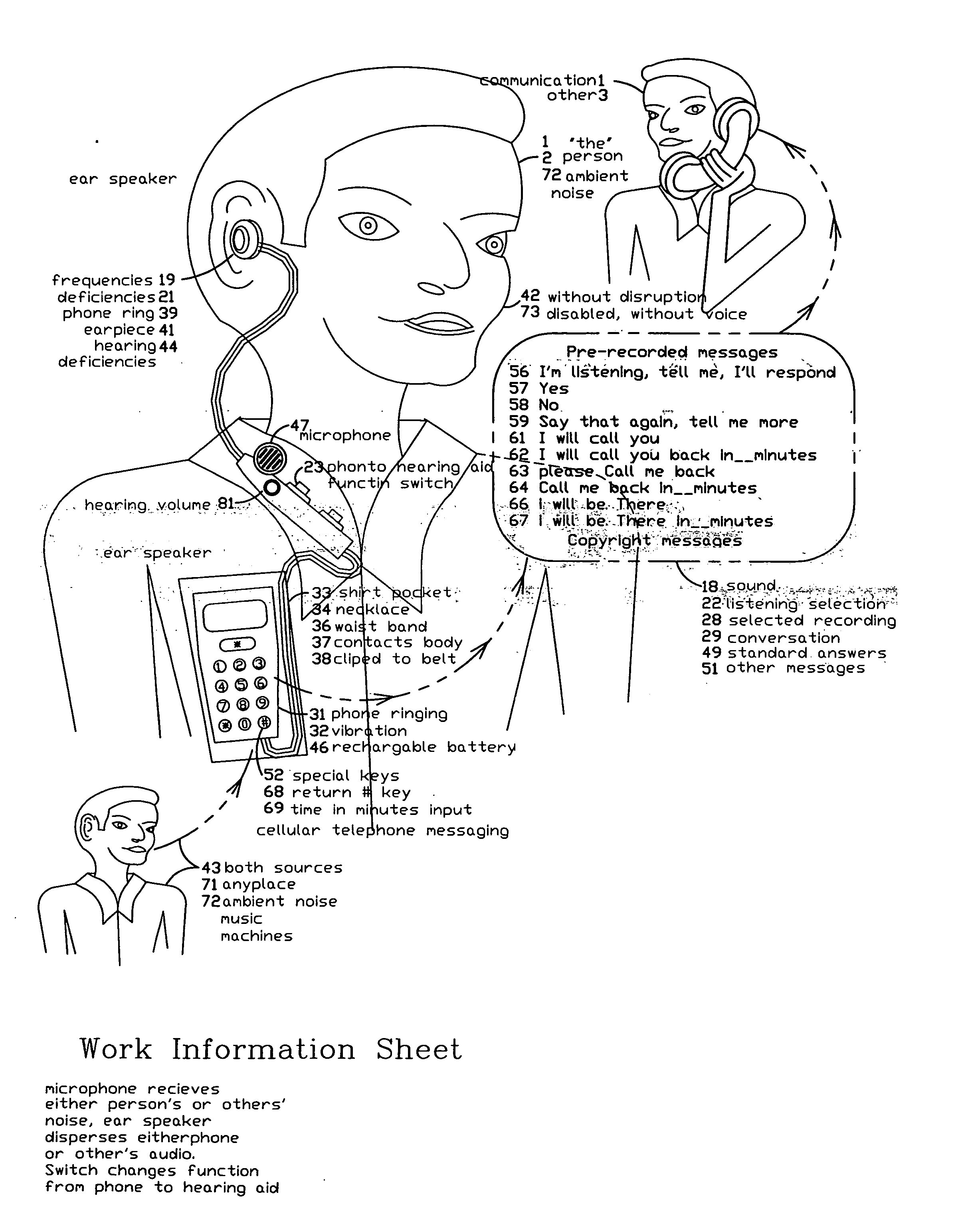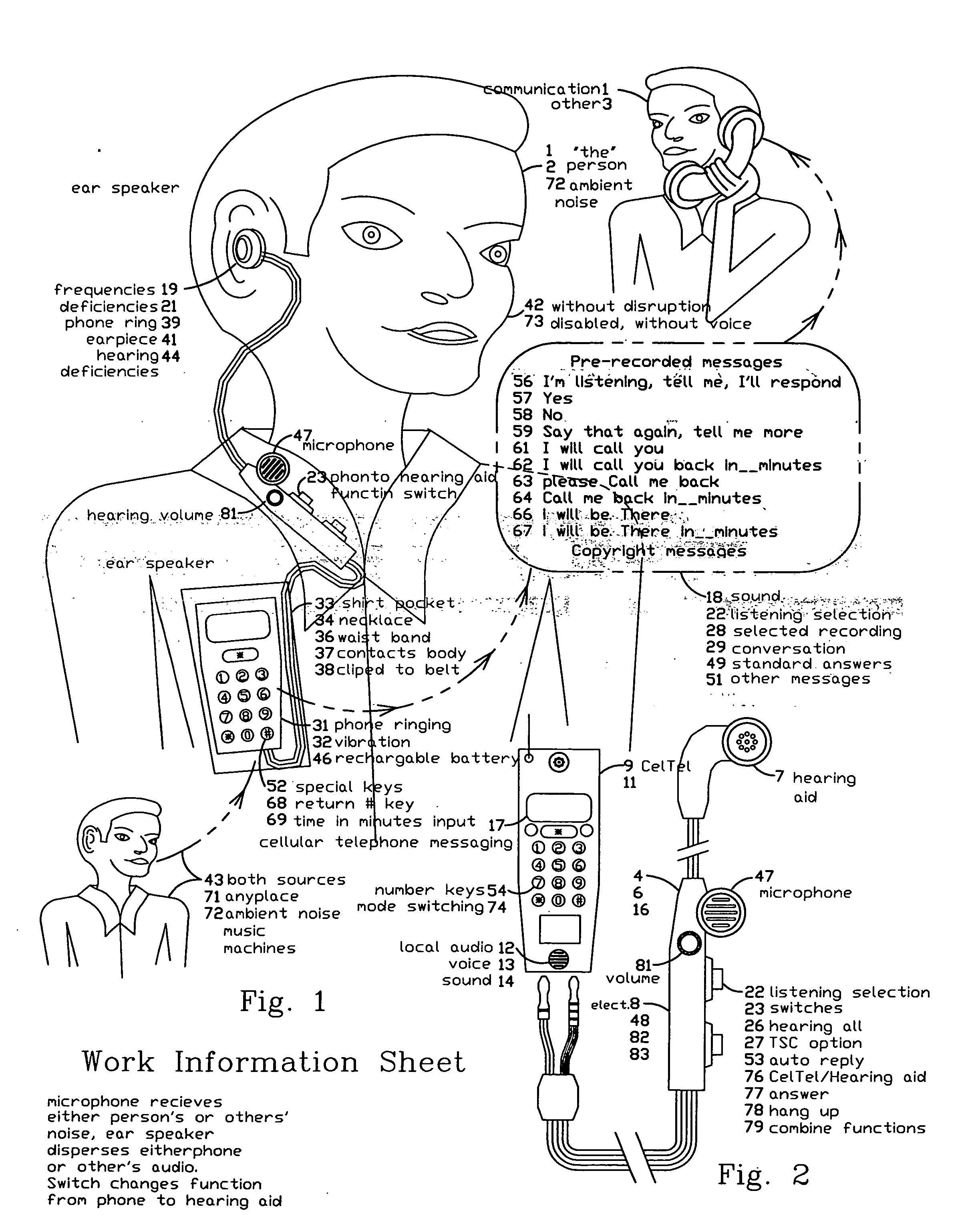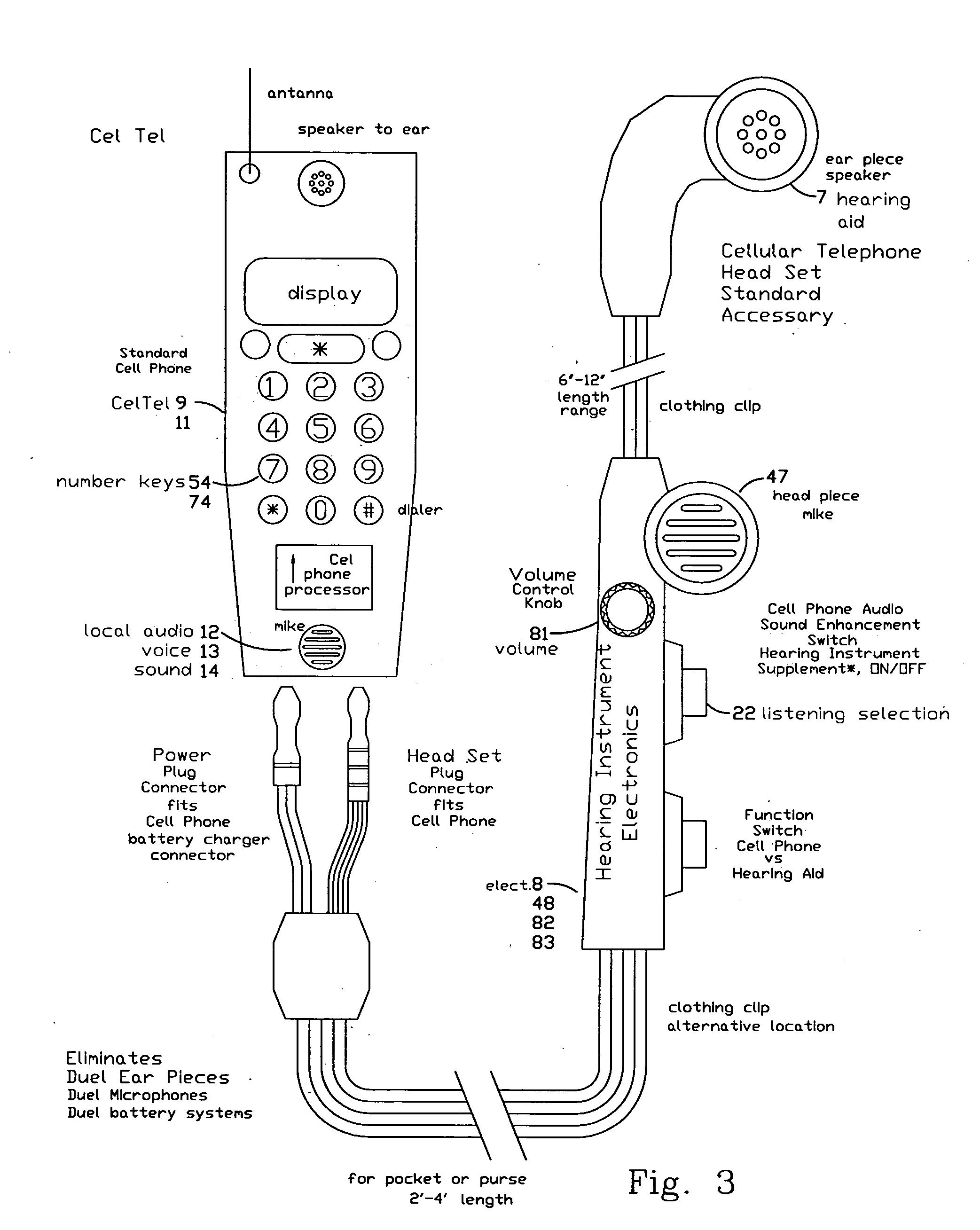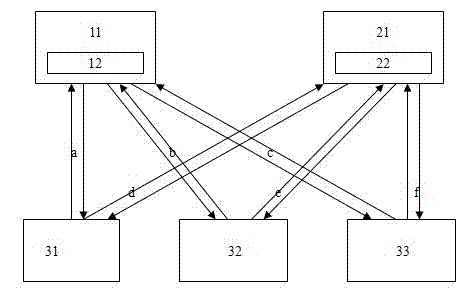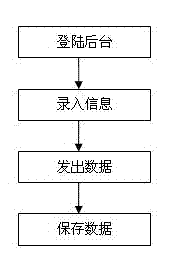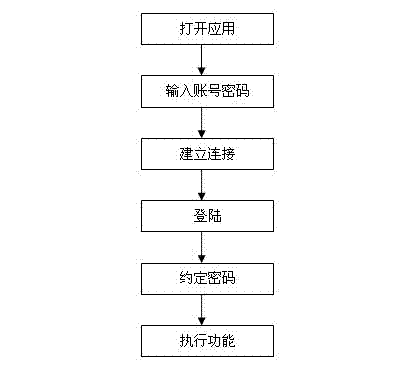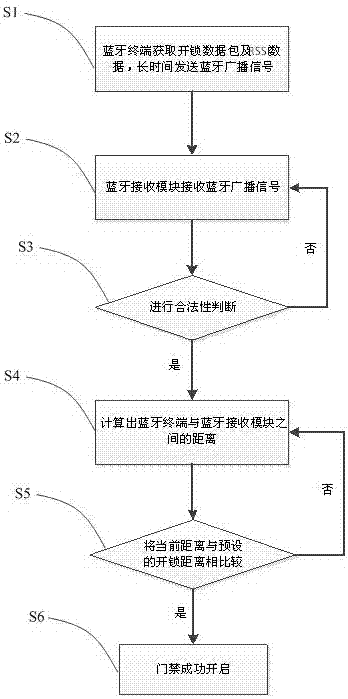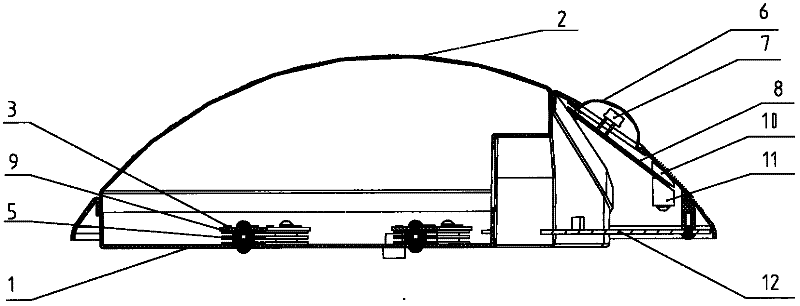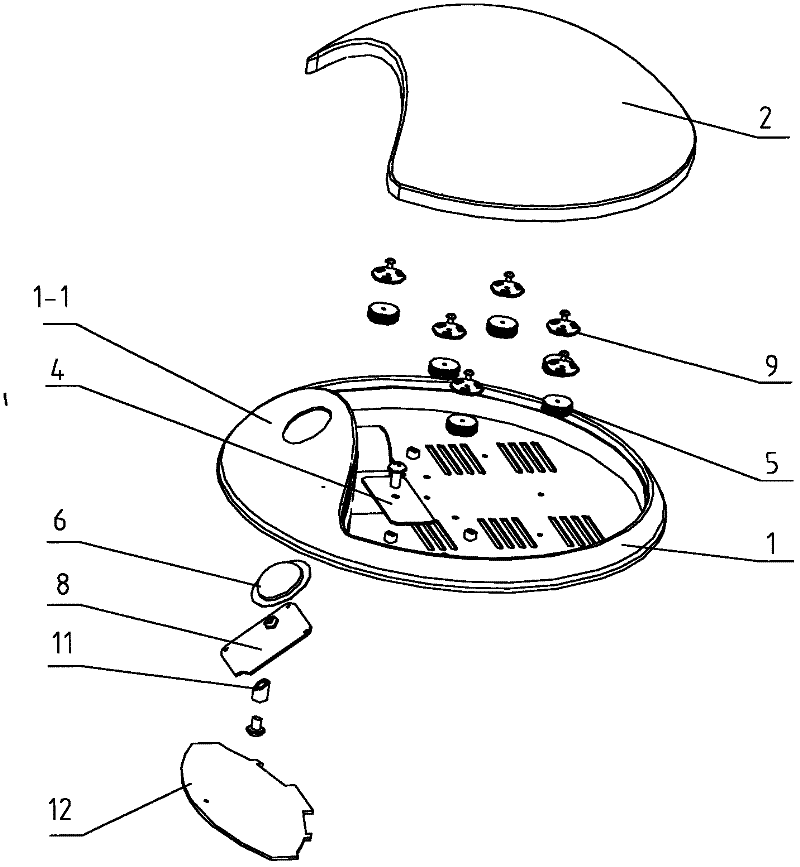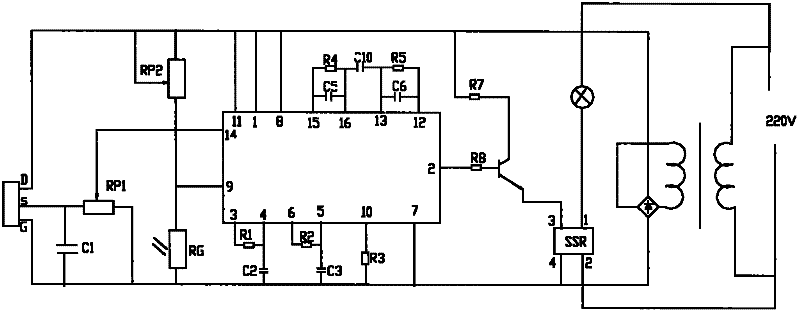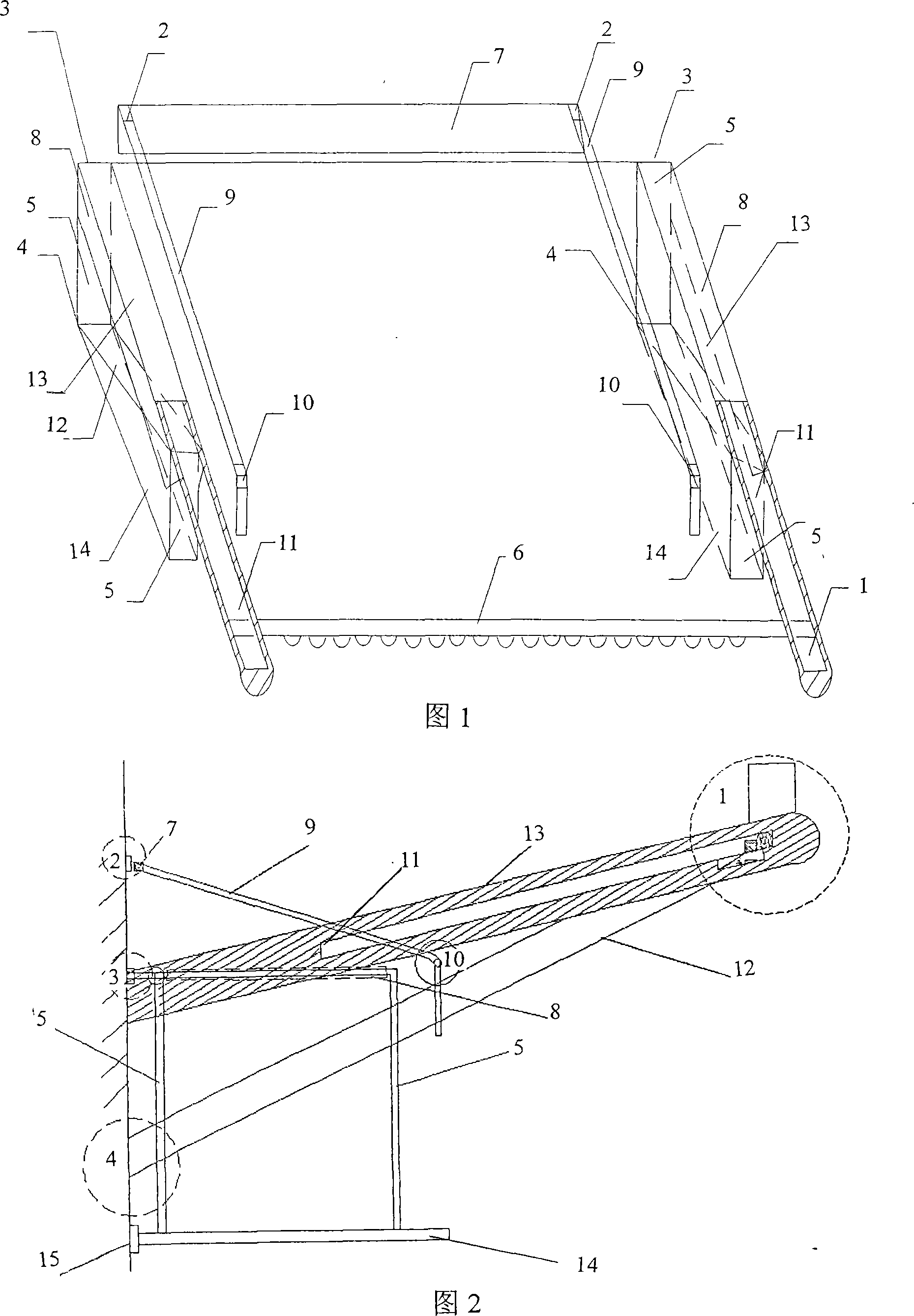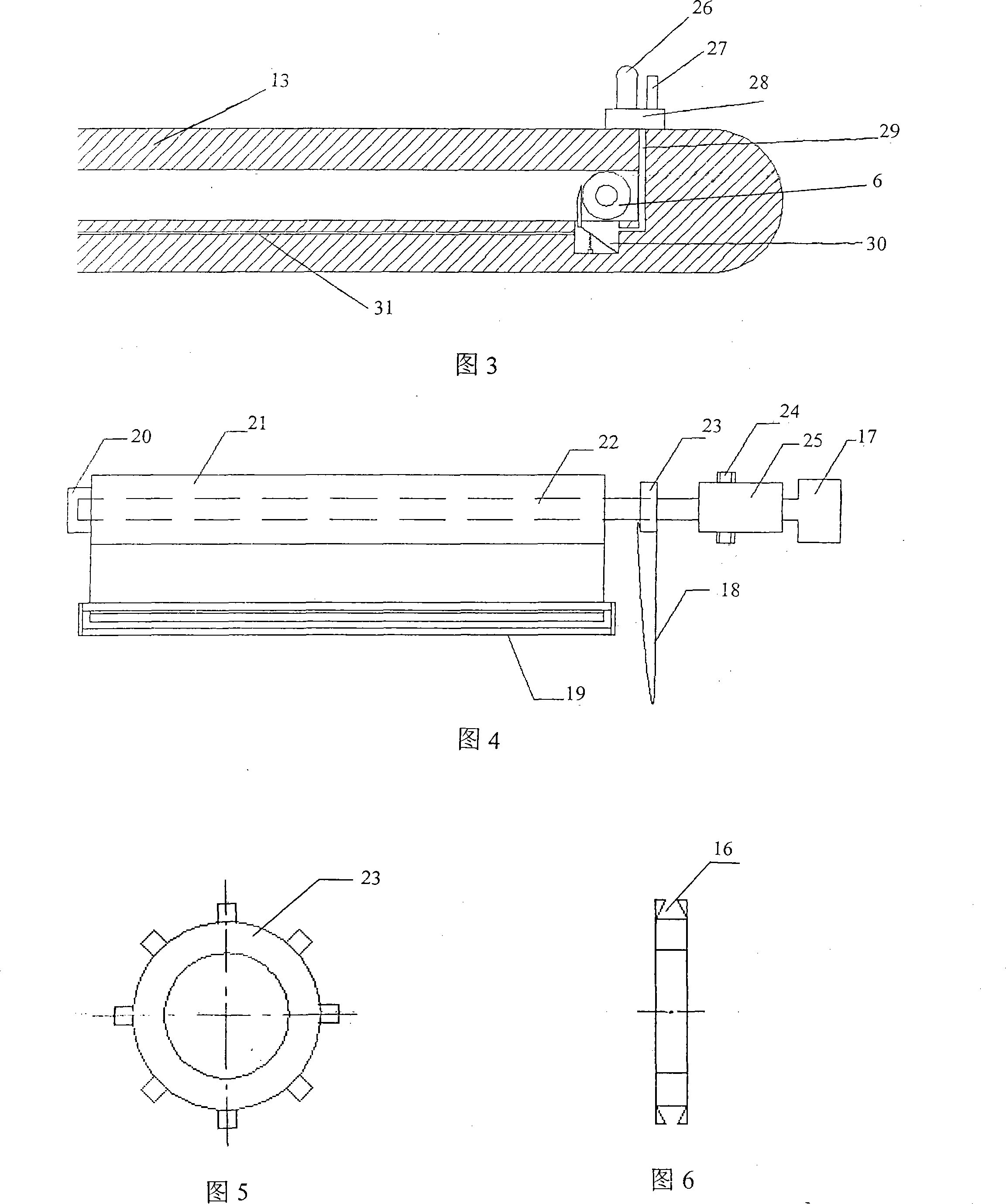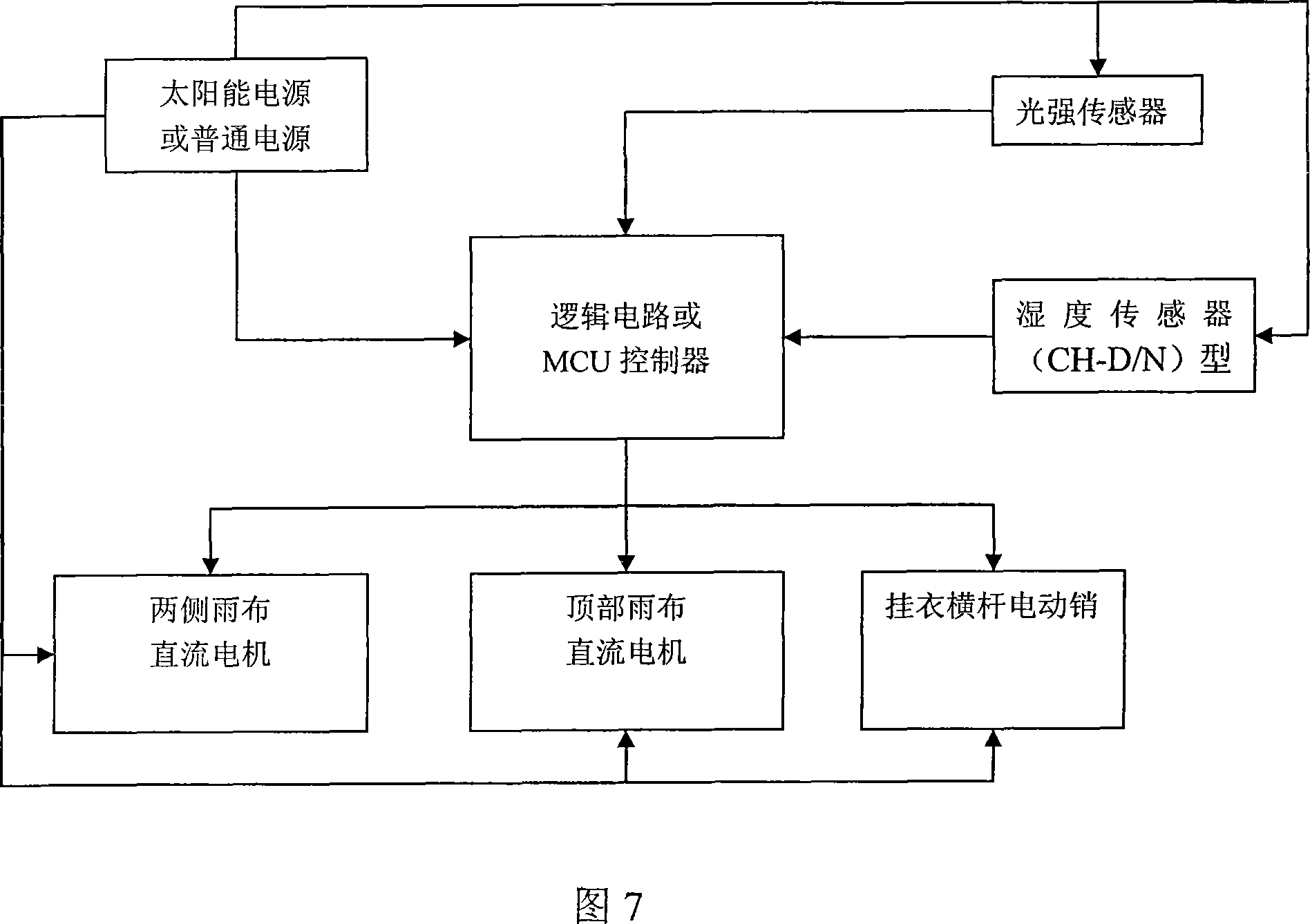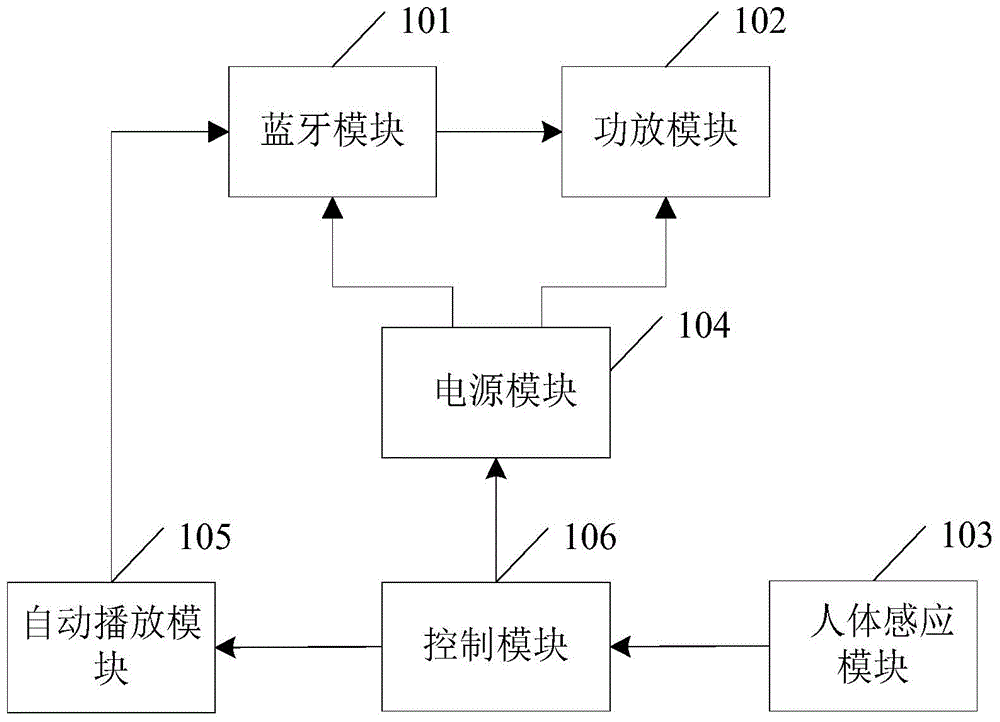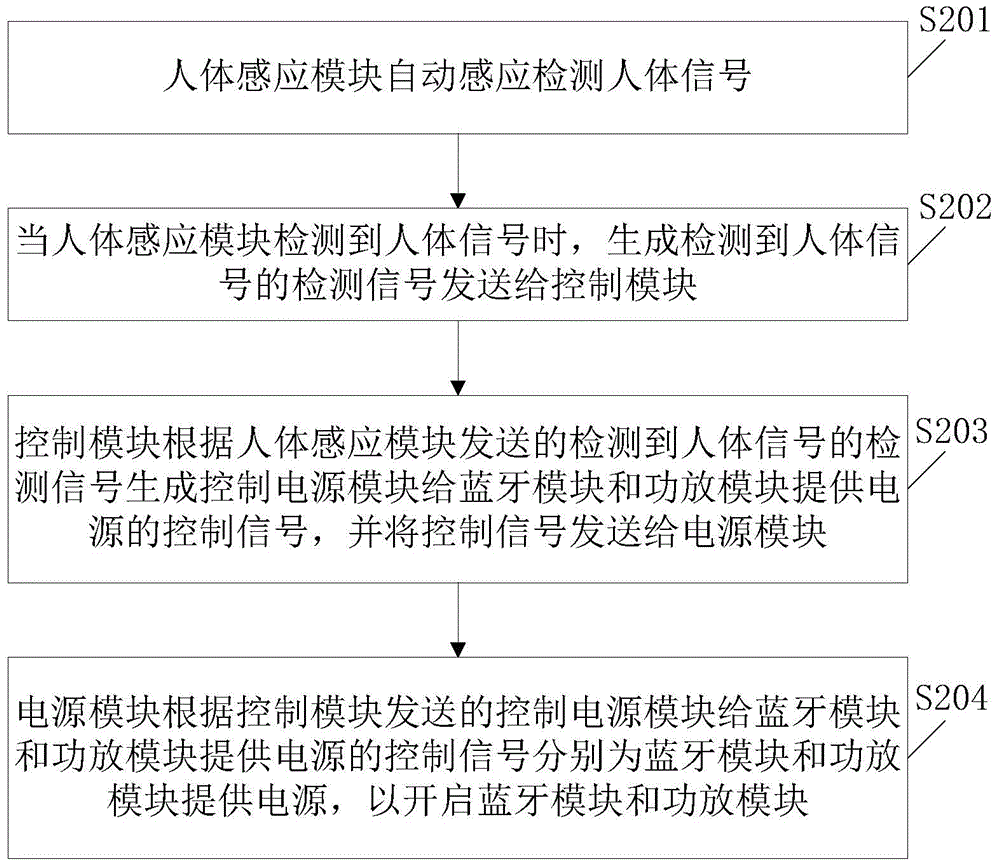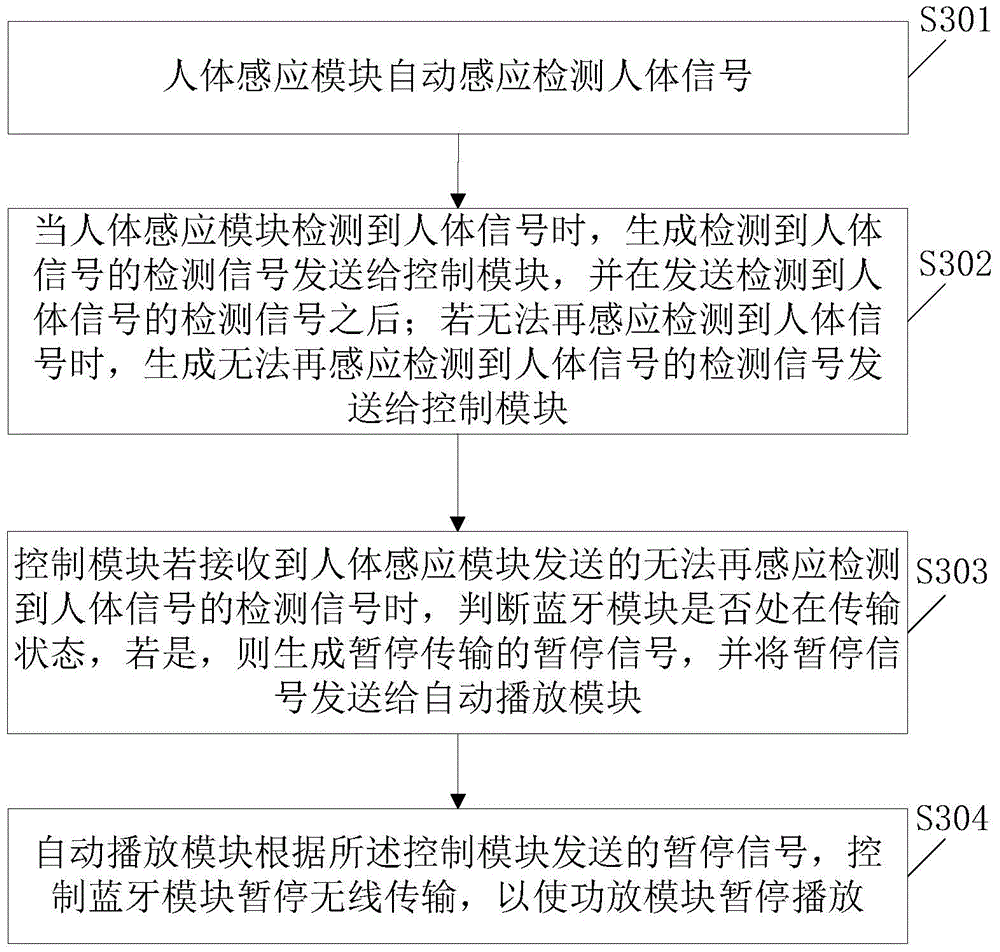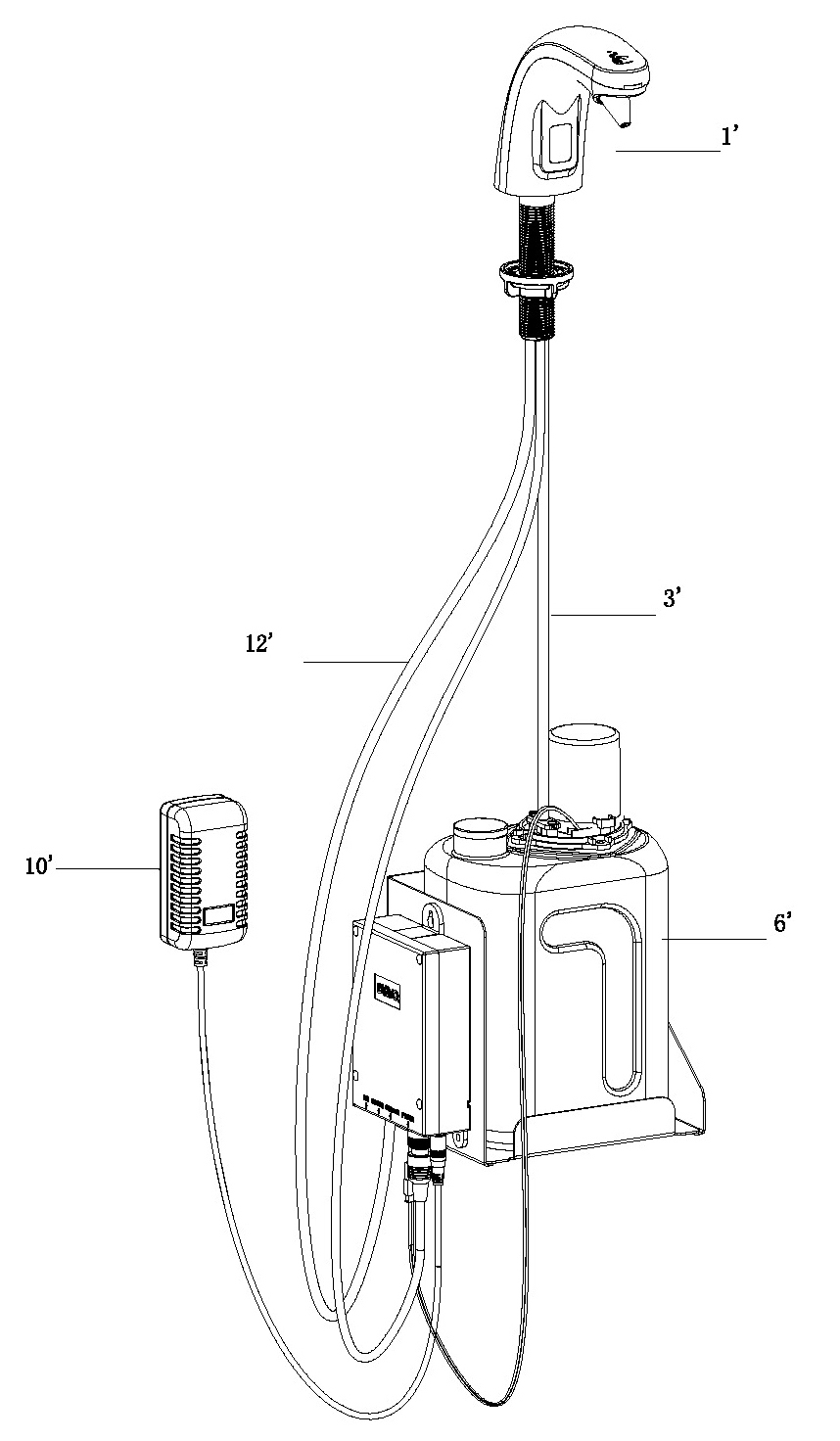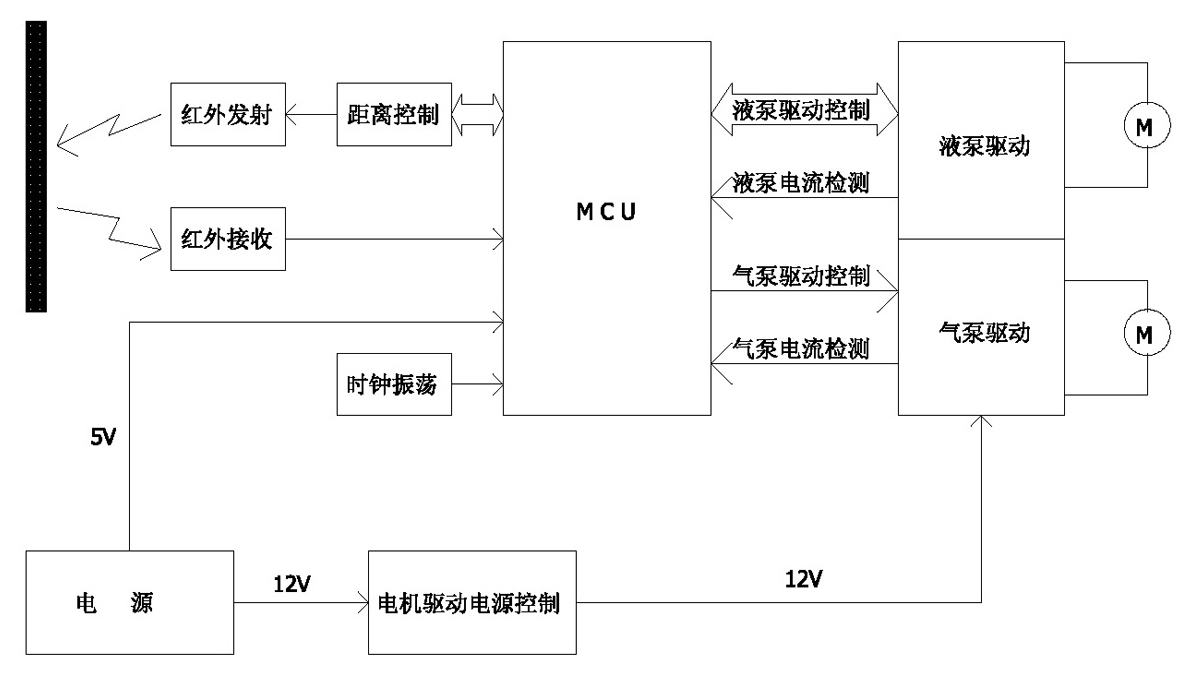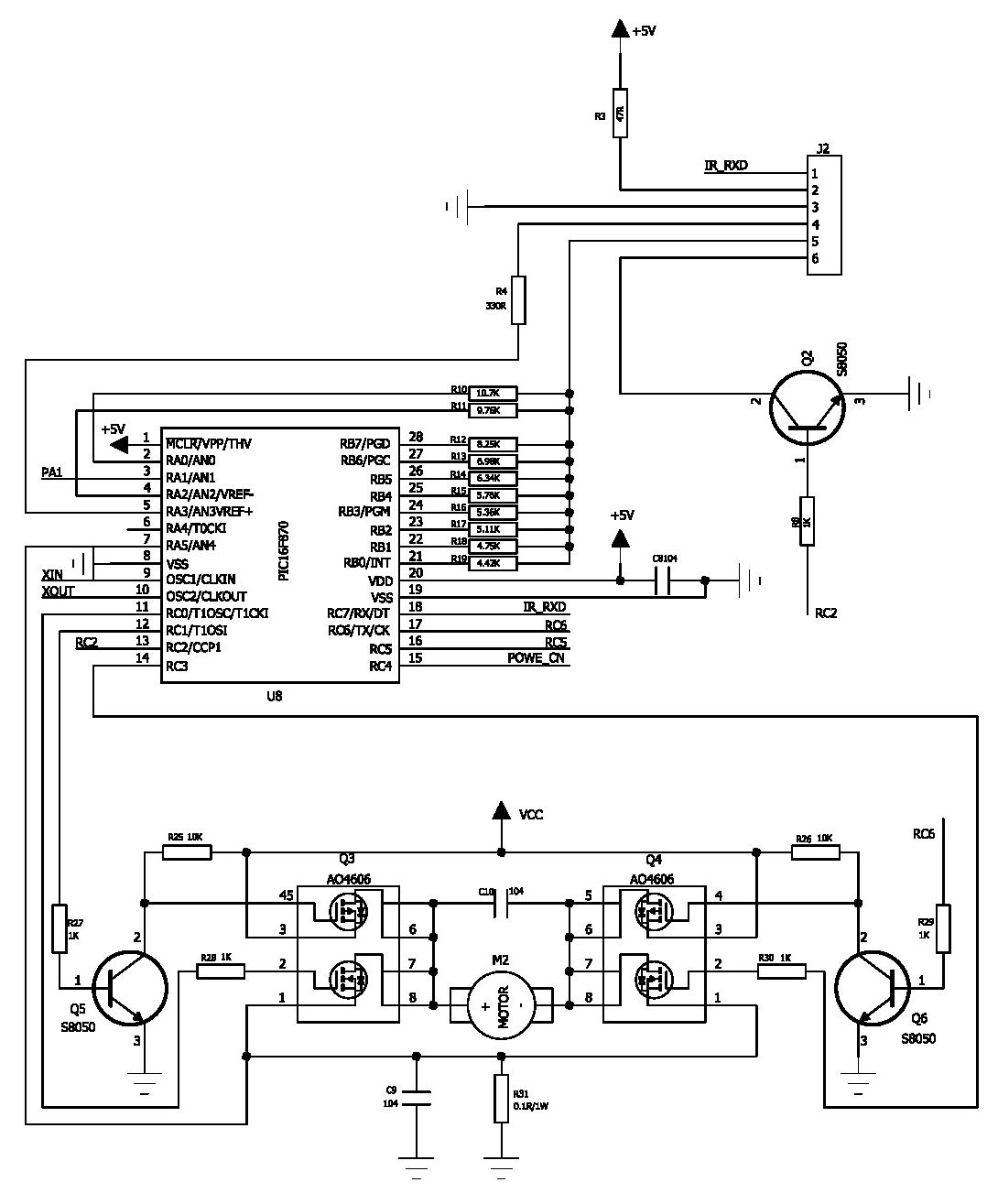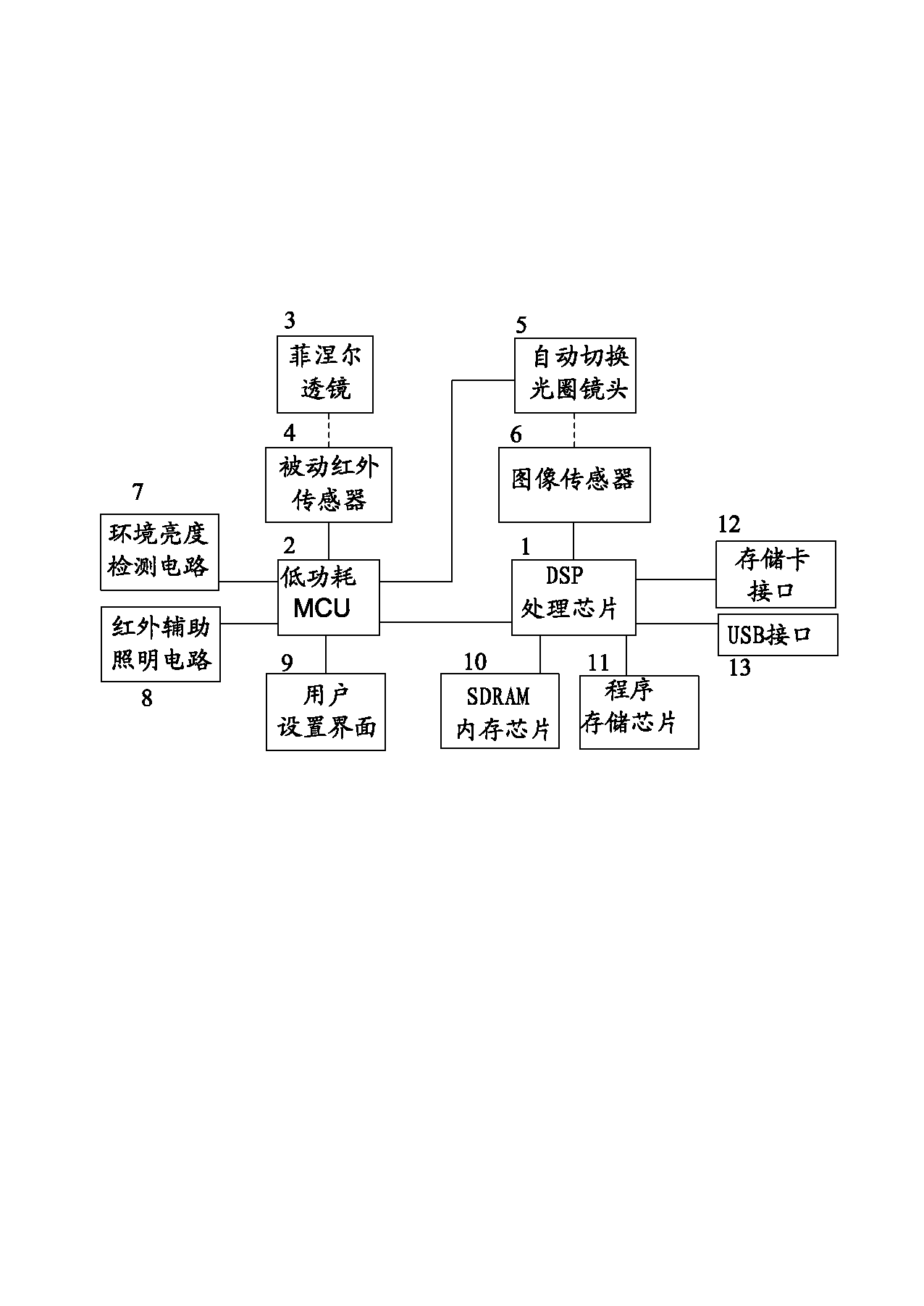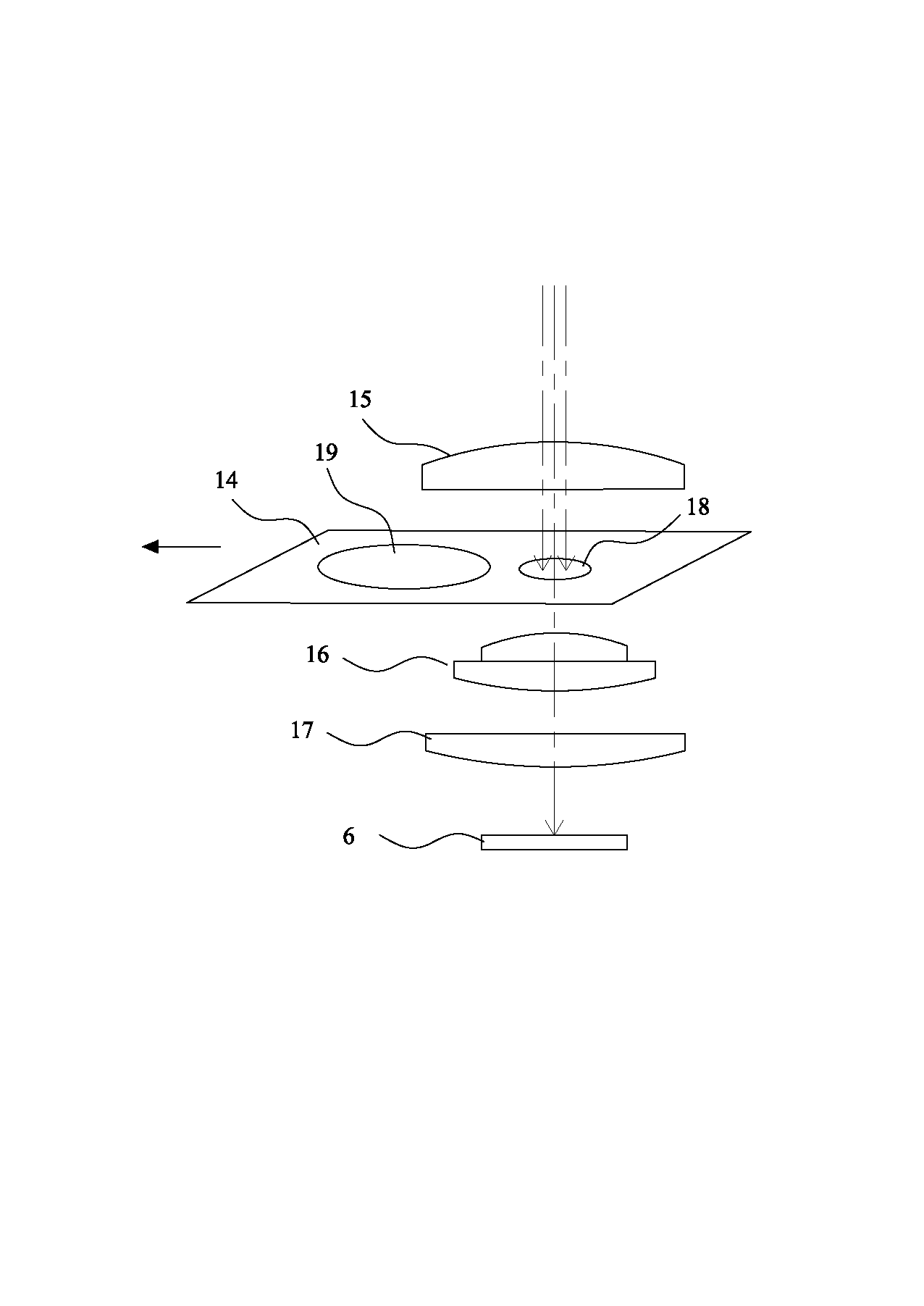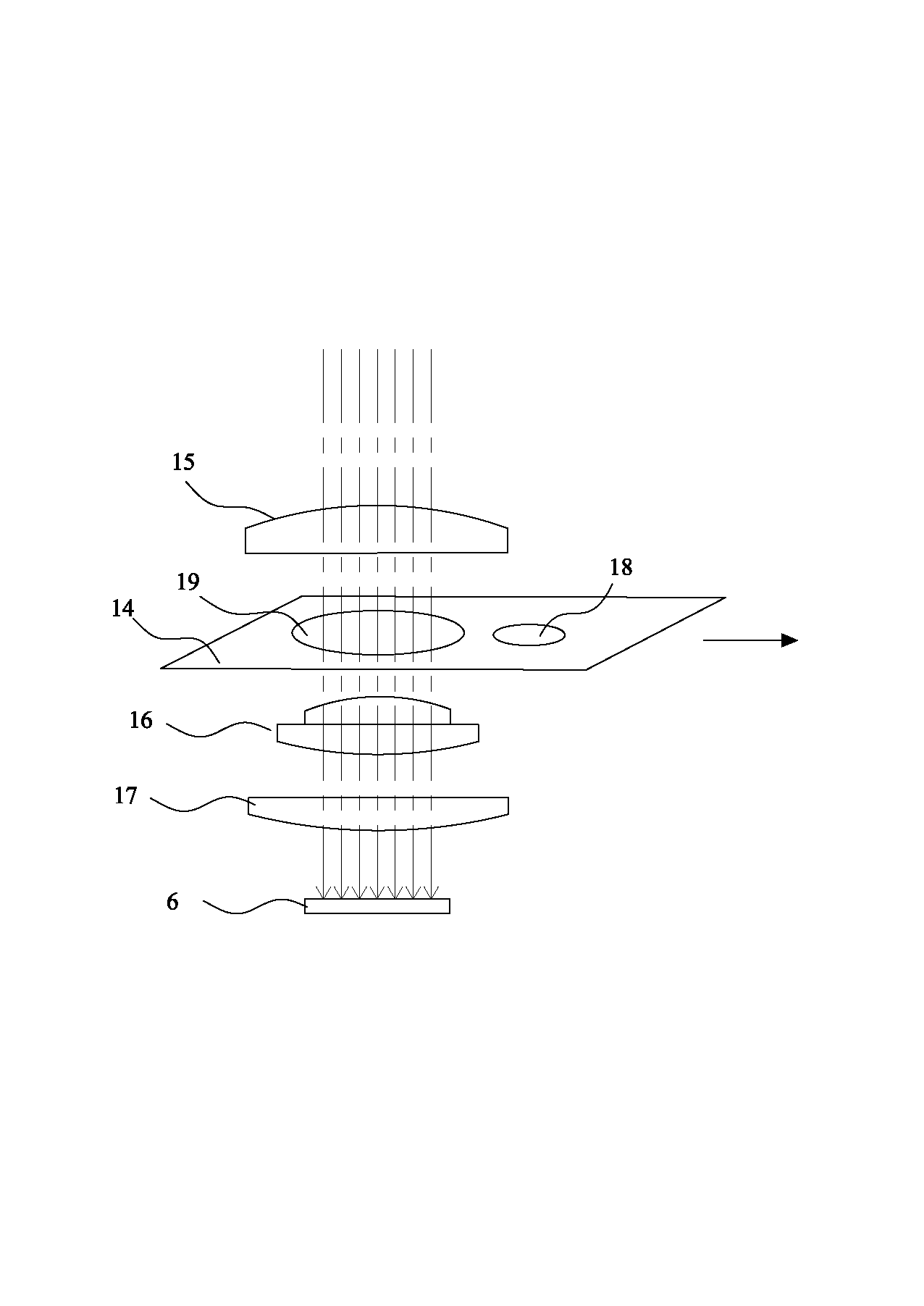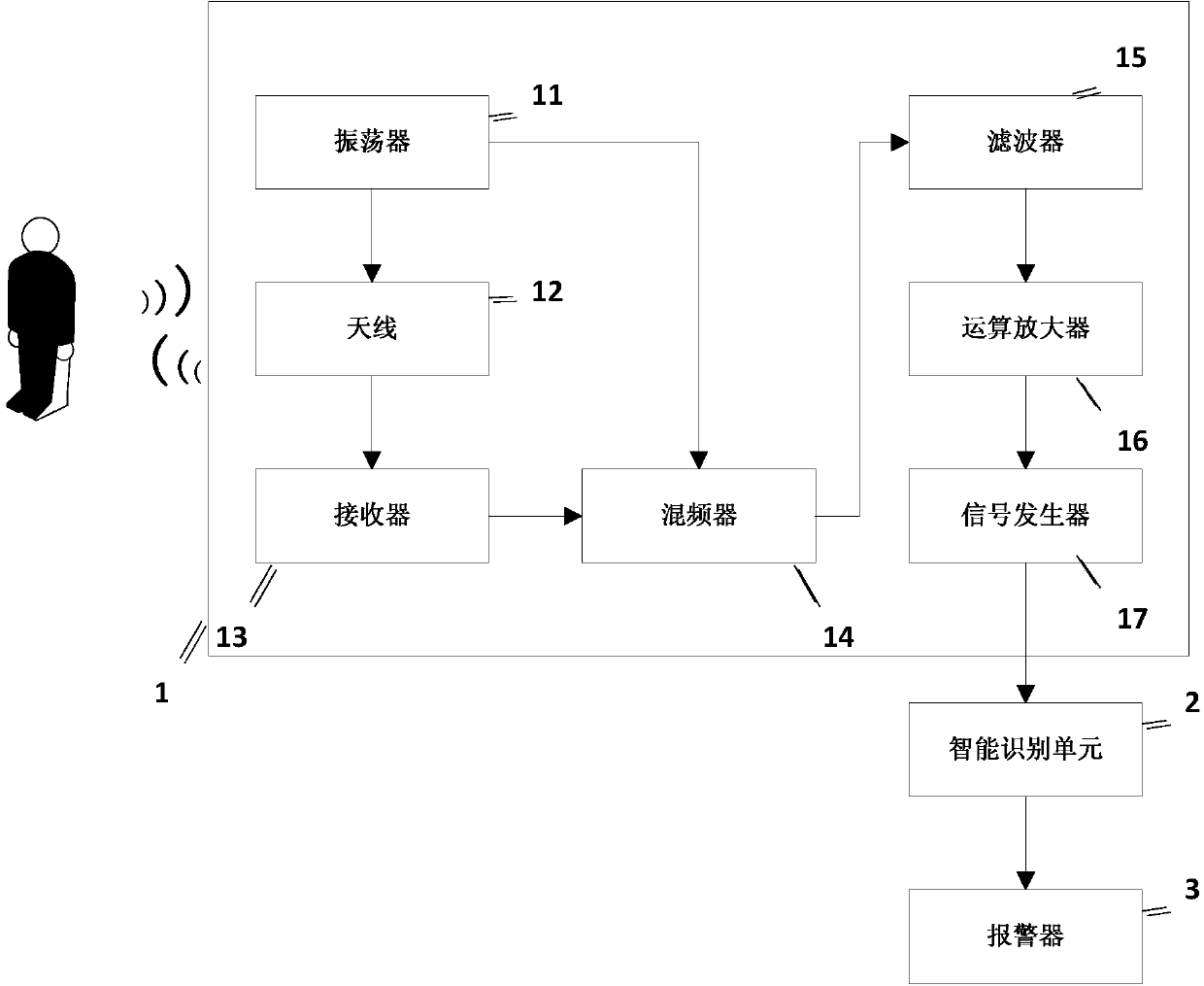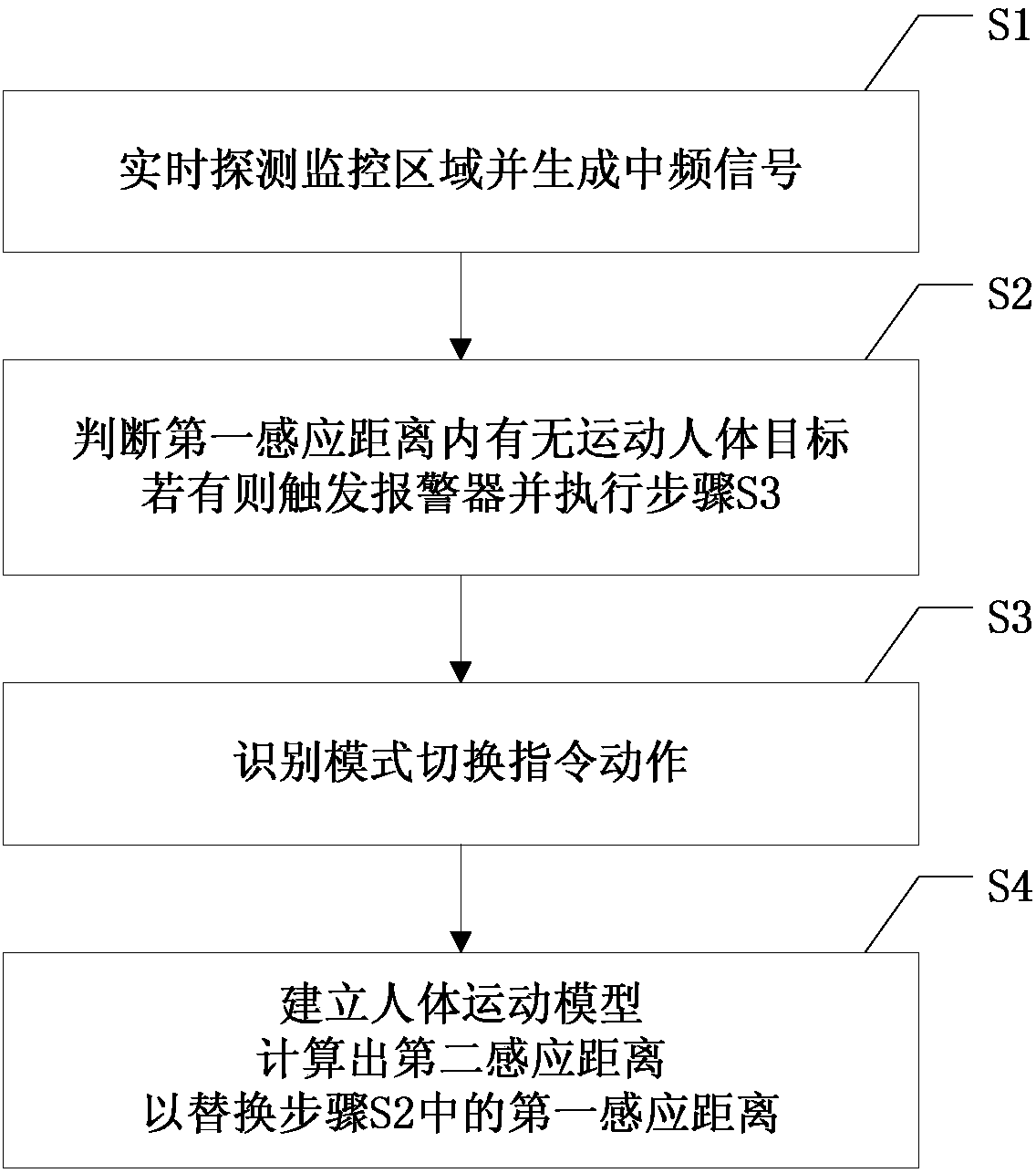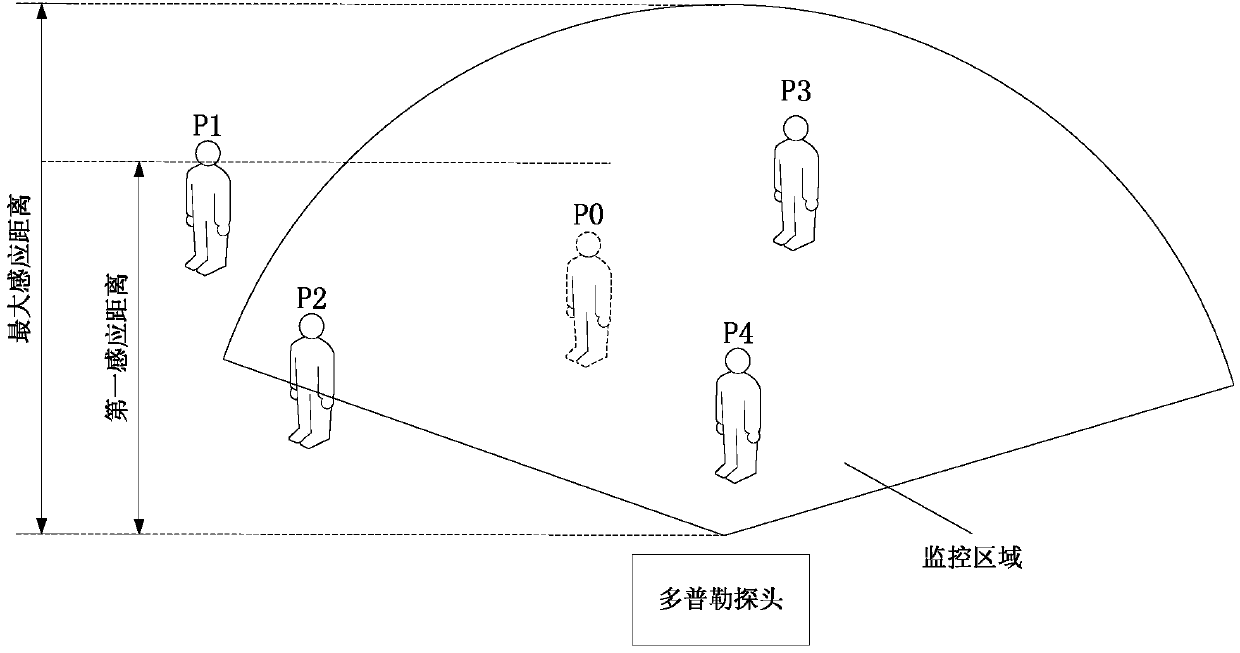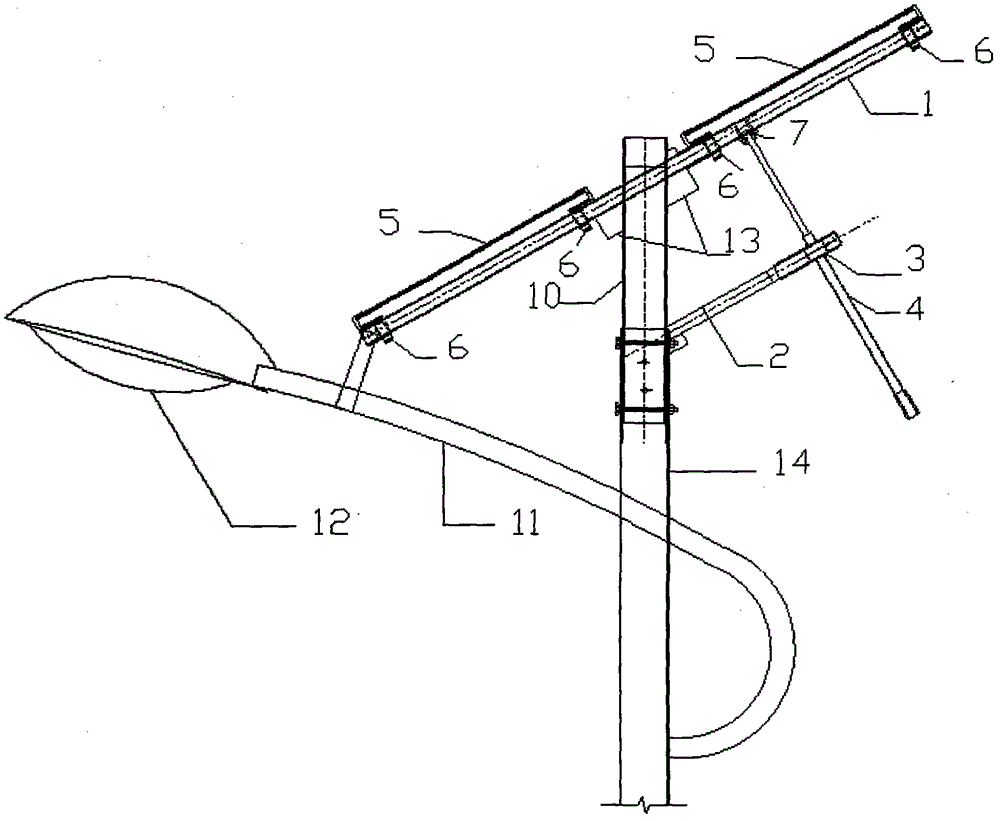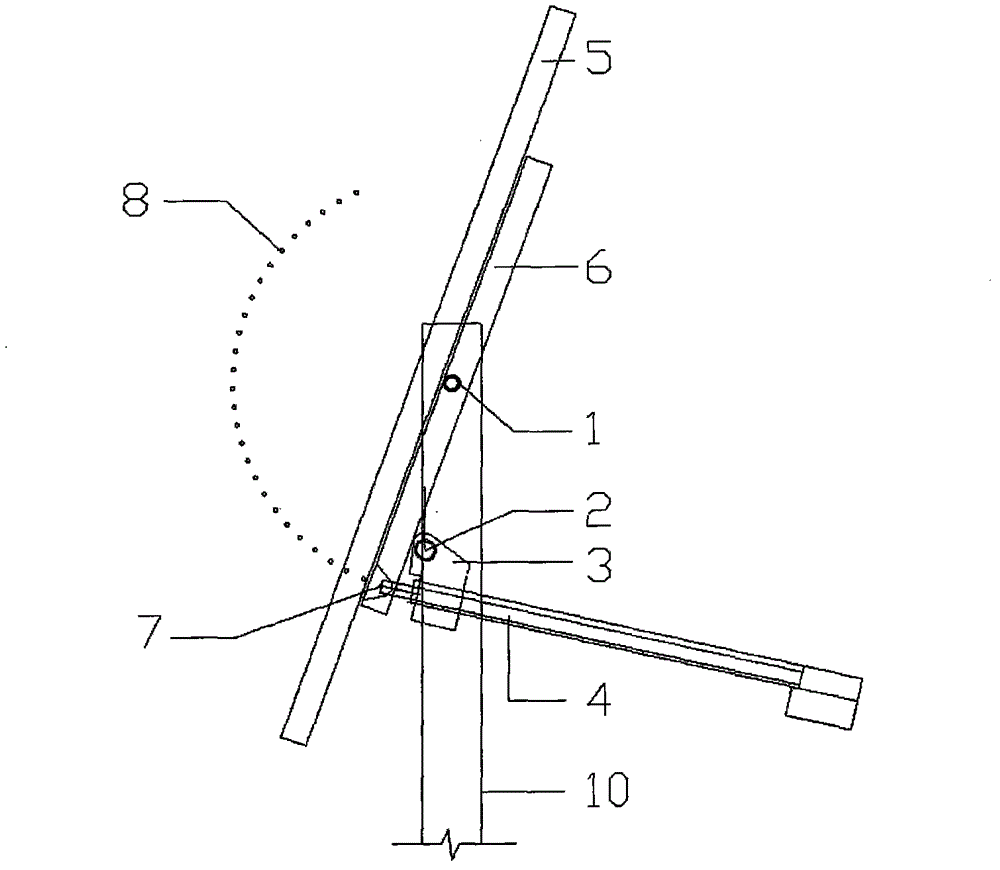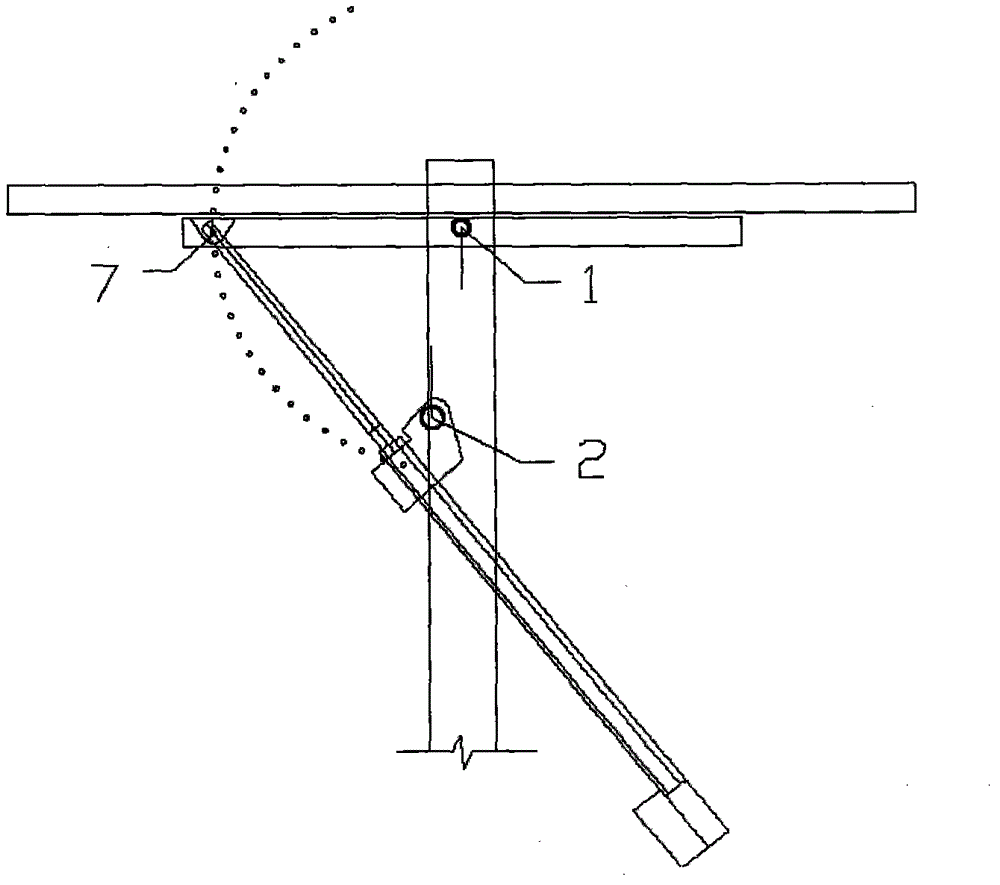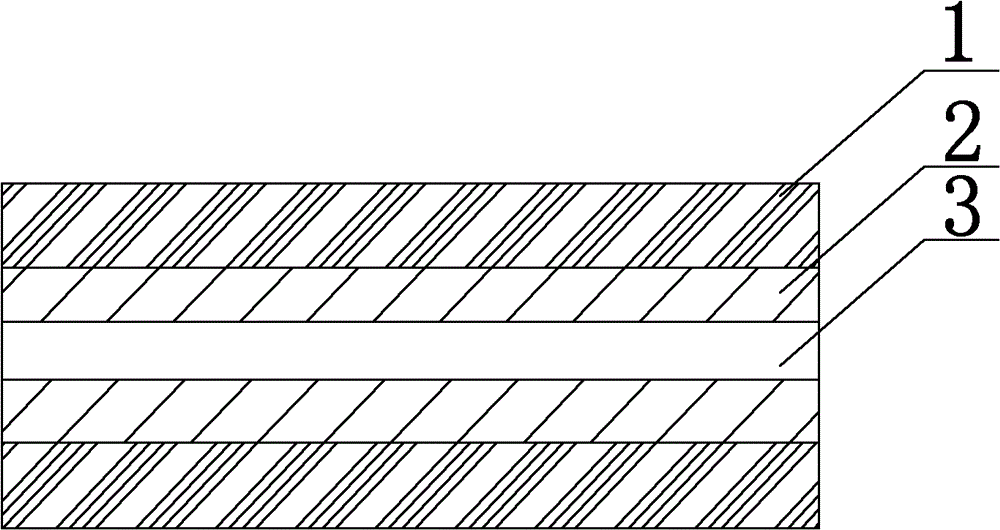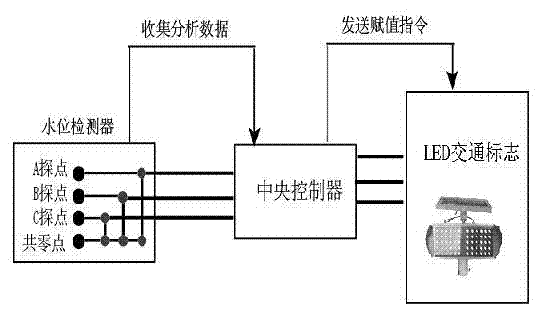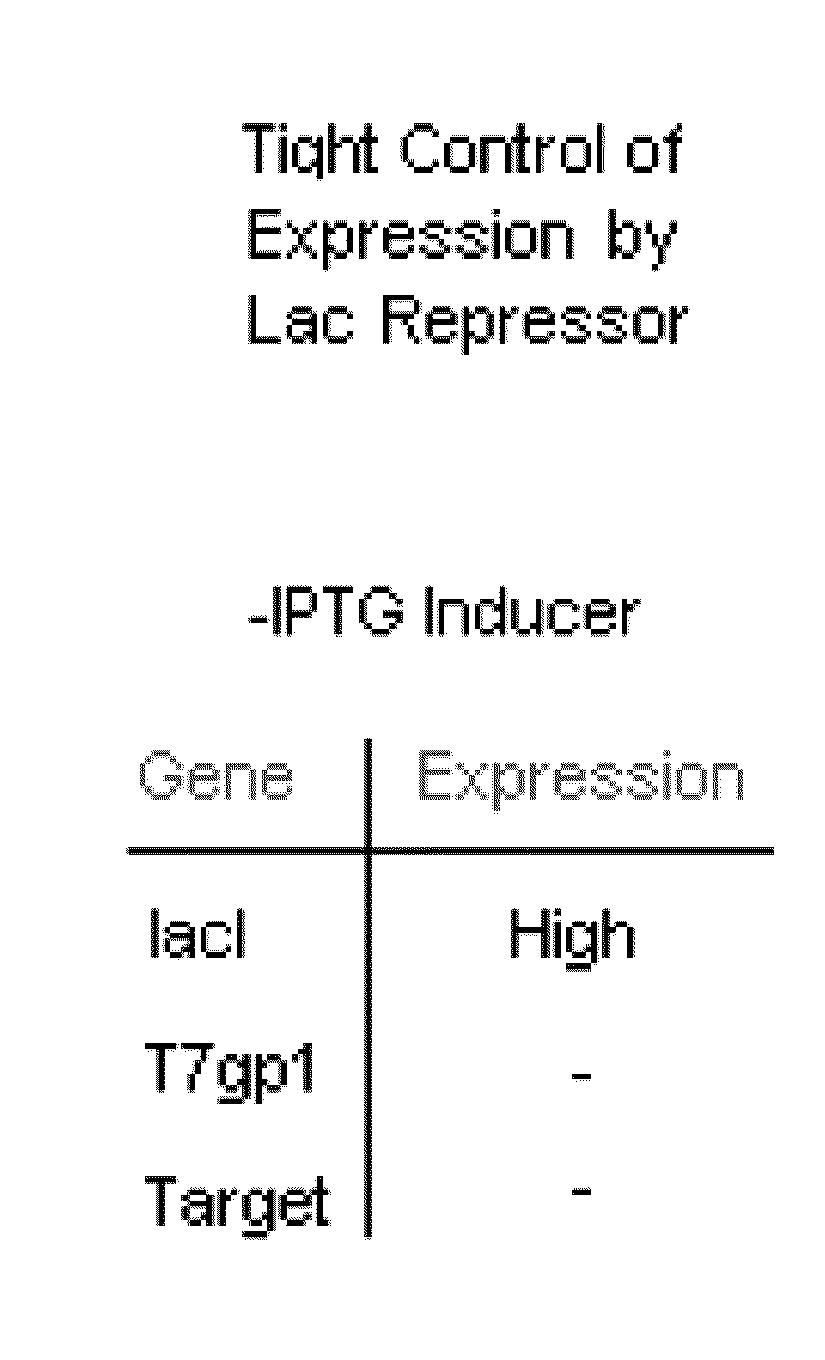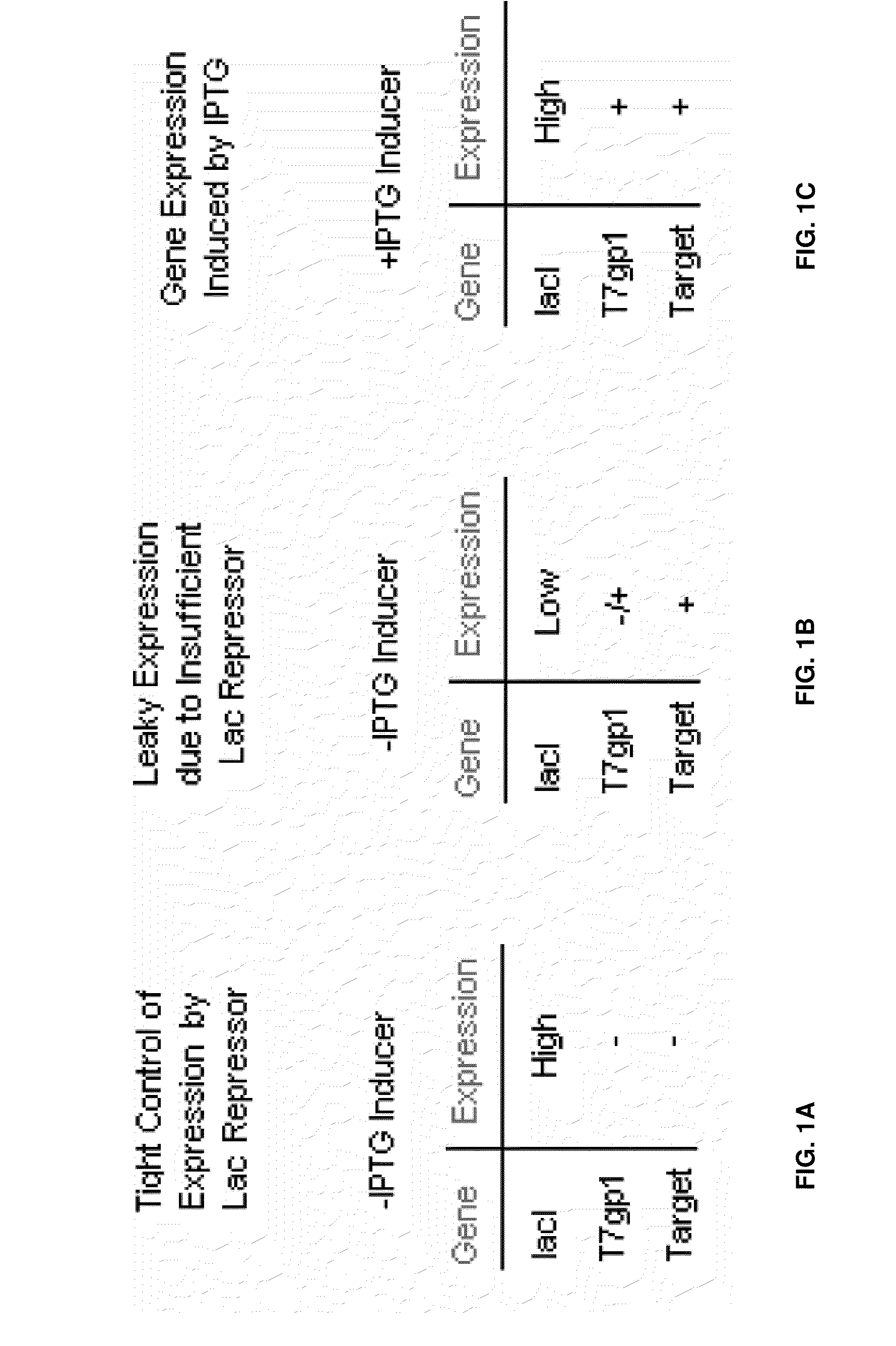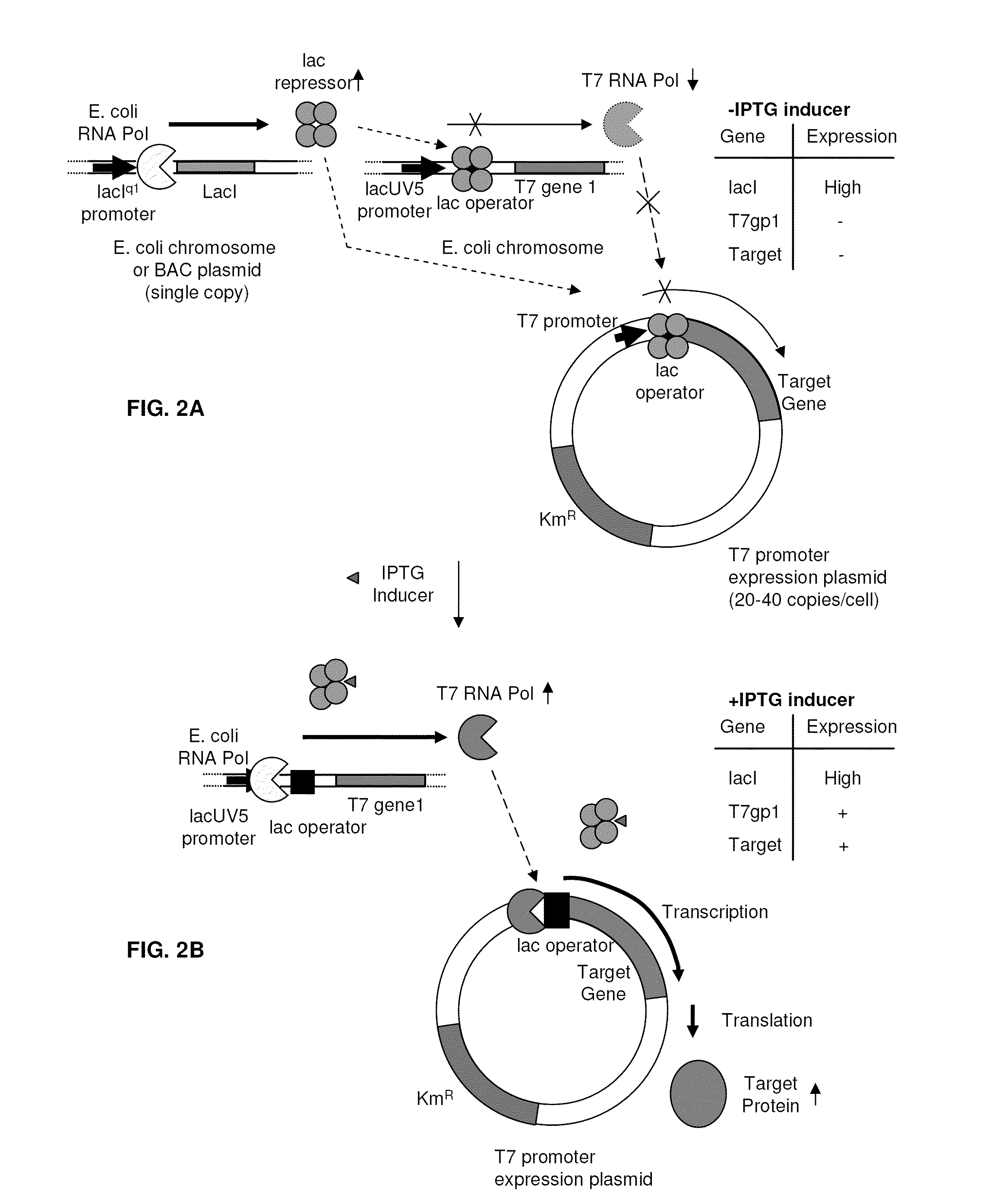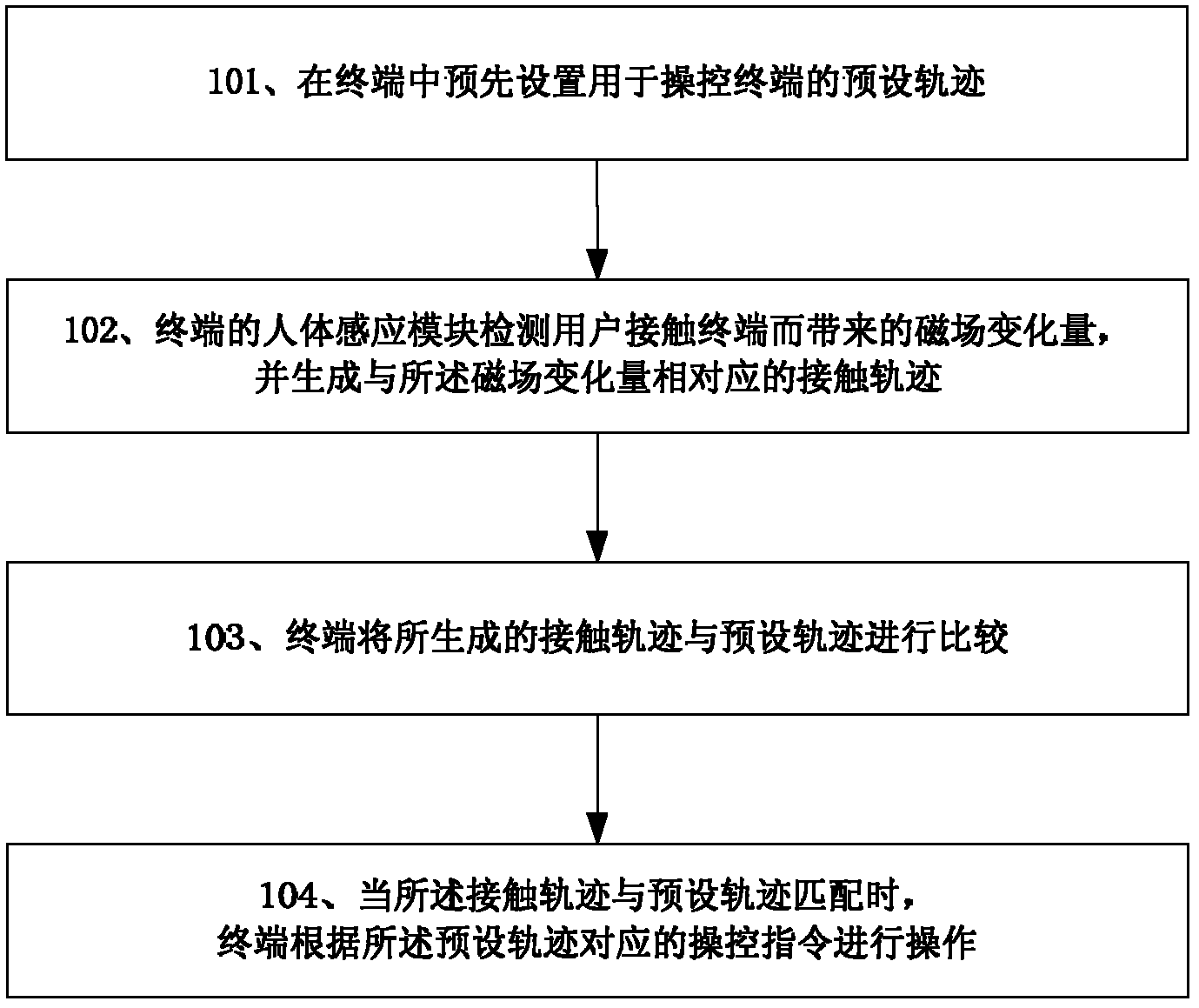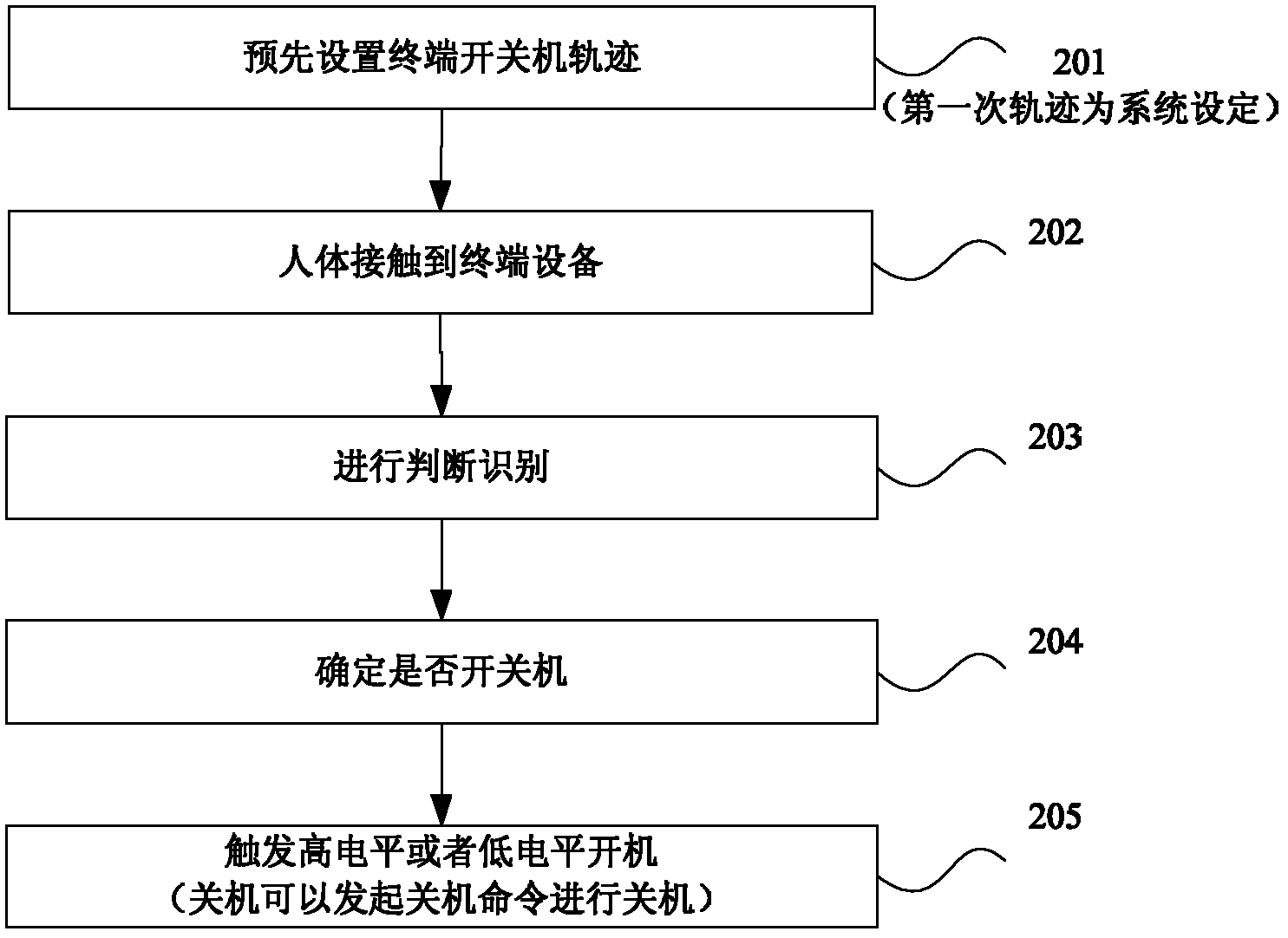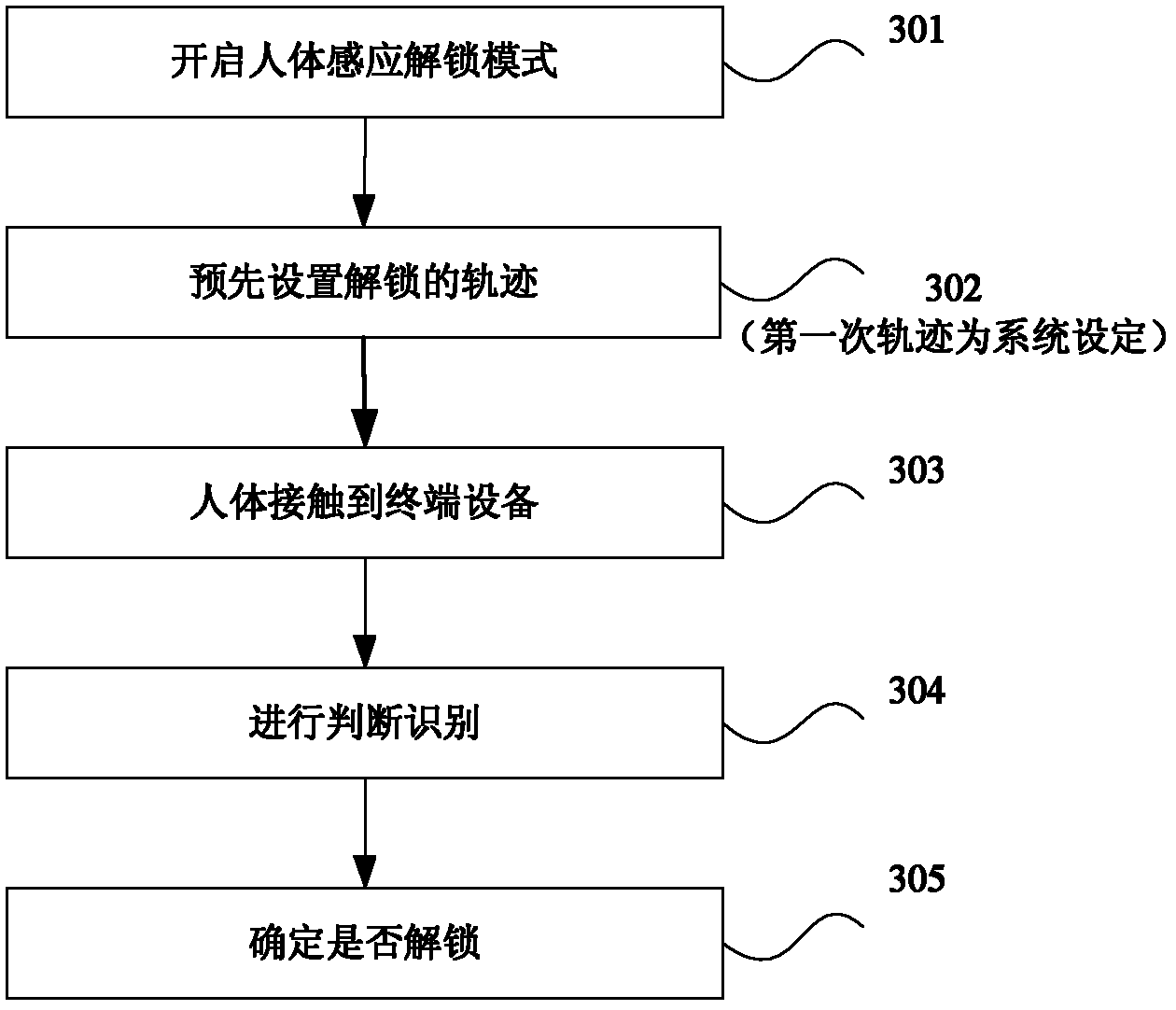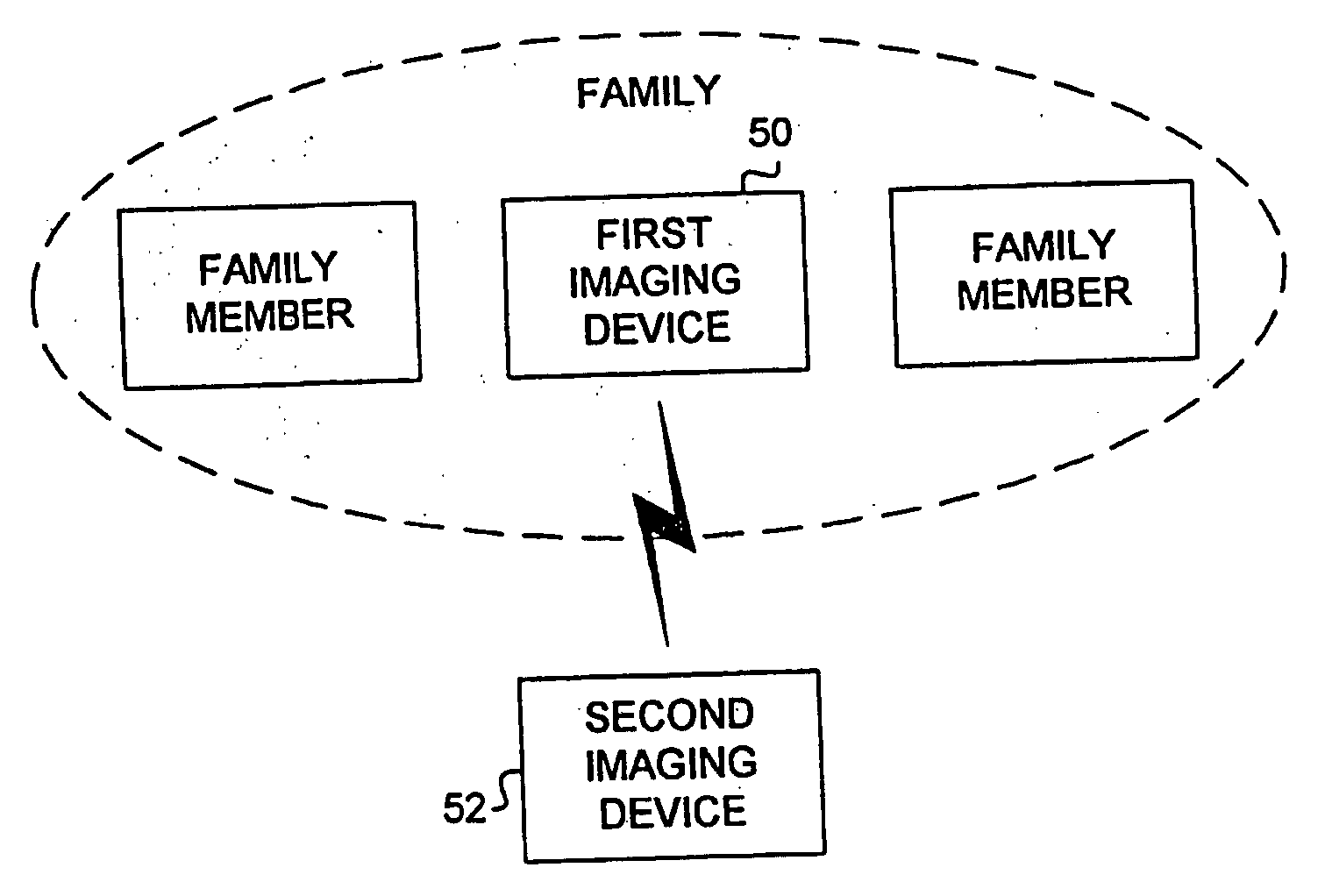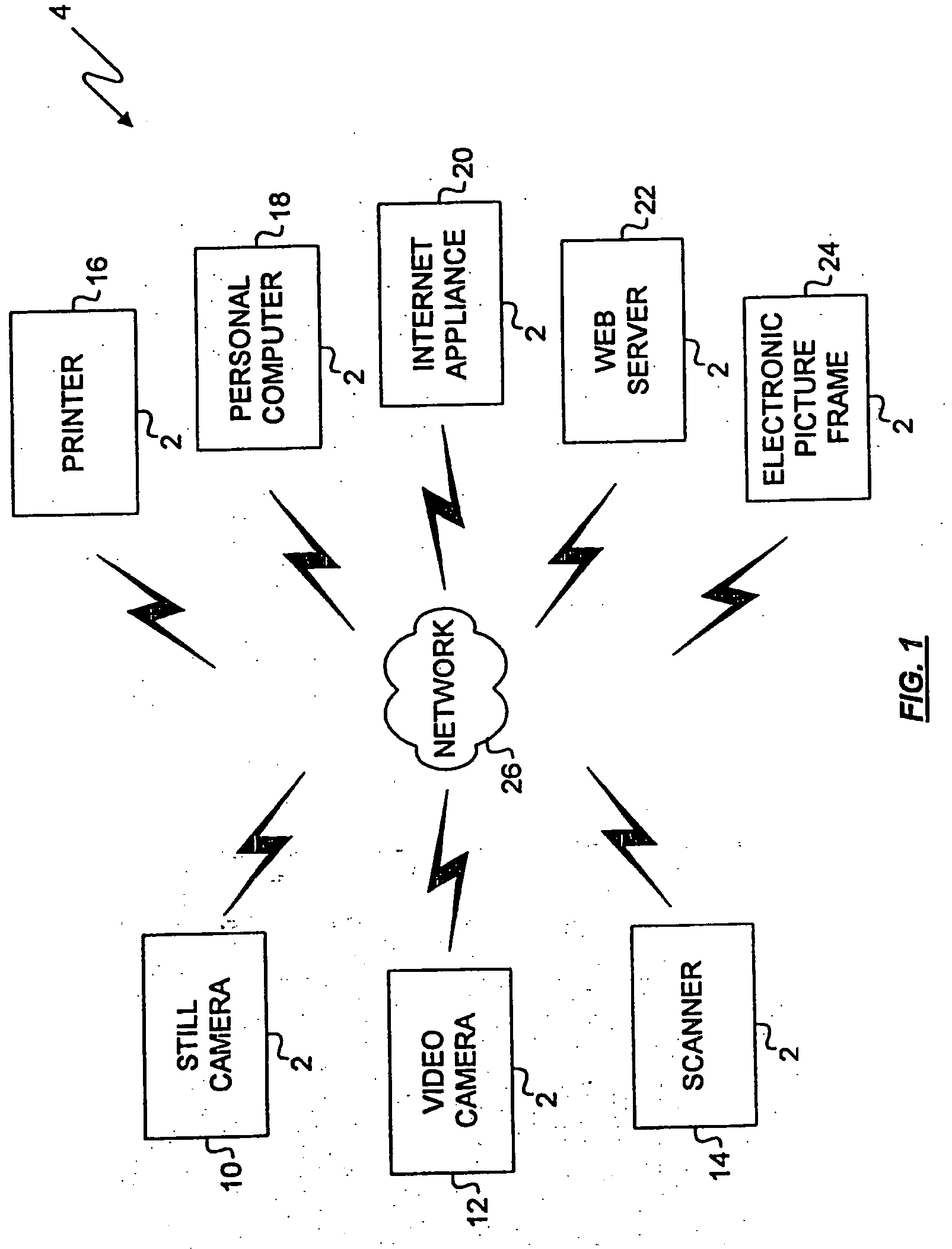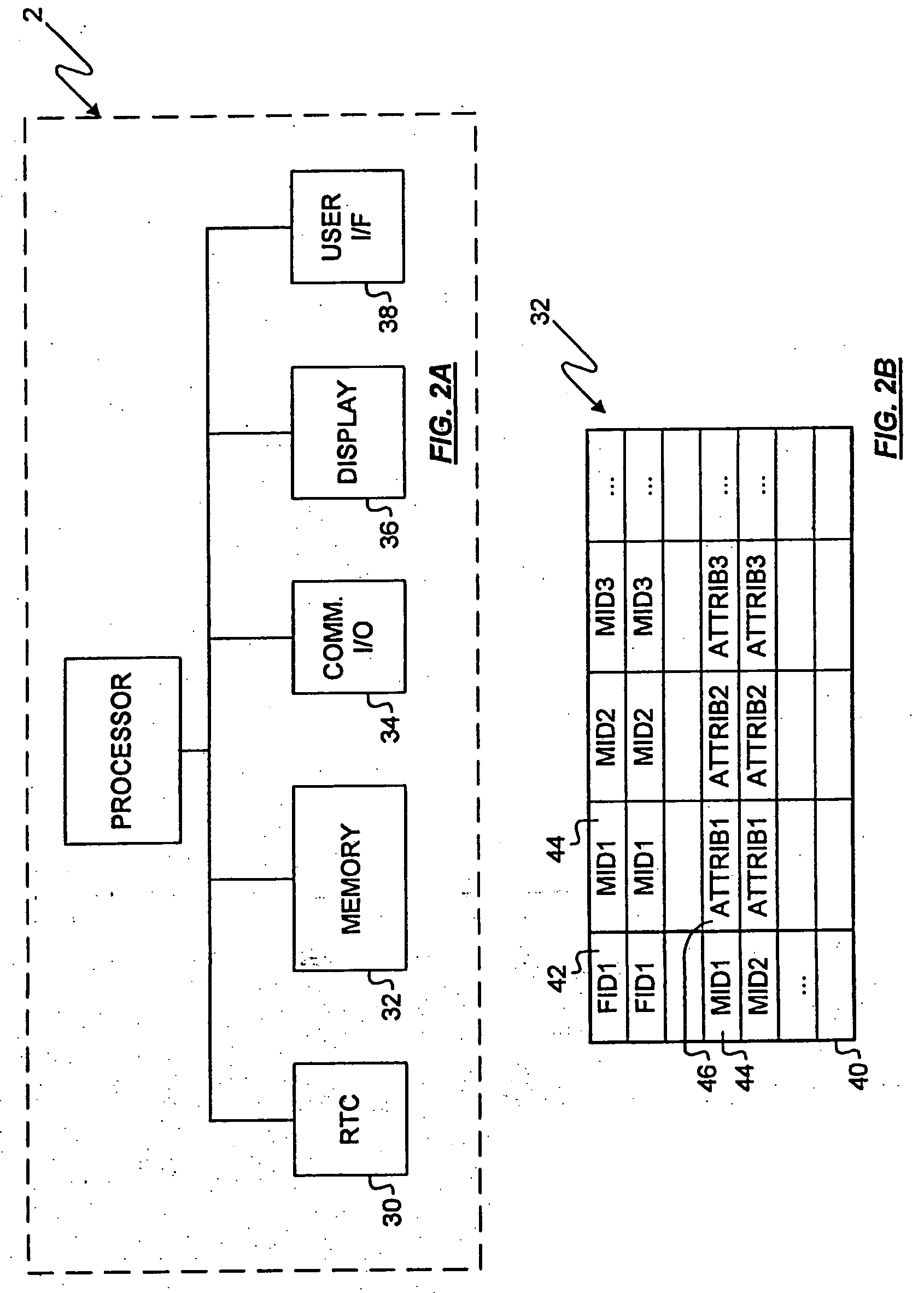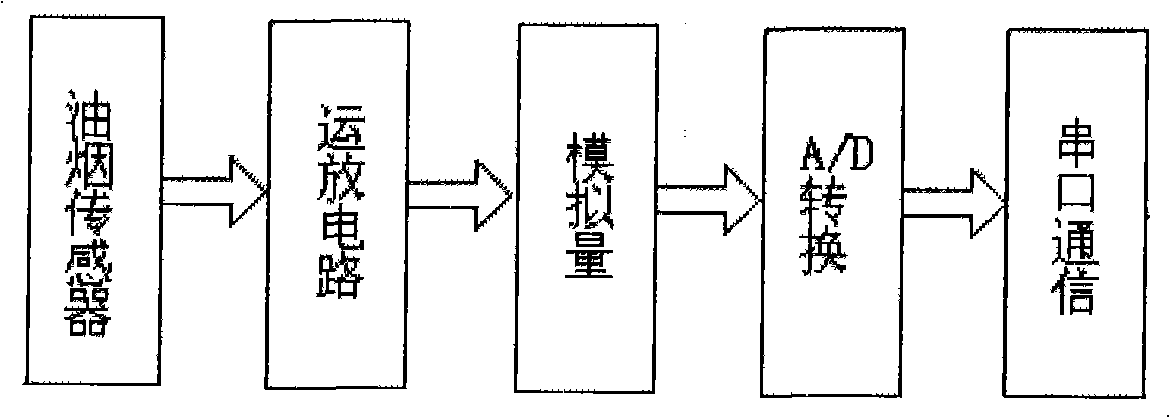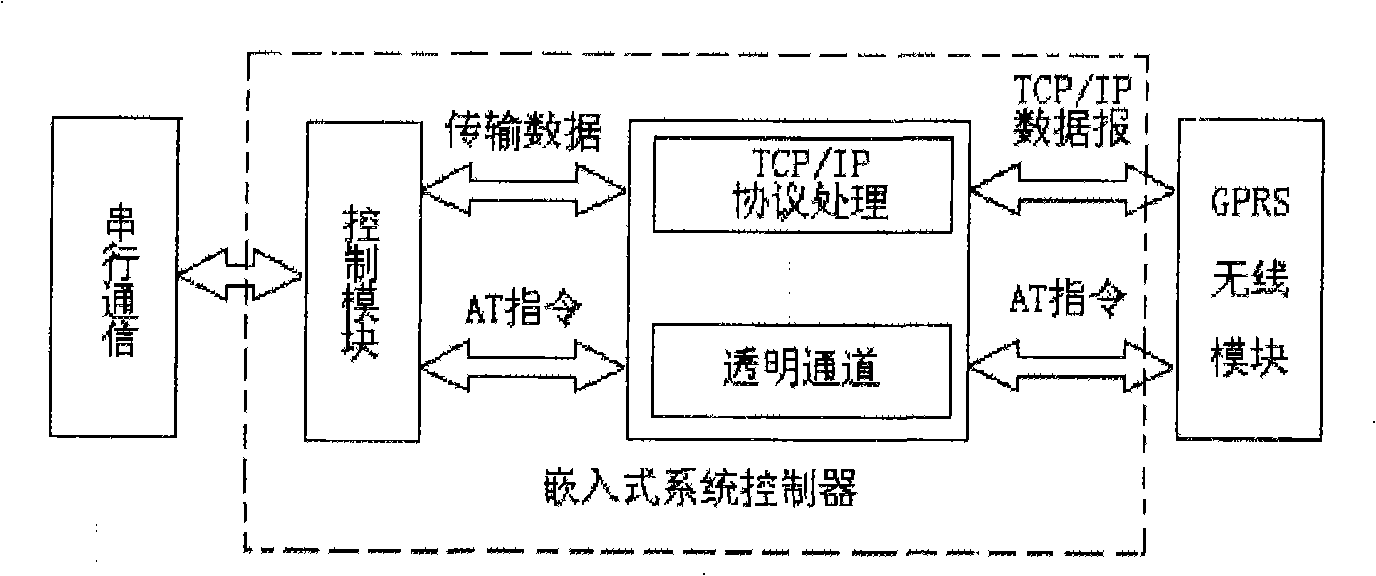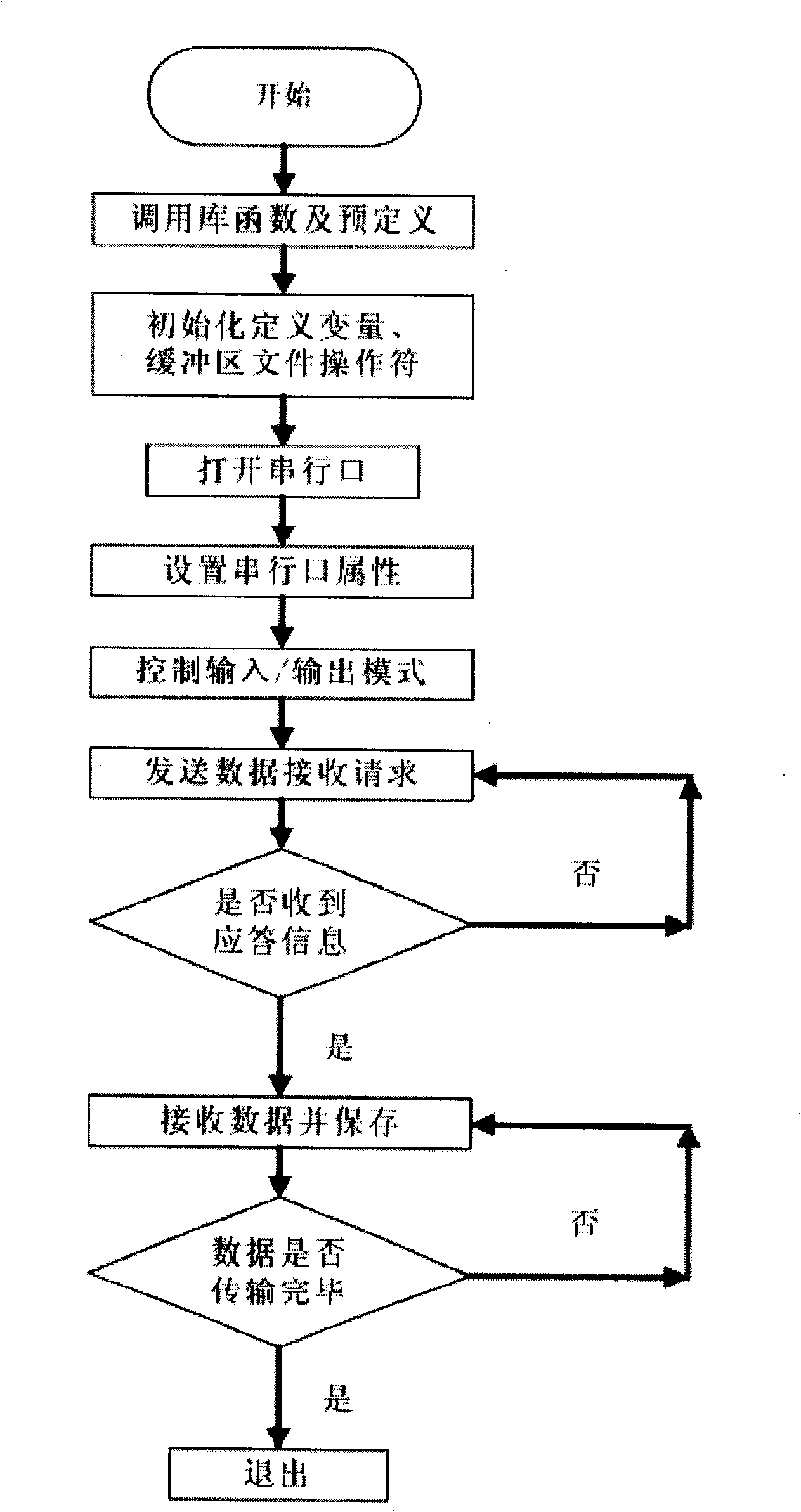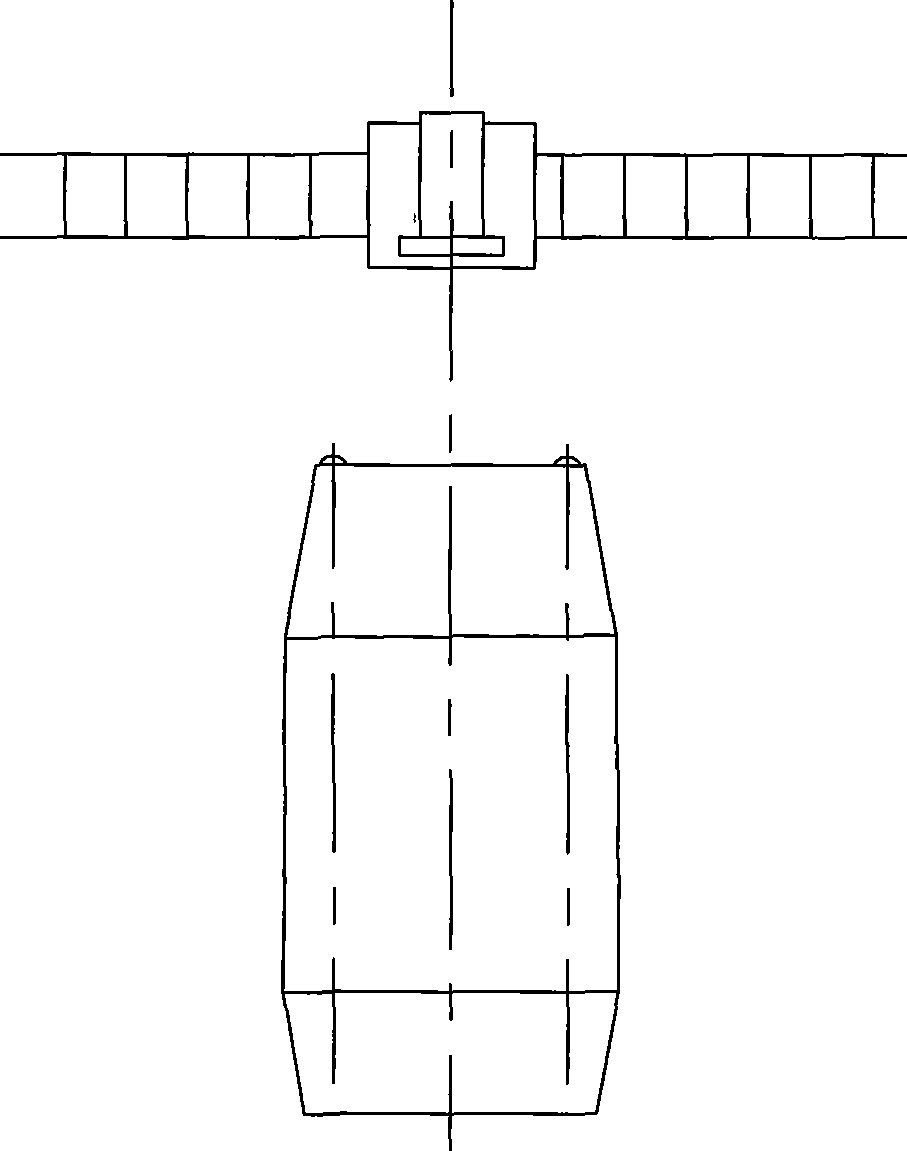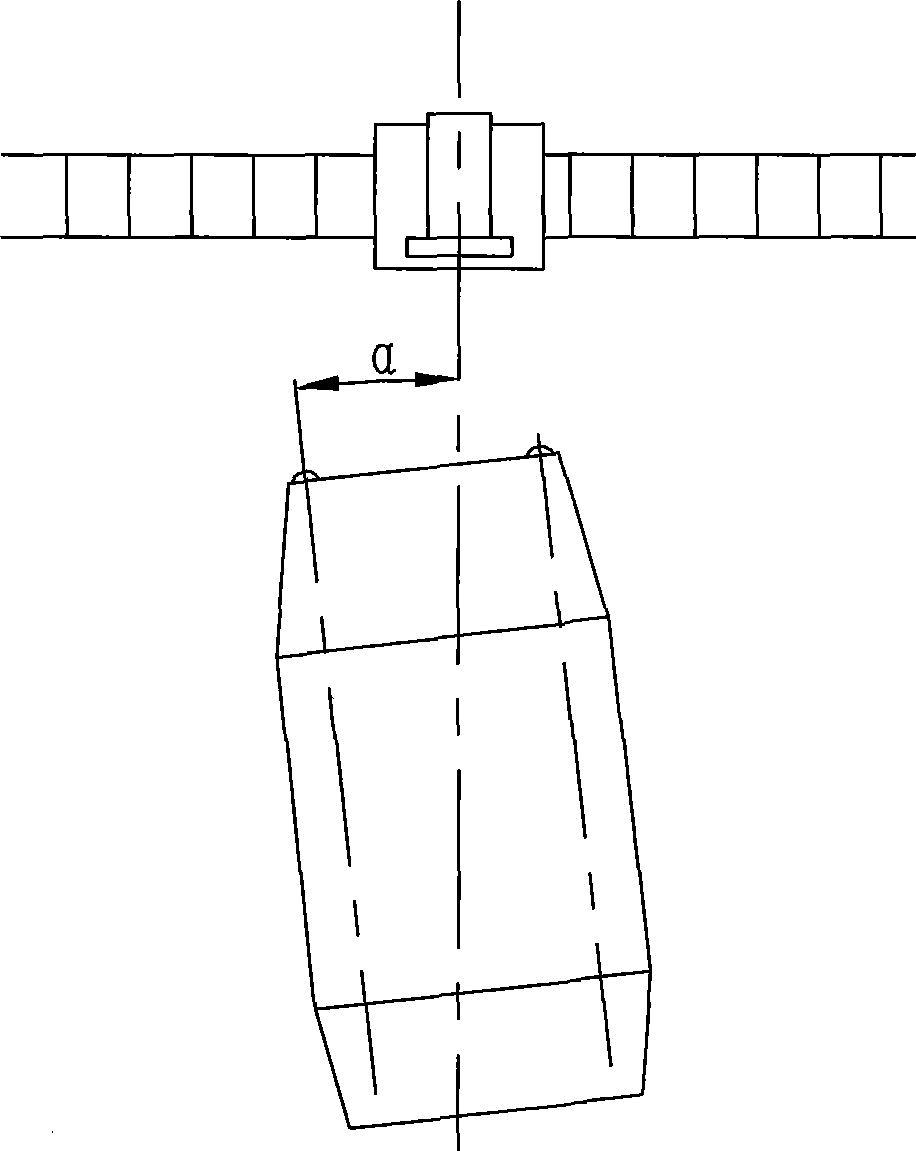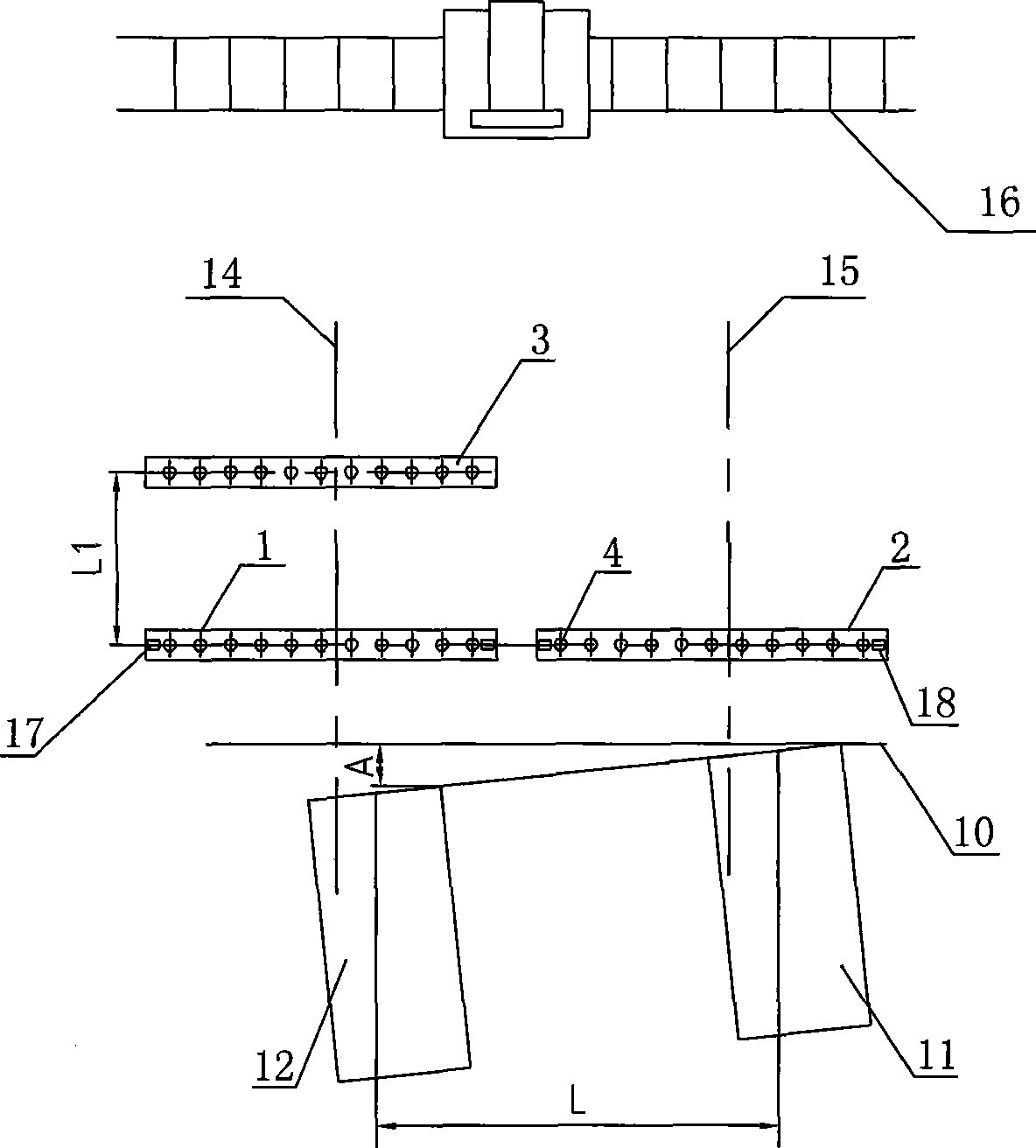Patents
Literature
426 results about "Auto induction" patented technology
Efficacy Topic
Property
Owner
Technical Advancement
Application Domain
Technology Topic
Technology Field Word
Patent Country/Region
Patent Type
Patent Status
Application Year
Inventor
Automatic charging apparatus of autonomous mobile robot and automatic charging method using the same
InactiveUS20080174268A1Improve convenienceBatteries circuit arrangementsSuction cleanersMicrocomputerElectricity
Disclosed are an automatic charging apparatus of an autonomous mobile robot and an automatic charging method using the same in that a moving robot can automatically detect infrared signals emitted from a charging station and can automatically induce charging station so as to automatically charge a battery of the robot, whereby improving convenience thereof. The automatic charging apparatus of the autonomous mobile robot, comprises a charging station having connecting terminals for charging the battery and an infrared signal generator for emitting infrared signals on a position information thereof; and a moving robot having an infrared receiving apparatus for receiving the infrared signals from the infrared signal generator in a cast that a remnant capacity of the battery is insufficient or a charging order is inputted, a microcomputer for controlling a traveling of the moving robot by using a detected position information of the charging station through the infrared signals received from the infrared receiving apparatus, and charging terminals for charging the battery with electricity through the contact with the connecting terminal.
Owner:YUJIN ROBOT
Portable-power-source renting control system and renting control method
InactiveCN107437301AFlexible charging serviceRealize intelligent managementApparatus for meter-controlled dispensingBuying/selling/leasing transactionsAuto inductionMode switching
The invention discloses a portable-power-source renting control system and renting control method. Portable power sources re stored in a portable-power-source storage terminal and have identifiable identity recognition codes; a user terminal sends a rental service request to a cloud server and receives feedback information; the cloud server receives and responds user renting / returning requests; the portable-power-source storage terminal receives and responds the user renting / returning requests. By means of the system, users can rent the portable power sources from a portable-power-source rent terminal in a self-service mode. The portable-power-source rent terminal is provided with an auto-induction module, and the auto-induction module is switched from an advertisement mode to a business operation mode according to a predetermined program; the equipment is thus more friendly to users and saves much time of the users. The portable-power-source storage terminal automatically completes the detection of various parameters of the portable power sources and meanwhile uploads the information to the cloud server, and systematic and intelligent management of the portable power sources is achieved.
Owner:上海无衍电子科技有限公司
Earphone system and control method with automatic sensing detection and control functions
InactiveCN103686515AWith detection functioWith control functionElectronic switchingEarpiece/earphone attachmentsHeadphonesSignal processing
The invention discloses an earphone system and a control method with automatic sensing detection and control functions. The earphone system comprises a control unit, an electronic sensing and detecting unit and a signal processing unit, wherein the electronic sensing and detecting unit is used for automatically sensing and detecting the wearing state of an earphone, a detecting signal is correspondingly generated and sent to the signal processing unit, the signal processing unit is used for receiving a detecting signal sent by the electronic sensing and detecting unit, processing and converting the detecting signal into a signal capable of being identified by the control unit and sending the signal to the control unit, and after the control unit receives the signal processed by the signal processing unit, a control instruction is generated and sent to an earphone main body circuit unit. The electronic sensing and detecting unit in the earphone system with the automatic sensing detection and control functions is a non-mechanical type switch, can automatically sense and detect the wearing state of the earphone with the head of the human body directly serving as a target, and the problems of misjudgment of a mechanical switch and poor precision are solves. The earphone system is convenient to use and truly achieves the energy saving aim.
Owner:QINGDAO GOERTEK
Automatic sensing power systems and methods
Owner:GREEN PLUG LLC
Automatic sensing power systems and methods
Owner:GREEN PLUG
Imaging Detecting with Automated Sensing of an Object or Characteristic of that Object
ActiveUS20130126703A1Light weightSmallTelevision system detailsMaterial analysis by optical meansSpatial noiseParallel processing
Detection of a target object or a characteristic of that object, e.g. temperature or movement in an image of a scene at a focal plane of the image and with processing of signals representative of the image occurring at that focal plane with a sensor and an integrated circuit processor on an imaging circuit chip used to record the scene. Moreover, processing of the signals representative of the image and the object or characteristic of the object can all be processed in parallel. This arrangement allows for filtering of objects with the ability to distinguish the object generating signals from background clutter. The incorporation of the entire circuit in this integrated circuit chip increases the compactness and efficiency. Moreover, all signal processing will occur at the focal plane eliminates the need for external processing electronics thereby increasing compactness and efficiency while reducing spatial noise.
Owner:CYAN SYST
Automatic sensing power systems and methods
Owner:ALPHAGUARDIAN NETWORKS LLC
Automatic sensing power systems and methods
InactiveUS20060129252A1Energy efficient ICTTwo pole connectionsElectric power systemElectrical devices
Owner:GREEN PLUG LLC
System and method for making audio media broadcast terminal automatic interaction with user
InactiveCN1882072AHearing protectionImprove soundNon-electrical signal transmission systemsTelevision systemsAudio MediaComputer terminal
The invention relates to a system for automatically interacting the voice media display terminal and the user, and a relative method, wherein it comprises an automatic sensor which can sense the sensor and its displacement, a user position parameter calculator for calculating the distance between human position and the voice media player, and a voice media play controller for controlling the voice media player and adjusting its volume. The invention can realize the interaction via automatically sensing the position of user and adjusting the play terminal.
Owner:SUN YAT SEN UNIV
Telephone silent conversing (TSC) system
InactiveUS20050107130A1Substation speech amplifiersAutomatic call-answering/message-recording/conversation-recordingNormal cellCombined use
A new type of telephone device is made such to answer an incoming call, the incoming message is listened to but the answerer stays silent and instead replies with a recorded prepared message, the conversation continues this way, with means for the receiving party to be silent and unobtrusive amongst others. In addition to having prepared answers and messages, the correspondent can make other messages. A call out is made the same way, the caller remaining silent and inconspicuous. The new telephone device has the outward appearance of only a hearing aid worn on a user. A combination of a cellular telephone and a hearing aid components are such that when the combination instrument is not functioning as a cellular phone (calling, ringing, talking, listening), the combination instrument is functioning as a hearing aid for the user's (personal conversing), where the external ambient sound, including voice from persons talking to the user is collected by the cellular telephone microphone (Mic.), or hearing aid Mic., or other or more, then the input is amplified, the input digitally adjusted by the hearing aid for the users hearing frequency deficiencies, then transmitted to an earpiece speaker[s] in place in the users ear[s], one or both. Sound collected in two mics would enable stereo listening for the user. Then when a phone call occurs, the phone system received sound is collected and carried to the same speaker[s] in place in the users ears. As an additional benefit received audio from persons calling is (like personal conversing) adjusted for the instrument's user's hearing frequency deficiencies so he hears the callers voice in correct perspective. A system of switching to transition between phone and hearing aid function, using automatic phone sensing to make such a switch, or having a switch at the phone, or having a switch at the phone cord. The device also being combined with other audio devices, including a Mic. for normal cell phone function.
Owner:PETERSON WILLIAM DONALD II
Auto-induction door access system and implementation method thereof
InactiveCN102831687ADoes not increase geometric spaceReduce quality problemsIndividual entry/exit registersSystems managementPassword
The invention relates to an auto-induction door access system and an implementation method of the system, which is used in the fields of bank, hotel, machine room, armory, confidential room, office room, intelligent community, factory, high-way toll station and so on. The auto-induction door access system mainly comprises a mobile device, application program, a door access, a computer and a management background, which form the basic conditions for performing the door access function. The mobile device is used as the carrier having the access right of the door access system; the door access system management background provides an account and a password to a user; and the user can communicate with the door access system based on the short-distance wireless communication function of the mobile device, then logs in the door access system by using the account and the password, finally uses the function of the door access system after identity authentication by the two parts. The auto-induction door access system provided by the invention does not need to carry, and has the advantages of zero use cost, high safety, high convenience in operation, and so on.
Owner:李凯
Mobile phone Bluetooth-based auto-induction access control system and implementation method thereof
InactiveCN107103673AImprove experienceSimple structureIndividual entry/exit registersNetwork packetHand held
The invention discloses a mobile phone Bluetooth-based auto-induction access control system and an implementation method thereof and belongs to the field of access control systems. The system comprises a Bluetooth terminal and a Bluetooth receiving module. The Bluetooth receiving module is connected to an access control unit. The access control unit is connected to an unlocking executive device. The Bluetooth terminal is connected to a background server through a network. The Bluetooth terminal is used for acquiring an unlocking data packet from the background server and transmitting a Bluetooth broadcast signal with the unlocking data packet for long time in a holding state. The Bluetooth terminal transmits a Bluetooth broadcast signal with the unlocking data packet for long time so that when the Bluetooth terminal is close to the Bluetooth receiving module, the access control unit can automatically open the access control system without hand-held Bluetooth terminal operation, and a user carrying the Bluetooth terminal can smoothly open the access control system even if the user holds a heavy object or takes care of infants so that the system is free of both hands and improves user experience.
Owner:广州跨行网络科技有限公司
Induction lamp
ActiveCN102506312AWith automatic induction functionImprove cooling effectPoint-like light sourceElectric circuit arrangementsLight equipmentComputer module
The invention provides an induction lamp, and belongs to the field of lighting equipment. The induction lamp can be used for solving the problem that the existing induction lamp can not automatically induct a human body. The induction lamp comprises a lamp body, wherein the lamp body comprises a main body base and an astigmatism lamp cover which is matched with the main body base; the main body base is provided with at least one LED (light-emitting diode) lamp body block, as well as an LED drive circuit board group which is matched with the LED lamp body block, the LED lamp body block comprises an LED baseplate, an LED lamp arranged on the LED baseplate, and a heat dissipation base which is contacted with the LED baseplate; and the main body base is provided with an induction device which is connected with the LED drive circuit board group, the induction device comprises a ray inductive control module, an infrared inductive control module and a time delay circuit. The induction lamp provided by the invention adopts a human body induction device and has an auto-induction function; and the heat dispersion is good, and meanwhile, the structural arrangement is reasonable and compact.
Owner:广东腾乐智能科技有限公司
Auto-induction telescopic waterproof cloth clothes hanger
InactiveCN101158108AAccurateReduce error rateOther drying apparatusTextiles and paperEngineeringClothes hanger
The invention discloses a poncho clothes-horse that can automatically induce to be flexible. The poncho tracks are arranged at the two sides of the topside of a clothes-horse mechanism and are connected with a first electric poncho box, the other end of the poncho track declines downwards and a pulley is arranged at the corner of the poncho track; one end of knightheads at both sides of the poncho track is respectively connected with the wall body, and the other end thereof declines upwards. The interiors of the knightheads are provided with a runner used for the sliding of a clothes-rail. The clothes-rail is arranged between the runners of the knightheads. The outer ends of runners of knightheads are respectively provided with an electric pin. The support frames are respectively positioned under the corresponding knightheads. One ends of the support frames are connected with the wall body, and the other ends thereof are connected with corresponding knightheads. The front end of the knighthead is provided with an induction box. A second and a third electric poncho boxes are arranged respectively at the outer sides of two knightheads. The poncho tracks are respectively arranged under two ends of two electric poncho boxes. The clothes can be automatically furled and wreathed by the poncho through the humidity and light change of outside, therefore, the clothes do not get wet on account of various reasons, thus bringing convenience for the lives of people.
Owner:ZHEJIANG SCI-TECH UNIV
Bluetooth headset system with automatic sensing and control functions and control method
InactiveCN104811841ARealize intelligent power saving modeAvoid misjudgmentPower managementDevices with sensorEngineeringBluetooth
The embodiment of the invention discloses a Bluetooth headset system with automatic sensing and control functions and a control method. The system comprises a Bluetooth module, a power amplification module, a human body sensing module, a control module, a power supply module and an automatic playing module. According to the Bluetooth headset system with automatic sensing and control function, the human body sensing module directly uses the head part of the human body as a target, the wearing state of the Bluetooth headset is judged through automatically sensing a human body signal, problems of misjudgment and not high accuracy according to a opening and closing or distance pulling judgment mode of a mechanical switch, an intelligent power-saving mode of the Bluetooth headset is realized, and the purposes of saving power for a user, saving energy, and protecting the environment can be achieved.
Owner:HONGXINYI TECH SHENZHEN
Method for producing extracellular pullulanase by applying auto-induction culture medium and dual-temperature control strategy
ActiveCN102676480AImprove abilitiesIncrease productionBacteriaMicroorganism based processesEscherichia coliMicroorganism
The invention provides a method for producing extracellular pullulanase by applying an auto-induction culture medium and a dual-temperature control strategy, belonging to the technical field of pullulanase production through microbial fermentation. The method has the following beneficial effects: pullulanase coding genes from Klebsiella variicola CCTCC M2012108 are inserted into an expression vector pET28a(+) to construct recombinant plasmids and E.coli is converted to obtain a recombination strain E.coli BL21(DE3) / pET28a(+)-pulA containing the target pullulanase gene; the auto-induction culture medium is utilized to culture the recombinant E.coli BL21(DE3) / pET28a(+)-pulA and ferment the recombinant E.coli BL21(DE3) / pET28a(+)-pulA to generate enzyme by adopting the dual-temperature control mode of firstly culturing at 37 DEG C for 2-4 hours and then continuing culture at 25 DEG C for 48-72 hours; and after adopting the optimized fermentation conditions of the auto-induction culturemedium and dual-temperature, the extracellular pullulanase activity can reach 60-70U / mL. The method provides an effective strategy for producing extracellular pullulanase with recombinant E.coli and has great significance in the production process for developing novel recombinant pullulanase in future and application value of pullulanase.
Owner:JIANGNAN UNIV
Automatic induction liquid soap device
ActiveCN101879046AAdjust launch distanceControl foam contentHolders and dispensersProgramme control in sequence/logic controllersAir pumpAuto induction
The invention discloses an automatic induction liquid soap device, which comprises a liquid soap supply module, an air supply module, a liquid-out tap inductor, and an external power source. The liquid soap supply module comprises a foam liquid soap tank and a liquid pump; and the gas supply module comprises an air pump. The automatic induction liquid soap device also comprises a control unit. The inductor comprises an infrared emission module and an infrared receiving module. The control unit comprises a microprocessor unit, a liquid pump driving circuit module, an air pump driving circuit module, a clock module, a power module, a motor driving power control module and a distance control module. The microprocessor module outputs a control command according to an infrared induction signal received by the infrared receiving module; and the distance control module controls the working power of the infrared emission module according to the control command input by the microprocessor. Therefore, the emission distance of the infrared emission module is adjusted so as to avoid error induction.
Owner:深圳市瑞沃智能科技有限公司
High Density Growth of T7 Expression Strains with Auto-Induction Option
ActiveUS20070212782A1Promoting auto-inductionPromoting auto-induction of transcriptionBacteriaFermentationMetaboliteVitamin B12
A method for promoting auto-induction of transcription of cloned DNA in cultures of bacterial cells grown batchwise is disclosed. The transcription is under the control of a promoter whose activity can be induced by an exogenous inducer whose ability to induce said promoter is dependent on the metabolic state of said bacterial cells. Initially, a culture media is provided which includes: i) an inducer that causes induction of transcription from said promoter in said bacterial cells; and ii) a metabolite that prevents induction by said inducer, the concentration of said metabolite being adjusted so as to substantially preclude induction by said inducer in the early stages of growth of the bacterial culture, but such that said metabolite is depleted to a level that allows induction by said inducer at a later stage of growth. The culture medium is inoculated with a bacterial inoculum, the inoculum comprising bacterial cells containing cloned DNA, the transcription of which is induced by said inducer. The culture is then incubated under conditions appropriate for growth of the bacterial cells. Also disclosed is a method for improving the production of a selenomethionine-containing protein or polypeptide in a bacterial cell, the protein or polypeptide being produced by recombinant DNA techniques, the bacterial cell encoding a vitamin B12-dependent homocysteine methylase. The method for improving the production of this protein or polypeptide includes culturing the bacterial cell in a culture medium containing vitamin B12. Finally, disclosed is a method for suppressing transcription of cloned DNA in cultures of bacterial cells grown batchwise, said transcription being under the control of a promoter whose activity can be induced by an exogenous inducer whose ability to induce said promoter is dependent on the metabolic state of said bacterial cells.
Owner:BROOKHAVEN SCI ASSOCS
Monitoring camera with day and night double apertures
ActiveCN102801906AGood recording effectImprove brightness levelsTelevision system detailsColor television detailsAuto inductionImage sensor
The invention discloses a monitoring camera with day and night double apertures. The monitoring camera comprises a Fresnel lens, a driven infrared sensor, an automatic switching aperture lens, an image sensor, an infrared auxiliary illumination circuit and an environment brightness detection circuit, and further comprises a low-power-consumption MCU (Micro-programmed Control Unit) and a DSP (Digital Signal Processor) processing chip, wherein the automatic switching aperture lens is arranged in a manner being aligned to the image sensor and the automatic switching aperture lens comprises a lens assembly and a switchable aperture pair; the switchable aperture pair is provided with a daytime aperture and a nighttime aperture, which have different apertures; the aperture of the daytime aperture is smaller than that of the nighttime aperture; an infrared filter is arranged on the surface of the daytime aperture; at the daytime, the daytime aperture is aligned to a lens of the lens assembly; at the nighttime, the switchable aperture pair can be switched into the nighttime aperture; and the nighttime aperture is aligned to the lens of the lens assembly. The monitoring camera with the day and night double apertures disclosed by the invention realizes automatic induction shooting and night vision functions and effectively overcomes the contradiction between daytime field depth and nighttime brightness of a fixed aperture monitoring camera.
Owner:DONGGUAN SOUTHSTAR ELECTRONICS
Genetic recombination escherichia coli and method for efficiently producing pullulanase
InactiveCN102994425AIncrease enzyme activityBacteriaMicroorganism based processesEscherichia coliFermentation
The invention discloses a genetic recombination escherichia coli and a method for efficiently producing pullulanase, belonging to the technical field of microbial fermentation. The method comprises the following steps of: connecting a signal peptide PelB of a plasmid pET20b(+) and bacillus naganoensis CCTCC NO:M2012388 pullulanase genes, and commonly inserting the signal peptide and the bacillus naganoensis into an expression vector pET28a(+) to construct a recombination strain E.coliBL21(DE3) / pET28a(+)-PelB-pul with the signal peptide and target genes; and using the strategies of auto-induction culturing and adding glycine to control the cell permeability in the fermentation and production of extracellular pullulanase, using an auto-induction culture medium with lactose in a concentration of 10g / L, shaking and culturing for about 2 hours under the conditions of a temperature of 37 DEG C and a speed of 200rpm, then adding the glycine with a final concentration of 6g / L and transferring to culturing for 70 hours at a temperature of 20 DEG C. The enzyme activity of the extracellular pullulanase reaches 505U / mL and is enhanced by 1260 times to the enzyme activity of the original strains of the wild fungus. The application of the invention is of great significance.
Owner:JIANGNAN UNIV
Induction distance setting method and device for automatic induction security and protection system
ActiveCN104933816AEffectively distinguish intrudersEffectively distinguish interferenceBurglar alarmInterference factorHuman motion
The invention discloses an induction distance setting method and device for an automatic induction security and protection system. A simple body instruction operation is executed within a specific distance, and a recognition system recognizes a body movement and builds a corresponding movement model, thereby achieving the switching of the automatic induction security and protection system between a common detection mode of a moving body target and a distance setting mode, enabling a user to automatically adjust the effective application range of a product according to the actual needs. There is no need of an additional hardware control panel added to the automatic induction security and protection system, and there is also no need of specialized knowledge and experience of a user for debugging equipment on a software platform. According to the difference of an actual application occasion, the method and device effectively prevent the misjudgment, caused by the extremely high detection sensitivity, of the surroundings from causing the frequent start under the condition of guaranteeing that the coverage of a monitoring region is large enough because the introduction of the body movement model can effectively separate an invader entering into the monitoring region from interference factors.
Owner:江苏中发新能源科技有限公司
LED (Light-Emitting Diode) solar street lamp capable of tracking sun position
InactiveCN102748696ALow costControl standardPoint-like light sourceElectric circuit arrangementsMicrocontrollerInfrared
The invention discloses an LED (Light-Emitting Diode) solar street lamp capable of tracking a sun position. The LED solar street lamp comprises an LED street lamp head mounted on a street lamp post through a lamp head post; a solar photovoltaic generation board for supplying power supply to the LED street lamp head and a collide battery for storing energy underground a lamp post foundation are arranged at the upper end of the street lamp post; the solar photovoltaic generation board is provided with a rotation device capable of tracking the sun position in a single axis manner in real time; the LED solar street lamp further comprises a street lamp controller for connecting and controlling the LED street lamp head and the rotation device for tracking the sun position in the single-axis manner; the street lamp controller is provided with a single chip microcomputer and a time service chip for controlling a linear motor to push the post, reading celestial sun position data and post-pushing operation data, and controlling the tracking of the sun position accurately without accumulated error; and the LED solar street lamp can be used for sensing pedestrians and vehicles through a human body infrared automatic sensing device, so as to trigger the single chip microcomputer to trigger full-automatic low-energy consumption control of the LED solar street lamp and an adjacent LED street lamp switch.
Owner:戴忠
Intelligent auto-induction dimming glass system for household toilet
InactiveCN102747809AGuaranteed open-ended effectGuaranteed privacy protectionStatic indicating devicesBuilding componentsMicrocontrollerAutomatic control
The invention relates to an auto-induction dimming glass system for a toilet, in particular to a device control system of an auto-induction dimming glass system for the toilet. The intelligent auto-induction dimming glass system for the household toilet comprises dimming glass, a central microprocessor, a remote controller receiving module, a relay, an infrared inductor and a power supply, wherein the dimming glass and the remote controller receiving module are electrically connected with the central microprocessor respectively; the remote controller receiving module is communicated with the infrared inductor through the relay; and the dimming glass, the central microprocessor, the remote controller receiving module, the relay and the infrared inductor are connected with the power supply respectively. The auto-induction dimming glass system is an automatic control system integrating the various technologies such as the dimming glass technology, the infrared sensor technology, the radio-frequency communication technology and the singlechip technology.
Owner:QINGDAO PENGHAI SOFT CO LTD
Auto-induction warning sign for ponding road segments
ActiveCN102817331AAchieve timelinessAchieve effectivenessTraffic signalsRoad signsElectricityEngineering
The invention discloses an auto-induction warning sign for ponding road segments. The warning sign is characterized by comprising a water level detector, a light-emitting diode (LED) traffic sign and a central control unit. The central control unit is connected with the water level detector and the LED traffic sign to achieve the central control function of the ponding road auto-induction warning sign, and converts monitoring data of the water level detector into various warning display states of the LED traffic sign; and a solar storage battery arranged on the LED traffic sign supplies power for the warning sign. The auto-induction warning sign for ponding road segments warns passers-by to notice the front water level situations in advance and drive cautiously, hence, the promptness and the effectiveness of traffic management and control are achieved, accidents are prevented, and the smooth traffic safety of wading roads is guaranteed; the solar storage battery is used for supplying power, external power supplies are not needed, so that external limits that electricity is unavailable in remote sections are avoided.
Owner:NANJING SKY TRAFFIC IND
Host-vector system for cloning and expressing genes
ActiveUS20100255561A1Sufficient protein productionInhibit expressionBacteriaVector-based foreign material introductionEscherichia coliOperon
A system for ligase-free cloning and / or expressing a target gene is described herein. A preferred version of the invention includes an E. coli host. The host preferably includes a T7 RNA polymerase gene comprising a T7gpl coding sequence, a lacUV5 promoter, and a lac operator. The host preferably further includes a lacI gene comprising a lacI coding sequence with an ATG start codon, a promoter derived from the lacql allele, and a translational enhancer derived from a 5′ RNA leader sequence of T7 gene 10. The invention further includes a low-copy plasmid vector comprising a T7 promoter a lac operator operationally linked to the T7 promoter. The system is configured to inhibit target gene expression when uninduced and to permit gene expression upon induction by auto-induction.
Owner:LUCIGEN
Terminal control method based on body sensing and terminal
ActiveCN103135897AImprove experienceEasy to operateUnauthorised/fraudulent call preventionInput/output processes for data processingBody sensesComputer science
The invention discloses a terminal control method based on body sensing and a terminal, and relates to an auto-induction startup, shutdown and unlock method of the terminal and the corresponding terminal. The terminal control method includes the steps of a. a preset track for controlling the terminal is preset in the terminal, b. a body sensing module on the terminal tests magnetic field change value when a user touches the terminal and generates a touching track corresponding to the magnetic field change value, c. the touching track generated by the terminal is compared with the preset track, and d the terminal operates according to control instructions corresponding to the preset track when the touching track is matched with the preset track. The terminal control method based on body sensing makes use of the fact that different magnetic field change values occur when different touching surfaces of human body touch the terminal at different positions, in different directions, at different speed, for different duration and other factors, functions of track recognition unlocking, startup and shutdown are realized, extra cost caused by unnecessary mistake operation when the terminal is placed in a special environment is avoided, and design is humanized.
Owner:ZTE CORP
Method for introduction and linking of imaging appliances
InactiveUS20050179942A1Digitally marking record carriersTransmissionComputer hardwareCommand and control
An imaging appliance family is a cooperative system of two or more imaging appliances that are linked together to share images, command and control. Imaging appliances may be linked to each other by introducing the appliances to each other, establishing a communications link, and exchanging appliance information. The appliances may be introduced by a number of different manual or auto-sensing triggers, including buttons and presence detect circuits. Communications may be automatically established in response to the introduction. After communications are established, appliance information is exchanged and the appliances are dynamically configured into a cooperative system. Once linked, the appliances remain logically connected until they are removed from the family.
Owner:HEWLETT PACKARD DEV CO LP
Oil smoke purification wireless network remote monitoring method
InactiveCN101271615AReduce data transfer costsReal-time onlineTransmission systemsTransmissionAuto inductionInternet network
The invention relates to a wireless network remote monitoring method for oil smoke purification, which comprises the following steps: 1) an oil smoke data acquisition system automatically senses and monitors the concentration of the harmful gas and the inflammable gas in the surrounding environment in a monitoring point and the gas concentration of the oil smoke which is discharged from an outlet of an oil smoke purifier, and saves the relevant data into the data acquisition system of a monitoring device in the monitoring point; 2) GPRS terminal extracts the monitoring data from the data acquisition system of a monitoring substation in the monitoring point; 3) a transmission system utilizes an existing GPRS network and an Internet network to transmit the monitoring data to a monitoring center; 4) the monitoring center receives and saves the monitoring data at first and then summarizes, collates and comprehensively analyzes the data. The wireless network remote monitoring method for the oil smoke purification of the invention has the advantages of low investment, and can realize the real-time and online monitoring the working condition of the oil smoke purifying equipment and discharge condition of the oil smoke without the limitation of the environment and the region, thereby enabling the management and the monitoring for an environmental protection equipment and the emission index of the oil smoke to realize the systematization, the standardization and automatization, and being convenient for an enterprise to control the discharge amount of the oil smoke in an established index at the same time.
Owner:GUANGDONG REAL DESIGN INTELLIGENT TECH +1
Automobile position auto-induction apparatus
InactiveCN101387485AReduce mistakesReduce volumeAngles/taper measurementsUsing subsonic/sonic/ultrasonic vibration meansEngineeringInductor
The invention discloses a device for automatically inducting automobile positions. The device comprises at least three automobile position inductors, wherein the first, the second and the third automobile position inductors are respectively embedded in the road surface before an automobile running into the station of a headlamp aligner, the first automobile position inductor and the second automobile position inductor are arranged vertical to a left driving guide line and a right driving guide line, the distance between the first automobile position inductor and a guide rail of the headlamp aligner is equal to the distance between the second automobile position inductor and the guide rail of the headlamp aligner, the third automobile position inductor is arranged in front of or behind the first automobile position inductor or the second automobile position inductor and is vertical to one of the left and the right driving guide lines, and each automobile position inductor is provided with an automobile position induction unit. The device can induct the position of the detected automobile automatically and calculate the offset angle of the driving direction of the detected automobile and the driving guide line of a detection line automatically, so as to correct detection data of a headlamp to greatly reduce the errors of the detection data. The device has the advantages of simple structure, small equipment volume, and greatly reduced cost.
Owner:NANHUA INSTR CO LTD
Features
- R&D
- Intellectual Property
- Life Sciences
- Materials
- Tech Scout
Why Patsnap Eureka
- Unparalleled Data Quality
- Higher Quality Content
- 60% Fewer Hallucinations
Social media
Patsnap Eureka Blog
Learn More Browse by: Latest US Patents, China's latest patents, Technical Efficacy Thesaurus, Application Domain, Technology Topic, Popular Technical Reports.
© 2025 PatSnap. All rights reserved.Legal|Privacy policy|Modern Slavery Act Transparency Statement|Sitemap|About US| Contact US: help@patsnap.com
